18 Jun 2015 | Focolare Worldwide
Here are some of the topics to be discussed and experimented with the youth, participants and businessmen/women of the EoC, during the Summer School:
- Is economy of communion possible? Experiences of entrepreneurs from all over the world.
- Is man really an homo oeconomicus? If not, what has changed in economic and corporate practices?
- Activity and generativity: keys to building a new economy.
- Experiences of companies that have invented new business modes.
- The courage to change dominant convictions and practices.
- What can we do personalise the changes we desire?
The programme will include dissertations of Professors from various European universities and Sophia University Institute (Loppiano-Florence), along with businessmen/women of the EoC worldwide, entrepreneurial workshops, research, communication and social innovation.. For further information
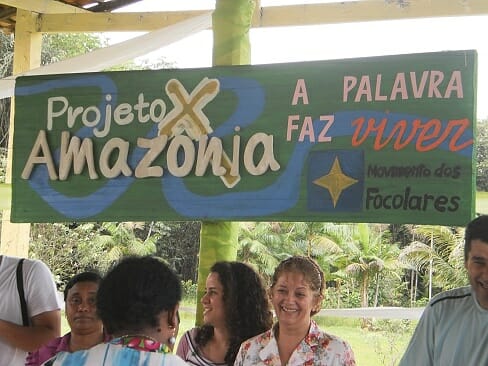
18 Jun 2015 | Non categorizzato
 Raimundo is a hairdresser and Edilene, an anesthetist and public administration clerk. So to take interest in the environment is not exactly their line of expertise. But in the face of the environmental and cultural invasion they are undergoing, together with other families with whom they share Christian ideals, they started to pose some questions to themselves. What heritage would we be leaving to our children? How can we diffuse our vision to a society that seems to be unaware of this destruction? How can we go against the current? They have been married for 29 years, and have three children and three grandchildren.They live in Abaetetuba (Parà – Brazil), an «island» that covers Igarapé-Miri, Moju and Barcarena, three cities that were famous in the 1980s for the mining and industrial settlements. Many families had left their fields to work for the multinational companies, and settled down in the suburbs, nurturing new areas of poverty, with the illusion of a wealth they never reached. The impact of these industries on the environment was devastating, to say the least. It had started with the indiscriminate felling of the açaizeiros (a regional native plant) to extract the palmito which was exported, depriving the families of an essential nutriment. The industrial residues dumped in the rivers had caused a visible reduction of fish and prawns, while atmospheric pollution reduced the production of fruits remarkably. This happened at a local level. But the effects of the deforestation had a repercussion at global levels.The Amazon, in fact is a region where everything is mega in size, like its extension (occupying over 50% of the entire Brazil), its biodiversity, its forests and volume of sweet waters. But with the deforestation underway, all these precious resources run the risk of completely losing their efficacy. It was not easy to see what had to be done. But Raimundo and Edilene could count on an element to make the difference: unity with the other families and the strength deriving from letting God guide them in their choices in life. So they made a joint decision to transform with their own resources, a grazing field of 34 hectares into a fruit grove. For trees, they chose the typical varieties of the region that were more at risk of extinction, and at that point, some of these were no longer known by the youth. They worked hard and with great enthusiasm to create in Abaetetuba, an area for the preservation of local biodiversity. The fruit grove, now producing edible fruits of 166 native species with two African species, makes up a collection of a unique genre: a wealth that offers an alternative to the region’s sustainable future. The area called Radini, in honor of their children, Raisa, Radi and Raoni, is often visited by internationally famed researchers and environmentalists, actors, singers and also bishops and common folk but especially the youth. In fact, the site offers theoretic/practical lessons on biodiversity and conservation of the environment,with the distribution of informative material. Even after the awards and acknowledgements received – like the important recognition in 2012 given by the Goeldidel Parà Museum – the site is now the subject of newspapers and magazines in the region. Edilene and Raimundo are always surprised to see the interest of so many people, some of whom feel the urge to follow their example and become, as they like to define themselves, “environmentalists with a heart.”
Raimundo is a hairdresser and Edilene, an anesthetist and public administration clerk. So to take interest in the environment is not exactly their line of expertise. But in the face of the environmental and cultural invasion they are undergoing, together with other families with whom they share Christian ideals, they started to pose some questions to themselves. What heritage would we be leaving to our children? How can we diffuse our vision to a society that seems to be unaware of this destruction? How can we go against the current? They have been married for 29 years, and have three children and three grandchildren.They live in Abaetetuba (Parà – Brazil), an «island» that covers Igarapé-Miri, Moju and Barcarena, three cities that were famous in the 1980s for the mining and industrial settlements. Many families had left their fields to work for the multinational companies, and settled down in the suburbs, nurturing new areas of poverty, with the illusion of a wealth they never reached. The impact of these industries on the environment was devastating, to say the least. It had started with the indiscriminate felling of the açaizeiros (a regional native plant) to extract the palmito which was exported, depriving the families of an essential nutriment. The industrial residues dumped in the rivers had caused a visible reduction of fish and prawns, while atmospheric pollution reduced the production of fruits remarkably. This happened at a local level. But the effects of the deforestation had a repercussion at global levels.The Amazon, in fact is a region where everything is mega in size, like its extension (occupying over 50% of the entire Brazil), its biodiversity, its forests and volume of sweet waters. But with the deforestation underway, all these precious resources run the risk of completely losing their efficacy. It was not easy to see what had to be done. But Raimundo and Edilene could count on an element to make the difference: unity with the other families and the strength deriving from letting God guide them in their choices in life. So they made a joint decision to transform with their own resources, a grazing field of 34 hectares into a fruit grove. For trees, they chose the typical varieties of the region that were more at risk of extinction, and at that point, some of these were no longer known by the youth. They worked hard and with great enthusiasm to create in Abaetetuba, an area for the preservation of local biodiversity. The fruit grove, now producing edible fruits of 166 native species with two African species, makes up a collection of a unique genre: a wealth that offers an alternative to the region’s sustainable future. The area called Radini, in honor of their children, Raisa, Radi and Raoni, is often visited by internationally famed researchers and environmentalists, actors, singers and also bishops and common folk but especially the youth. In fact, the site offers theoretic/practical lessons on biodiversity and conservation of the environment,with the distribution of informative material. Even after the awards and acknowledgements received – like the important recognition in 2012 given by the Goeldidel Parà Museum – the site is now the subject of newspapers and magazines in the region. Edilene and Raimundo are always surprised to see the interest of so many people, some of whom feel the urge to follow their example and become, as they like to define themselves, “environmentalists with a heart.”
See reportage on page 47 of the journal Amazonia Viva http://issuu.com/amazoniaviva/docs/43_av_mar_2015_web_ok/1
17 Jun 2015 | Non categorizzato
See call for papers The international congress sponsored by Communion and Law will be held in Castel Gandolfo (Rome). The focus this year will be on how citizen participation can help to protect and preserve the environment, and how this concept might inform discussions regarding legal rights and responsibilities regarding environmental protection. The themes to be discussed: Environmental law and the right to the environment – The relational feature of environmental law – Principles of environmental law– Publications on the protection of the environment and participation rights – Environment, the city and territory – Environmental protection and responsibility– Entrepreneurial responsibility– Environmental protection and lawfulness. The topics were chosen following the works and reflection points that arose during the preparatory phase of the Congress, particularly during the international seminar of March 2014 held in Castelgandolfo (Rome) and in the Summer School of Abrigada (Portugal) in July 2014. Programm Press releases All the news regarding the preparation and enrollment for the Congress will be found on the site www.comunionediritto.org/en/.
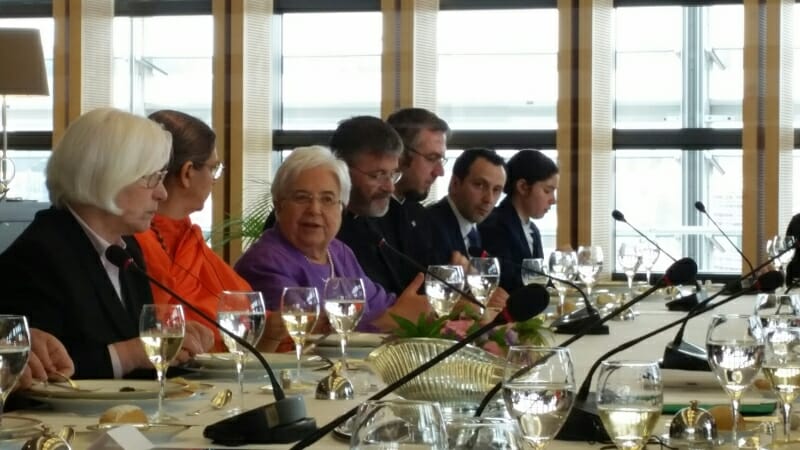
17 Jun 2015 | Focolare Worldwide
https://vimeo.com/130879600 Video highlights of the event (Italian soundtrack) “For me dialogue is not a ritual; it is not something we do once a year and then put back on the shelf again. For me it is an essential contribution to finding solutions to some of the most difficult problems European societies are facing today, problems linked to fear of what is different, linked to the consequences of the crisis, the need for environmental sustainability. Religions will have to play the role between the communities, to perhaps help us bring Europe in a better place than it is today”. These were Frans Timmermans’ words after the annual High-Level Gathering of Religious Leaders which addressed the theme “Living together and disagreeing well”. With the First Vice-President of the European Commission were Antonio Tajani, Vice President of the European Parliament and 15 religious leaders from Christian, Jewish, Muslim, Hindu, Buddhist and Mormon traditions. An understanding of the role of religions is shown by the growing number of occasions which bring together political institutions and religious leaders. Religious leaders are invited not so much on an individual basis but so as to work together, to find solutions to conflicts and to seek a way forward towards peaceful co-existence. See the recent High Level Debate on Tolerance and Reconciliation at the United Nations, the meeting of religious leaders in Kazakhstan, the invitation to Pope Francis to speak at the United Nations and now, at European level, this meeting organised by the European Commission. Today’s event follows on from the meeting held on 2nd June with the philosophical and non-confessional organisations, and it falls within the framework laid down by the Lisbon Treaty.  Some burning issues came up at the press conference – which concern European policies on immigration, the growth of foreign fighters (those who leave Europe to fight jihad), and the rise of far right groups in the European Parliament – which were answered by Imams, Rabbis and Bishops. Metropolitan Joseph, from the Romanian Orthodox Church, also highlighted the role of ecclesial Movements, like the St Egidio Community, referring to its work for the progress of interreligious dialogue. On leaving this long dialogue, Maria Voce, President of the Focolare Movement, expressed her joy at having participated in a truly free exchange, with genuine listening. She emphasised the Golden Rule, shared by all religions. Among the examples she gave of it being put into practice was the experience of the interreligious group “Vivre ensemble à Cannes”. Outside the main meeting she said: “There is no religion that does not want dialogue, there aren’t any religious leaders who don’t seek to do all they can to promote it. This gives hope because, despite all we see around us, religion can truly bring a new message and help in the process of dialogue which can at times seem almost impossible”. She further emphasised “that it is important for communities to be involved in dialogue and not only religious leaders, to foster a synergy that can lead to a shared effort in European cities to enable peaceful co-existence. This can come about only by overcoming feelings of fear – which are understandable when facing the unknown – with feelings of welcome, respect and the capacity to welcome the other truly as a brother or sister.” The outcomes of the debate on 16th June will be included in the discussion material for the first annual conference on Fundamental Rights, of the EU, to be held on 1-2 October 2015 and which will focus on the theme: “Tolerance and respect: to prevent and combat anti-Semitic and anti-Muslim hatred in Europe”.
Some burning issues came up at the press conference – which concern European policies on immigration, the growth of foreign fighters (those who leave Europe to fight jihad), and the rise of far right groups in the European Parliament – which were answered by Imams, Rabbis and Bishops. Metropolitan Joseph, from the Romanian Orthodox Church, also highlighted the role of ecclesial Movements, like the St Egidio Community, referring to its work for the progress of interreligious dialogue. On leaving this long dialogue, Maria Voce, President of the Focolare Movement, expressed her joy at having participated in a truly free exchange, with genuine listening. She emphasised the Golden Rule, shared by all religions. Among the examples she gave of it being put into practice was the experience of the interreligious group “Vivre ensemble à Cannes”. Outside the main meeting she said: “There is no religion that does not want dialogue, there aren’t any religious leaders who don’t seek to do all they can to promote it. This gives hope because, despite all we see around us, religion can truly bring a new message and help in the process of dialogue which can at times seem almost impossible”. She further emphasised “that it is important for communities to be involved in dialogue and not only religious leaders, to foster a synergy that can lead to a shared effort in European cities to enable peaceful co-existence. This can come about only by overcoming feelings of fear – which are understandable when facing the unknown – with feelings of welcome, respect and the capacity to welcome the other truly as a brother or sister.” The outcomes of the debate on 16th June will be included in the discussion material for the first annual conference on Fundamental Rights, of the EU, to be held on 1-2 October 2015 and which will focus on the theme: “Tolerance and respect: to prevent and combat anti-Semitic and anti-Muslim hatred in Europe”.
See also: Video of Religious Leaders being welcomed Video of Press Conference Photo gallery Press Release by the European Commission Press Release by Focolare Movement (June, 12 2015)
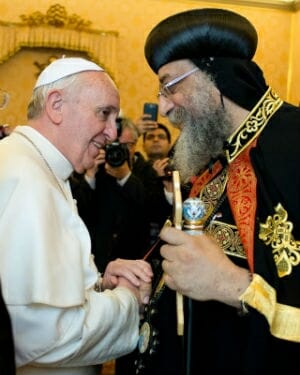
17 Jun 2015 | Focolare Worldwide
 After the historic meeting between Francis and Tawadros II (Pope of the Coptic Orthodox Church and Patriarch of Alexandria), which place on May 10, 2013 at the Vatican, for the first time a day of celebration was held in Alexandria between the two Churches in commemoration of that meeting. Three months after the election of Francis, Tawadros II went to visit him on the day of the 40th anniversary of the historic visit of Pope Shenouda III to Paul VI. On that occasion, the Coptic Orthodox Patriarch had proposed that May 10th be celebrated each year as the Day of Friendship between the two Churches. The event was celebrated on June 7, 2015 at the Jesuit Cultural Centre in Alexandria, Egypt, under the patronage of the Coptic Catholic Patriarch, Ibrahim Ishak, in the presence of Tawadros II, who was joined by 8 Coptic Orthodox bishops and 5 priests. Also present, Papal Nuncio, Bruno Musarò, Latin Bishop, Adel Zaki, and around 100 Religious men and women, and Catholic priests. Promoters of the event included Sohphia University Institute (SUI); the current Director of the Cultural Centre and ex-student of SUI and friend from the Orthodox Church. Following a moment of prayer with readings and songs, a documentary film was presented that recalled the various stages of the historic meeting between the two Churches. In his message, Pope Francis reminded everyone that “what we have in common is much greater than what divides us” and that “we can persevere in our march towards full communion, and grow in love and understanding.The Coptic Patriarch immediately responded. That afternoon he telephoned Pope Francis, confirming his “will to continue in the common effort for the unity of Christians,” as Vatican spokesman Father Lombardi reported. In his speech, which was filled with affection for the Bishop of Rome, Tawadros II expressed his conviction that “today’s world is hungry and thirsty for concrete love. The unity between the Churches is in need of heroes of the faith,” and he indicated some necessary preconditions for reaching unity, such as openmindedness, and praying each day: “Give me an open mind, oh God, like the mind of Our Lord Jesus towards the Samaritan woman, and towards the Good Thief on His right.” But also a big heart, capable of going “beyond the letter.” And, finally, a humble soul that “safeguards the gifts and grace that God bestows.” His Holiness was moved as he described the touching humility of Pope Francis, when he met him and said to him again: “This day we have to celebrate every year!” Tawadros II personally greeted each of the guests. The joyful event ended by remembering the “ecumenism of blood” and the Egyptian and Ethiopian Martyrs in Lybia.
After the historic meeting between Francis and Tawadros II (Pope of the Coptic Orthodox Church and Patriarch of Alexandria), which place on May 10, 2013 at the Vatican, for the first time a day of celebration was held in Alexandria between the two Churches in commemoration of that meeting. Three months after the election of Francis, Tawadros II went to visit him on the day of the 40th anniversary of the historic visit of Pope Shenouda III to Paul VI. On that occasion, the Coptic Orthodox Patriarch had proposed that May 10th be celebrated each year as the Day of Friendship between the two Churches. The event was celebrated on June 7, 2015 at the Jesuit Cultural Centre in Alexandria, Egypt, under the patronage of the Coptic Catholic Patriarch, Ibrahim Ishak, in the presence of Tawadros II, who was joined by 8 Coptic Orthodox bishops and 5 priests. Also present, Papal Nuncio, Bruno Musarò, Latin Bishop, Adel Zaki, and around 100 Religious men and women, and Catholic priests. Promoters of the event included Sohphia University Institute (SUI); the current Director of the Cultural Centre and ex-student of SUI and friend from the Orthodox Church. Following a moment of prayer with readings and songs, a documentary film was presented that recalled the various stages of the historic meeting between the two Churches. In his message, Pope Francis reminded everyone that “what we have in common is much greater than what divides us” and that “we can persevere in our march towards full communion, and grow in love and understanding.The Coptic Patriarch immediately responded. That afternoon he telephoned Pope Francis, confirming his “will to continue in the common effort for the unity of Christians,” as Vatican spokesman Father Lombardi reported. In his speech, which was filled with affection for the Bishop of Rome, Tawadros II expressed his conviction that “today’s world is hungry and thirsty for concrete love. The unity between the Churches is in need of heroes of the faith,” and he indicated some necessary preconditions for reaching unity, such as openmindedness, and praying each day: “Give me an open mind, oh God, like the mind of Our Lord Jesus towards the Samaritan woman, and towards the Good Thief on His right.” But also a big heart, capable of going “beyond the letter.” And, finally, a humble soul that “safeguards the gifts and grace that God bestows.” His Holiness was moved as he described the touching humility of Pope Francis, when he met him and said to him again: “This day we have to celebrate every year!” Tawadros II personally greeted each of the guests. The joyful event ended by remembering the “ecumenism of blood” and the Egyptian and Ethiopian Martyrs in Lybia.

16 Jun 2015 | Non categorizzato
 The client I manage a banking agency. One evening, leaving the office, I was weighed down by a big, unresolved problem: it regarded a client who had misused his savings account. I could see only two solutions, which made me suffer: seriously damage the client, starting the legal processes, or risk shirking my duties. I had an appointment to meet my wife, to return home together. Usually I try to free myself from all my worries, but that evening I couldn’t. She immediately understood and said to me, “Difficult day today, right?” I began to confide in her. Mary did not know all the problems of the bank, but she listened attentively, in silence. After telling her everything, I felt relieved and more confident. The problem remained, but it was no longer only mine. The next day I was able to imagine a third solution that permitted me, in respect to my duties, to not harm the client. (G. K. – England) Hearing problems I had serious hearing problems, and urged by my parishioners, I went to a specialist. After asking me to which religious order I belonged, he began to list his resentments against the Church for all the inconsistencies and contradictions which had made him lose the faith. I listened to him with love, realizing that I found myself in front of a person who wasn’t satisfied with superficial Christianity. In turn, I responded that there are no arguments for defending the Church except a coherent life. I added, “God loves us as we are.” He asked for my address and phone number. That same evening he came to visit me, and he told me that he had been in the seminary until the age of 18 when it seemed to him that Marxism responded better to what he was seeking; now however these certainties had broken down. After a few days he confided to me that, entering a church, it seemed to him that God was telling him, “I have never abandoned you.” Now both he and his wife have returned to the sacraments. (P. G. – Italy) Layoff At the factory they recently distributed letters of termination of employment, one of which was addressed to Giorgio. Knowing his precarious economic conditions, I went to him and invited him to return with me to the personnel office. “I’m better off than he is,” I stated. “My wife has a job. Fire me instead.” Our boss promised he would have a second look at the case. When we exited, Giorgio embraced me; he was visibly moved. This event naturally spread by word of mouth, and two other employees, more or less in the same conditions as I am, offered their places to two other terminated employees. Management was forced to rethink its methods of choosing layoffs. Our parish priest, who came to know about the episode, told the story during his Sunday homily, without saying names. The next day he told me that two students brought him all their savings for the workers in difficulty, saying, “We too want to imitate the gesture of that worker.” (B. S. – Brazil)
The client I manage a banking agency. One evening, leaving the office, I was weighed down by a big, unresolved problem: it regarded a client who had misused his savings account. I could see only two solutions, which made me suffer: seriously damage the client, starting the legal processes, or risk shirking my duties. I had an appointment to meet my wife, to return home together. Usually I try to free myself from all my worries, but that evening I couldn’t. She immediately understood and said to me, “Difficult day today, right?” I began to confide in her. Mary did not know all the problems of the bank, but she listened attentively, in silence. After telling her everything, I felt relieved and more confident. The problem remained, but it was no longer only mine. The next day I was able to imagine a third solution that permitted me, in respect to my duties, to not harm the client. (G. K. – England) Hearing problems I had serious hearing problems, and urged by my parishioners, I went to a specialist. After asking me to which religious order I belonged, he began to list his resentments against the Church for all the inconsistencies and contradictions which had made him lose the faith. I listened to him with love, realizing that I found myself in front of a person who wasn’t satisfied with superficial Christianity. In turn, I responded that there are no arguments for defending the Church except a coherent life. I added, “God loves us as we are.” He asked for my address and phone number. That same evening he came to visit me, and he told me that he had been in the seminary until the age of 18 when it seemed to him that Marxism responded better to what he was seeking; now however these certainties had broken down. After a few days he confided to me that, entering a church, it seemed to him that God was telling him, “I have never abandoned you.” Now both he and his wife have returned to the sacraments. (P. G. – Italy) Layoff At the factory they recently distributed letters of termination of employment, one of which was addressed to Giorgio. Knowing his precarious economic conditions, I went to him and invited him to return with me to the personnel office. “I’m better off than he is,” I stated. “My wife has a job. Fire me instead.” Our boss promised he would have a second look at the case. When we exited, Giorgio embraced me; he was visibly moved. This event naturally spread by word of mouth, and two other employees, more or less in the same conditions as I am, offered their places to two other terminated employees. Management was forced to rethink its methods of choosing layoffs. Our parish priest, who came to know about the episode, told the story during his Sunday homily, without saying names. The next day he told me that two students brought him all their savings for the workers in difficulty, saying, “We too want to imitate the gesture of that worker.” (B. S. – Brazil)
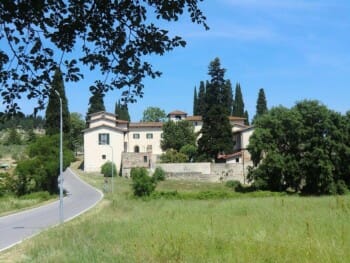
15 Jun 2015 | Focolare Worldwide, Senza categoria
Live streaming of funeral 18 June (3.30 pm Italian time): http://live.focolare.org
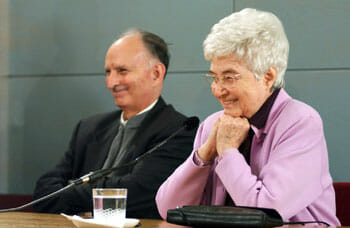
Pasquale Foresi with Chiara Lubich
 He was the first focolarino to be ordained to the priesthood, followed by others who also felt called to serve the Movement in this way. Pasquale saw in what was being done by Chiara Lubich and the first group of people around her “a spring of gospel life gushing forth in the Church” and he began an association with them that would lead him to make a fundamental contribution to the Movement’s development, as one of Chiara Lubich’s closest collaborators. Referring to his main tasks in the Movement, he wrote: “As a priest I was responsible for our first contacts with the Holy See. Another particular task, over the years, was following the Movement’s growth and development throughout the world and working with Chiara on writing the various Statutes. I also helped start up and follow some of the Movement’s centres and works, such as the ‘Mariapolis Centre’ at Rocca di Papa which runs courses for the members; the little town of witness at Loppiano in Italy; the Citta Nuova publishing house in Rome, and other works that developed in different parts of the world over time.” But there is one area of Fr Foresi’s life alongside Chiara that perhaps represents his specific contribution to the development of the Movement better than others. He explained: “It’s in the logic of things that every new spiritual current, every great charism, has an effect on culture at all levels. If you look at history you see that this has always been the case, influencing architecture, the arts, ecclesial and social structures, the various fields of human knowledge and especially theology.” In fact he spoke frequently and published numerous articles and books on the theology of Chiara’s charism and on its social and spiritual dimensions, authoritatively highlighting its newness in the context of both life and thought. His words contain “keen analysis, breadth of vision and optimism for the future made possible by the wisdom that derives from a strong and new charismatic experience, as well by the depths of light and love, humility and faithfulness that only God can achieve in a person’s life”. (Taken from the Preface to “Conversations” questions and answers on the spirituality of unity). The Focolare Movement throughout the world remembers him with immense gratitude. See also: Press release
He was the first focolarino to be ordained to the priesthood, followed by others who also felt called to serve the Movement in this way. Pasquale saw in what was being done by Chiara Lubich and the first group of people around her “a spring of gospel life gushing forth in the Church” and he began an association with them that would lead him to make a fundamental contribution to the Movement’s development, as one of Chiara Lubich’s closest collaborators. Referring to his main tasks in the Movement, he wrote: “As a priest I was responsible for our first contacts with the Holy See. Another particular task, over the years, was following the Movement’s growth and development throughout the world and working with Chiara on writing the various Statutes. I also helped start up and follow some of the Movement’s centres and works, such as the ‘Mariapolis Centre’ at Rocca di Papa which runs courses for the members; the little town of witness at Loppiano in Italy; the Citta Nuova publishing house in Rome, and other works that developed in different parts of the world over time.” But there is one area of Fr Foresi’s life alongside Chiara that perhaps represents his specific contribution to the development of the Movement better than others. He explained: “It’s in the logic of things that every new spiritual current, every great charism, has an effect on culture at all levels. If you look at history you see that this has always been the case, influencing architecture, the arts, ecclesial and social structures, the various fields of human knowledge and especially theology.” In fact he spoke frequently and published numerous articles and books on the theology of Chiara’s charism and on its social and spiritual dimensions, authoritatively highlighting its newness in the context of both life and thought. His words contain “keen analysis, breadth of vision and optimism for the future made possible by the wisdom that derives from a strong and new charismatic experience, as well by the depths of light and love, humility and faithfulness that only God can achieve in a person’s life”. (Taken from the Preface to “Conversations” questions and answers on the spirituality of unity). The Focolare Movement throughout the world remembers him with immense gratitude. See also: Press release

15 Jun 2015 | Focolare Worldwide
 In 2011, three young people from a parish in the province of Córdoba (Argentina) were invited to a meeting in “Mariapolis Lia,” a small city of the Focolare Movement, 250 km from Buenos Aires. Participating at this meeting was a great experience for all three, a full immersion in the Gospel in action, an incentive to concretely give of themselves for others. “That meeting changed us,” says Susana. “We found that we were more enthusiastic, more welcoming, more trusting in God who we rediscovered is Love. It was a chance to grow as people but also as a group.” So much so that today there are about fifteen teens who are moving forward together with some very interesting initiatives. As an example, the “Clothing Fair,” a very useful idea for their region in which there are many families who live below the poverty line. In the parish, many items of clothing had been arriving which remained there, unused, because there was no one to bring them to those in need. So the teens took over: working hard, in a few Saturdays they had organized the location, which was a transformed basement; they had cleaned and perfumed it, thinking of those who would come to choose their clothes; they had displayed the merchandise, ironed and fixed up like new, and the result was the “Clothing fair.” At the beginning, they had thought not to ask for any compensation for the clothing, but then—thinking of the dignity of the buyers—they established prices that were accessible to everyone, without drawing attention to who was giving and who receiving, so that only love would circulate.
In 2011, three young people from a parish in the province of Córdoba (Argentina) were invited to a meeting in “Mariapolis Lia,” a small city of the Focolare Movement, 250 km from Buenos Aires. Participating at this meeting was a great experience for all three, a full immersion in the Gospel in action, an incentive to concretely give of themselves for others. “That meeting changed us,” says Susana. “We found that we were more enthusiastic, more welcoming, more trusting in God who we rediscovered is Love. It was a chance to grow as people but also as a group.” So much so that today there are about fifteen teens who are moving forward together with some very interesting initiatives. As an example, the “Clothing Fair,” a very useful idea for their region in which there are many families who live below the poverty line. In the parish, many items of clothing had been arriving which remained there, unused, because there was no one to bring them to those in need. So the teens took over: working hard, in a few Saturdays they had organized the location, which was a transformed basement; they had cleaned and perfumed it, thinking of those who would come to choose their clothes; they had displayed the merchandise, ironed and fixed up like new, and the result was the “Clothing fair.” At the beginning, they had thought not to ask for any compensation for the clothing, but then—thinking of the dignity of the buyers—they established prices that were accessible to everyone, without drawing attention to who was giving and who receiving, so that only love would circulate.  “One day,” recounts one of the teens, “a mother of eight children came. Seeing those affordable prices she chose a lot of clothes, and when she went to pay, with tears in her eyes she confided to us that it was the first time she was able to buy something for her children. Another time a woman came who seemed very interested: she walked around, looking at all the clothing but without buying anything. In the end she stopped to talk for a long time with us teens. We found out later that she came back other times, too, because as she herself confided, she knew that here she would always find someone who listened to her.” Leaving after her turn at the Fair, one of the girls noticed a man on the church steps who was crying. Knowing that Jesus is concealed within every person, especially the poor, she thought of something: “If he were Jesus, would I leave him alone to cry?” She decided to approach him, and the man sorrowfully described that for days he had lived on the street, he had nothing to eat and he suffered from serious health problems. The girl returned to the Fair to call the others from the current shift to search for a place for him to stay and for some food. Afterwards, they also found him a job.
“One day,” recounts one of the teens, “a mother of eight children came. Seeing those affordable prices she chose a lot of clothes, and when she went to pay, with tears in her eyes she confided to us that it was the first time she was able to buy something for her children. Another time a woman came who seemed very interested: she walked around, looking at all the clothing but without buying anything. In the end she stopped to talk for a long time with us teens. We found out later that she came back other times, too, because as she herself confided, she knew that here she would always find someone who listened to her.” Leaving after her turn at the Fair, one of the girls noticed a man on the church steps who was crying. Knowing that Jesus is concealed within every person, especially the poor, she thought of something: “If he were Jesus, would I leave him alone to cry?” She decided to approach him, and the man sorrowfully described that for days he had lived on the street, he had nothing to eat and he suffered from serious health problems. The girl returned to the Fair to call the others from the current shift to search for a place for him to stay and for some food. Afterwards, they also found him a job.  In many countries in Latin America, a girl’s 15th birthday is an important date. One young girl in the group was about to arrive at this date, but her family had no means to celebrate it, inviting friends and family. Hearing about this, the teens from the group wanted to help. First, they dedicated themselves to the decorations of the hall, according to the preferences of the girl’s mother. Then, they organized themselves to serve at table. But they, too, would have wanted to participate in the party and at the dance with elegant attire. What to do? Lined up in waiters’ uniforms, they welcomed guests at the door and served them at table, and then, for the dance, they ran to change, surprising everyone, especially the birthday girl. At the end of the party, they changed back into work clothes to put everything back in place, leaving the hall clean and in order. Talk about love!
In many countries in Latin America, a girl’s 15th birthday is an important date. One young girl in the group was about to arrive at this date, but her family had no means to celebrate it, inviting friends and family. Hearing about this, the teens from the group wanted to help. First, they dedicated themselves to the decorations of the hall, according to the preferences of the girl’s mother. Then, they organized themselves to serve at table. But they, too, would have wanted to participate in the party and at the dance with elegant attire. What to do? Lined up in waiters’ uniforms, they welcomed guests at the door and served them at table, and then, for the dance, they ran to change, surprising everyone, especially the birthday girl. At the end of the party, they changed back into work clothes to put everything back in place, leaving the hall clean and in order. Talk about love!
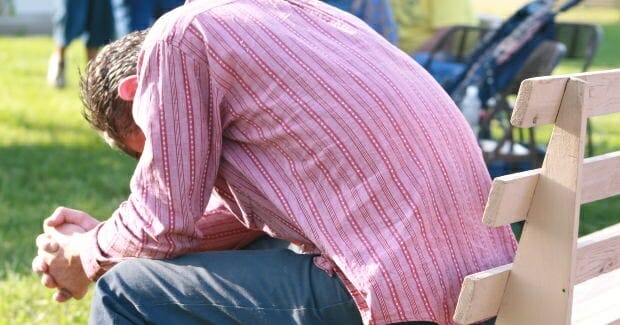
13 Jun 2015 | Non categorizzato
 “… One way of applying this faith in God is when we are worried about something that makes us anxious. Sometimes it is fear for the future, or concerns about our health, we are frightened about suspected dangers, we are worried about our relatives, apprehensive about a job we have to do, we are uncertain about how to behave, there is the shock of bad news. There are fears of various kinds. Well then, at times like these, precisely in times when everything is uncertain, God wants us to believe in his love and asks of us an act of trust. If we are really Christians, he wants us to make good use of these painful situations to prove to him that we do believe in his love. This means believing that he is a Father to us and he thinks of us, and casting upon him every anxiety we have, burdening him with them. Scripture says: “Cast all your anxiety on him, because he cares for you.” (1 Pt 5:7). … The fact is that God is our Father and he wants his children’s happiness. This is why they unload every burden onto him. Besides, God is love and he wants his children to be love. All these worries, anxieties, and fears block our soul, shutting it up in itself, and get in the way of our opening up towards God by doing his will and towards our neighbours by making ourselves one with them so as to love them in the right way. In the early times of the Focolare, when the Holy Spirit was teaching us our first steps on the path of love, “casting all our anxiety on the Father” was something we did every day, and often several times a day. In fact we were leaving behind a purely human way of living, even though we were Christians, so as to move into a supernatural, divine way of living. That is, we were beginning to love. Worries are stumbling blocks to love. So the Holy Spirit had to teach us how to get rid of them. And he did. I remember we used to say that just as you cannot hold a hot coal in your hand, but you would drop it at once so as not to get burned, so too with the same speed we had to cast every worry onto the Father. I can’t remember any worry cast into the Father’s heart which he did not take care of. … So let’s cast every anxiety on him. We will then be free to love. We’ll run faster on the path of love which, as we know, leads to holiness.” C.Lubich, Cercando le cose di lassù, Roma 19924, p. 26-29. Read the whole text: Chiara Lubich Center
“… One way of applying this faith in God is when we are worried about something that makes us anxious. Sometimes it is fear for the future, or concerns about our health, we are frightened about suspected dangers, we are worried about our relatives, apprehensive about a job we have to do, we are uncertain about how to behave, there is the shock of bad news. There are fears of various kinds. Well then, at times like these, precisely in times when everything is uncertain, God wants us to believe in his love and asks of us an act of trust. If we are really Christians, he wants us to make good use of these painful situations to prove to him that we do believe in his love. This means believing that he is a Father to us and he thinks of us, and casting upon him every anxiety we have, burdening him with them. Scripture says: “Cast all your anxiety on him, because he cares for you.” (1 Pt 5:7). … The fact is that God is our Father and he wants his children’s happiness. This is why they unload every burden onto him. Besides, God is love and he wants his children to be love. All these worries, anxieties, and fears block our soul, shutting it up in itself, and get in the way of our opening up towards God by doing his will and towards our neighbours by making ourselves one with them so as to love them in the right way. In the early times of the Focolare, when the Holy Spirit was teaching us our first steps on the path of love, “casting all our anxiety on the Father” was something we did every day, and often several times a day. In fact we were leaving behind a purely human way of living, even though we were Christians, so as to move into a supernatural, divine way of living. That is, we were beginning to love. Worries are stumbling blocks to love. So the Holy Spirit had to teach us how to get rid of them. And he did. I remember we used to say that just as you cannot hold a hot coal in your hand, but you would drop it at once so as not to get burned, so too with the same speed we had to cast every worry onto the Father. I can’t remember any worry cast into the Father’s heart which he did not take care of. … So let’s cast every anxiety on him. We will then be free to love. We’ll run faster on the path of love which, as we know, leads to holiness.” C.Lubich, Cercando le cose di lassù, Roma 19924, p. 26-29. Read the whole text: Chiara Lubich Center
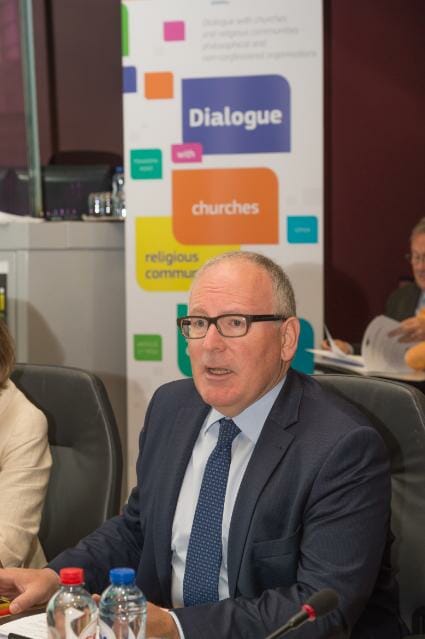
12 Jun 2015 | Focolare Worldwide
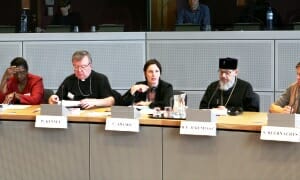 The meeting with the religious leaders will take place on 16 June at the Berlaymont Building in Brussels, seat of the European Commission. The top-level operational meeting is regularly held among the organisations of the European Union and churches, religions, philosophical associations and non-religious organizations, as provided by Art.17 of the Treaty of Lisbon. The results of the debate with the religious leaders will contribute to preparations for the European Union’s first Annual Convention on Fundamental Rights that will be held in Brussels on 1-2 October 2015 on the theme “Tolerance and respect: foresee and combat anti-Semitic and anti-Muslim phenomena in Europe.” The topic chosen for the debate, “Coexistence and acceptance of diversities,” underlines – in the words of Frans Timmermans, First Vice-President of the European Commission, that – “in our heterogeneous European societies, dialogue is essential in creating a community in which each feels at home. Living together means being able to accept the differences even in the presence of profound divergences.” Among the 15 religious leaders invited, are the Catholic Church’s representatives: Cardinal Reinhard Marx, Archbishop of Munich and President of the Episcopates’ Commission of the European Community (COMECE), and Maria Voce, President of the Focolare Movement.
The meeting with the religious leaders will take place on 16 June at the Berlaymont Building in Brussels, seat of the European Commission. The top-level operational meeting is regularly held among the organisations of the European Union and churches, religions, philosophical associations and non-religious organizations, as provided by Art.17 of the Treaty of Lisbon. The results of the debate with the religious leaders will contribute to preparations for the European Union’s first Annual Convention on Fundamental Rights that will be held in Brussels on 1-2 October 2015 on the theme “Tolerance and respect: foresee and combat anti-Semitic and anti-Muslim phenomena in Europe.” The topic chosen for the debate, “Coexistence and acceptance of diversities,” underlines – in the words of Frans Timmermans, First Vice-President of the European Commission, that – “in our heterogeneous European societies, dialogue is essential in creating a community in which each feels at home. Living together means being able to accept the differences even in the presence of profound divergences.” Among the 15 religious leaders invited, are the Catholic Church’s representatives: Cardinal Reinhard Marx, Archbishop of Munich and President of the Episcopates’ Commission of the European Community (COMECE), and Maria Voce, President of the Focolare Movement.

Frans Timmermans, First Vice-President of the European Commission
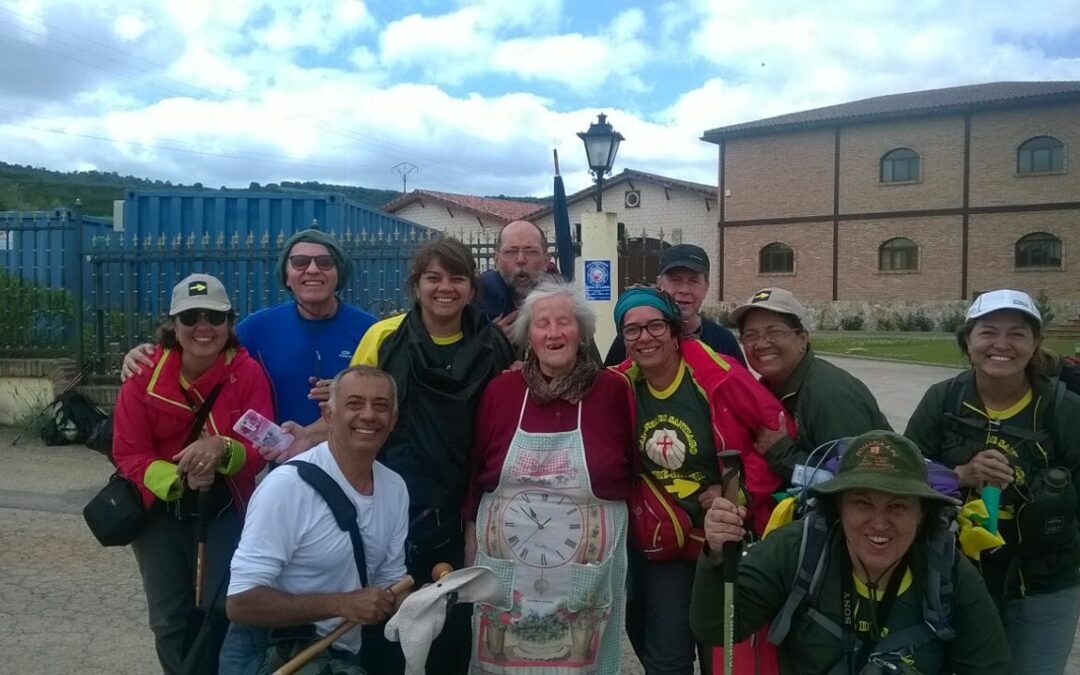
12 Jun 2015 | Focolare Worldwide
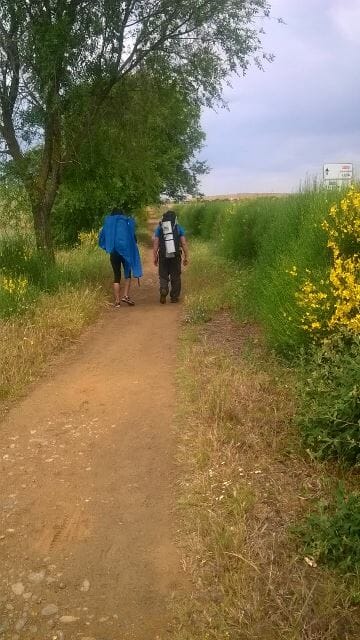 “The sun is beating down, but we need to get to the next village. Today we did another stretch with Grey from South Africa, a young television presenter. We were surprised to find people from all over the world, on the road to Campostela – from Korea, Japan, China, United States, Brazil, Canada and, naturally, Europe. Thirty years ago, only some 100 people would pass through Ronceveaux each year. The walk seems to respond to a need that is felt by the people of today. The reasons for taking the walk are many and it is interesting to share them. Peter, a 35 year old German hotel keeper from the vicinity of Monaco, sits at our table. He hasn’t gone on holiday for two years and, then, his girlfriend left him. He wants to think about life. Paul and Celine from Canada are doing the walk to give thanks for their life. Tracy from Australia is following a dream: she wants to have a great tale to tell her children and grandchildren. Antonella confided to us that she doesn’t know how to weep, she would like to get to know herself more and find her freedom. We took up El Camino 19 days ago: Bernard and Jean-Paul from Belgium and Ivo from Brazil who was frightened at the idea of having to walk 740 km. It seemed like too much. As the road stretches on you realise that the feet and legs are doing just fine, and with each new day your courage increases. Jean Paul, a married doctor, has been retired for a month. He makes frequent stops to explain the plants we find along the way. He helps us to take in the fragrances of the rich nature all around us. We are struck by the beauty of the flowers, the churches like in Burgos and in Lyon, but also in the small villages. We often turn around to enjoy the panorama behind us. Each morning we make a pact with one another to help us in the difficult moments. The walk brings us into touch with our limitations, sufferings, tiredness, thirst, hunger. . . and that can easily make us forget our neighbour.
“The sun is beating down, but we need to get to the next village. Today we did another stretch with Grey from South Africa, a young television presenter. We were surprised to find people from all over the world, on the road to Campostela – from Korea, Japan, China, United States, Brazil, Canada and, naturally, Europe. Thirty years ago, only some 100 people would pass through Ronceveaux each year. The walk seems to respond to a need that is felt by the people of today. The reasons for taking the walk are many and it is interesting to share them. Peter, a 35 year old German hotel keeper from the vicinity of Monaco, sits at our table. He hasn’t gone on holiday for two years and, then, his girlfriend left him. He wants to think about life. Paul and Celine from Canada are doing the walk to give thanks for their life. Tracy from Australia is following a dream: she wants to have a great tale to tell her children and grandchildren. Antonella confided to us that she doesn’t know how to weep, she would like to get to know herself more and find her freedom. We took up El Camino 19 days ago: Bernard and Jean-Paul from Belgium and Ivo from Brazil who was frightened at the idea of having to walk 740 km. It seemed like too much. As the road stretches on you realise that the feet and legs are doing just fine, and with each new day your courage increases. Jean Paul, a married doctor, has been retired for a month. He makes frequent stops to explain the plants we find along the way. He helps us to take in the fragrances of the rich nature all around us. We are struck by the beauty of the flowers, the churches like in Burgos and in Lyon, but also in the small villages. We often turn around to enjoy the panorama behind us. Each morning we make a pact with one another to help us in the difficult moments. The walk brings us into touch with our limitations, sufferings, tiredness, thirst, hunger. . . and that can easily make us forget our neighbour. 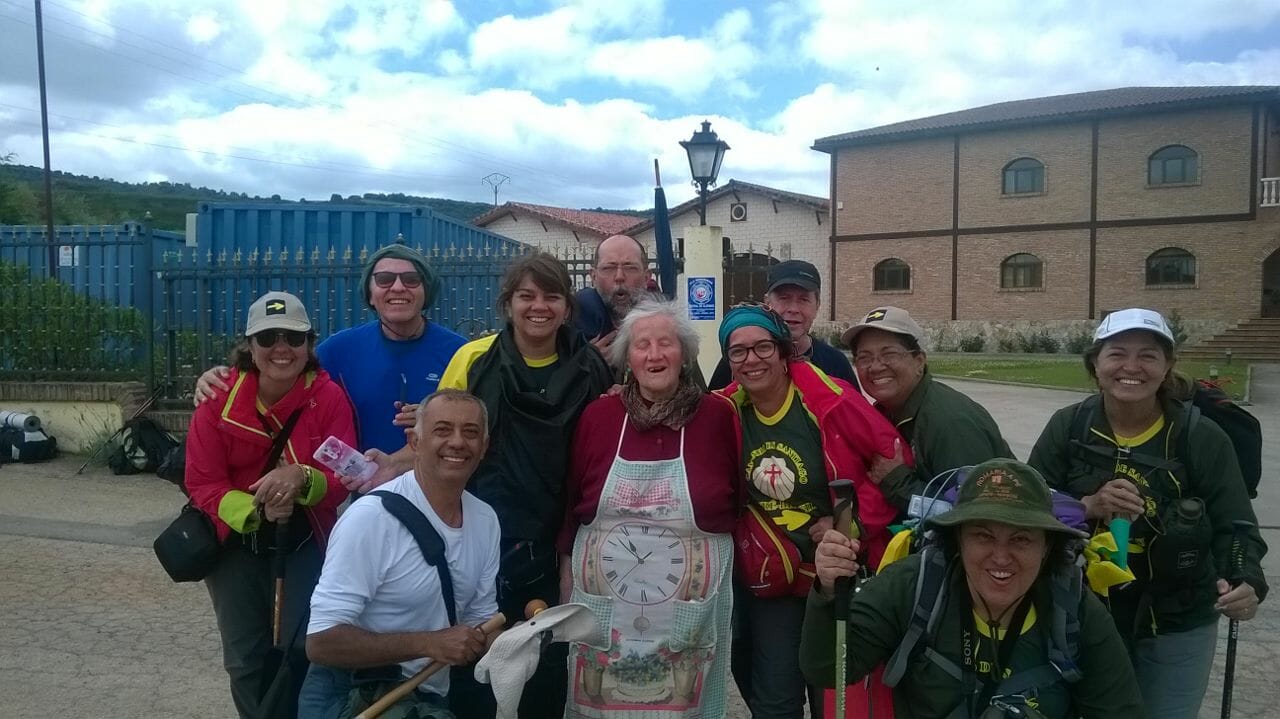 Ivo brings a lot of vitality to our little group, and others enjoy walking a few kilometres with us. They share their questions, difficulties and joys. One evening a priest told us the meaning of the word Compostela: Stars Field. We should also follow our star and be stars (light) for one another. Each day we come into touch with many hearts, but we are also touched by them. We try to open the door to God because we feel He is here amongst us through evanglical love. We have dinner with the others and pray altogether. Nicole is looking for people who would like to pray the Rosary. She recites it in Latin, Jean-Paul in French and we in Italian. Then Nicole begin to sing in Tagalo (Philippine language) and Ivo in Portuguese. Nicole recounts her story: she is on her way to entering a Religious community. Another time a policeman – Doriano – walks with us to 10 metres. He tells us he has prayed with us. This is a new experience in his life. Some cloistered nuns are also praying for us and for all the pilgrims; it is their vocation. Many wonder why we are speaking in Italian. We tell them our story, the story of Chiara Lubich and the Focolare Movement. To others we speak about the Gospel, the vocation and the journey of life. The experience of the Way of is different for every person. We are wondering what will happen when we reach the steps of St. James of Compostela. It will be a surprise like the one we will receive at the end of our lives. It will be joyful because of the journey, and having met so many people who have remained in our hearts. We wish them well with a ‘Buen camino’. Who knows when we’ll meet again?” Bernard, Jean-Paul, Ivo
Ivo brings a lot of vitality to our little group, and others enjoy walking a few kilometres with us. They share their questions, difficulties and joys. One evening a priest told us the meaning of the word Compostela: Stars Field. We should also follow our star and be stars (light) for one another. Each day we come into touch with many hearts, but we are also touched by them. We try to open the door to God because we feel He is here amongst us through evanglical love. We have dinner with the others and pray altogether. Nicole is looking for people who would like to pray the Rosary. She recites it in Latin, Jean-Paul in French and we in Italian. Then Nicole begin to sing in Tagalo (Philippine language) and Ivo in Portuguese. Nicole recounts her story: she is on her way to entering a Religious community. Another time a policeman – Doriano – walks with us to 10 metres. He tells us he has prayed with us. This is a new experience in his life. Some cloistered nuns are also praying for us and for all the pilgrims; it is their vocation. Many wonder why we are speaking in Italian. We tell them our story, the story of Chiara Lubich and the Focolare Movement. To others we speak about the Gospel, the vocation and the journey of life. The experience of the Way of is different for every person. We are wondering what will happen when we reach the steps of St. James of Compostela. It will be a surprise like the one we will receive at the end of our lives. It will be joyful because of the journey, and having met so many people who have remained in our hearts. We wish them well with a ‘Buen camino’. Who knows when we’ll meet again?” Bernard, Jean-Paul, Ivo
11 Jun 2015 | Focolare Worldwide
The Summer School is an opportunity for international scholars and students from multiple disciplines to imagine the future – to recognize the possibilities hidden in the present and to understand the complex conditions required to navigate the possibilities. The Summer School will cultivate the skills and knowledge necessary to responsibly usher in a future of hope – a future charted with a moral compass directed by a commitment to the idea of the inherent value of the human person in the light of a culture that blossoms from the deep roots of relationships. The Summer School will encourage scholars to pursue research that informs paths to a positive future relying on epistemological questions derived by studies in economics, politics, law, theology and other technical and social science disciplines. For more information: Summer School 2015
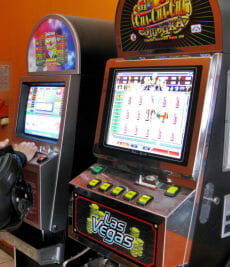
11 Jun 2015 | Focolare Worldwide
 Thousands of signatures within a few short days under the title: Unity is strength. In April 2015, the Italian National Olymic Committee (CONI) launched a project for teenagers and young Italian residents of disadvantaged areas, titled: Vinvcere da grandi, meaning, becoming a winner as an adult. The news that was given with such large covereage has left a positive impression in many. The situation, which is paradoxical and painful, has created a tear in the social fabric that must be mended. Ths Focolare Movement in italy has noticed, along with many other associations in the country that fight for legality, transparency, and social justice. Universal brotherhood is also built in this way: joining together to ask the Italian National Olympic Committee to discontinue its collaboration with Lottomatica. The Focolare Movement in Italy has launched an online petition asking the Italian Government and Parliament to intervene in supporting an authentic culture of sport in the country, and a concrete commitment to the growth of young people. It is a bet that will only be paid off later, and we are conscious of the disproportion between the forces (like David and Goliath), but we are equally convinced that it is important to give a signal that goes against the trend. If you are interested in the project Stop Progetto Coni Lottomatica “Vincere da Grandi”, go to the New Humanity website.
Thousands of signatures within a few short days under the title: Unity is strength. In April 2015, the Italian National Olymic Committee (CONI) launched a project for teenagers and young Italian residents of disadvantaged areas, titled: Vinvcere da grandi, meaning, becoming a winner as an adult. The news that was given with such large covereage has left a positive impression in many. The situation, which is paradoxical and painful, has created a tear in the social fabric that must be mended. Ths Focolare Movement in italy has noticed, along with many other associations in the country that fight for legality, transparency, and social justice. Universal brotherhood is also built in this way: joining together to ask the Italian National Olympic Committee to discontinue its collaboration with Lottomatica. The Focolare Movement in Italy has launched an online petition asking the Italian Government and Parliament to intervene in supporting an authentic culture of sport in the country, and a concrete commitment to the growth of young people. It is a bet that will only be paid off later, and we are conscious of the disproportion between the forces (like David and Goliath), but we are equally convinced that it is important to give a signal that goes against the trend. If you are interested in the project Stop Progetto Coni Lottomatica “Vincere da Grandi”, go to the New Humanity website.
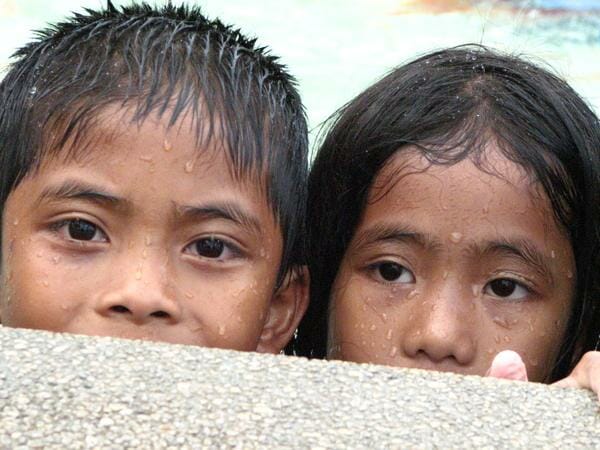
10 Jun 2015 | Focolare Worldwide
 “Last year a two year old girl who is quite dear to me almost lost her life. I thought that because she had been born here, she was immediately given every medical cure and surgery. But what if she had been born in a country with less resources, how would it have gone for her? And why should she have had the good fortune of living here? Do other children not have the same right?” Thus Gabriella got to work organising a fundraising project for disadvantaged children, asking the Mayor for a public space on the main square of her town, Marcignago di Pavia, Italy. She also involved the Parish, the Diocese and the local press. “How will it turn out, I dont’know,” she admits, “I know why and for whom I’m doing this, and the only thing I can do is hope for the best!” This is but one of the many testimonies of supporters who have become involved in the #obiettivo15mila campaign of the New Families Association begun on May 24 in Rome, Italy, at the Città dell’Altra Economia. “The goal” – Association president Andrea Turatti explains – is to “give visibility to what we are already doing through on-going projects in 50 countries, and to expand our involvement, by involving others in projects of solidarity.” Solidarity projects have multiplied in many Italian cities and in several social projects that are underway around the world. With internet link-ups they have been able to present their activities: surgical clinics, nursery schools, primary schools and after-school programmes, through which children and teens receive adequate nourishment and medical care, scholastic assistance and other professional services. These programmes are inserted in wider interventions, in cooperation with national and international partnerships in favor of families and entire communities until they are able to be autonomous, and in favour of the well-being of children worldwide. “We would also like to contribute to the solidarity,” said Youn Vera who, thanks to the distance support is now attending the second year of secondary school at the Collegio Gue Pascal of Man, on the Ivory Coast. “To help out four classmates who were ill and in need of medical care, we had the idea of a garden where we could grow salad and spinach.” “Distance support is a project that does much direct good for us, not only to the ones who receive, but because it makes you grow, it puts you in contact with different people and cultures, it helps you to discover the value of sobriety and creates community,” said Vincenzo Curatolo, president of the Sad Forum which joins hundreds of associations in Italy. One example is Guido and Azzurra who together with other teenagers from the Roman quarter, tell how they have founded an association that has been operating for nearly two years, in which they carry out several activities in favour of others. The most beautiful experience has been in the Philippines, responding to the emergency in the aftermath of hurricane Hayan. Hosted by the Focolare and in cooperation with the New Families non-Profit Association they went into several barrios on the peripheries of several cities and touched with their own hands what previously had seen so distant from their daily lives and could only be seen on television. Living them out in daily life, really changed our way of thinking. Then we wanted to make a long-term commitment in supporting a girl in a wheelchair: Princess, with her sunshine smile.” Giusy, from near Pisa, Italy, tells of how one group of Focolare New Families slowly got the whole area involved, the municipal council and some 300 families. “The project was begun by me and my colleague, twenty years ago,” says Massimo Grossi of the RCS Corriere della Sera, and it has involved more than 250 journalists and printing services. Thanks to many small donations, we received 50 distance supporters for children in Africa and Asia; many small contributions that united together: this is our spirit and our strength.”
“Last year a two year old girl who is quite dear to me almost lost her life. I thought that because she had been born here, she was immediately given every medical cure and surgery. But what if she had been born in a country with less resources, how would it have gone for her? And why should she have had the good fortune of living here? Do other children not have the same right?” Thus Gabriella got to work organising a fundraising project for disadvantaged children, asking the Mayor for a public space on the main square of her town, Marcignago di Pavia, Italy. She also involved the Parish, the Diocese and the local press. “How will it turn out, I dont’know,” she admits, “I know why and for whom I’m doing this, and the only thing I can do is hope for the best!” This is but one of the many testimonies of supporters who have become involved in the #obiettivo15mila campaign of the New Families Association begun on May 24 in Rome, Italy, at the Città dell’Altra Economia. “The goal” – Association president Andrea Turatti explains – is to “give visibility to what we are already doing through on-going projects in 50 countries, and to expand our involvement, by involving others in projects of solidarity.” Solidarity projects have multiplied in many Italian cities and in several social projects that are underway around the world. With internet link-ups they have been able to present their activities: surgical clinics, nursery schools, primary schools and after-school programmes, through which children and teens receive adequate nourishment and medical care, scholastic assistance and other professional services. These programmes are inserted in wider interventions, in cooperation with national and international partnerships in favor of families and entire communities until they are able to be autonomous, and in favour of the well-being of children worldwide. “We would also like to contribute to the solidarity,” said Youn Vera who, thanks to the distance support is now attending the second year of secondary school at the Collegio Gue Pascal of Man, on the Ivory Coast. “To help out four classmates who were ill and in need of medical care, we had the idea of a garden where we could grow salad and spinach.” “Distance support is a project that does much direct good for us, not only to the ones who receive, but because it makes you grow, it puts you in contact with different people and cultures, it helps you to discover the value of sobriety and creates community,” said Vincenzo Curatolo, president of the Sad Forum which joins hundreds of associations in Italy. One example is Guido and Azzurra who together with other teenagers from the Roman quarter, tell how they have founded an association that has been operating for nearly two years, in which they carry out several activities in favour of others. The most beautiful experience has been in the Philippines, responding to the emergency in the aftermath of hurricane Hayan. Hosted by the Focolare and in cooperation with the New Families non-Profit Association they went into several barrios on the peripheries of several cities and touched with their own hands what previously had seen so distant from their daily lives and could only be seen on television. Living them out in daily life, really changed our way of thinking. Then we wanted to make a long-term commitment in supporting a girl in a wheelchair: Princess, with her sunshine smile.” Giusy, from near Pisa, Italy, tells of how one group of Focolare New Families slowly got the whole area involved, the municipal council and some 300 families. “The project was begun by me and my colleague, twenty years ago,” says Massimo Grossi of the RCS Corriere della Sera, and it has involved more than 250 journalists and printing services. Thanks to many small donations, we received 50 distance supporters for children in Africa and Asia; many small contributions that united together: this is our spirit and our strength.”
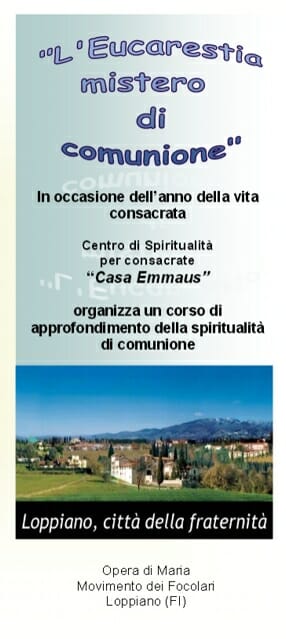
9 Jun 2015 | Non categorizzato
 “Casa Emmaus,” located in the international town of Loppiano – Incisa Valdarno (FI), wishes to be a “school of communion” and a “school of life” for all the religious worldwide. The course will offer some tools to help participants acquire a deeper knowledge of the spirituality of communion the Church has proposed for the Third Millennium, in the light of unity and life of the Gospel. All are advised to bring along their own Constitutions, to be able to compare their own charisms and share with the others the innate treasures within, in a spiritual climate of reciprocity. See: Brochure
“Casa Emmaus,” located in the international town of Loppiano – Incisa Valdarno (FI), wishes to be a “school of communion” and a “school of life” for all the religious worldwide. The course will offer some tools to help participants acquire a deeper knowledge of the spirituality of communion the Church has proposed for the Third Millennium, in the light of unity and life of the Gospel. All are advised to bring along their own Constitutions, to be able to compare their own charisms and share with the others the innate treasures within, in a spiritual climate of reciprocity. See: Brochure
8 Jun 2015 | Non categorizzato
In the face of immense challenges which also the European society has to tackle – particularly this year, after the attacks in Paris and Copenhagen – one can feel the growing distrust within and between communities. Already at the start of the 1990s, on the initiative of Jacques Delors, the EC President at that time, dialogue with the Churches and the non-religious organisations had been an occasion for an exchange of views on European politics between institutions and the main players of civil society. How can we live together and build a society in which every person and community can feel at home and safe? How can we find ways of accepting the differences when substantially there is no agreement? These are some of the open questions the religious leaders will confront together.. Also the President of the Movement, Maria Voce has accepted the invitation to participate, underlining how the priority of the Focolare is to “build bridges through respectful dialogue at various levels, and to contribute to the peaceful coexistence and fraternity between people of diverse faiths and the most varied ethnic and social origins.”
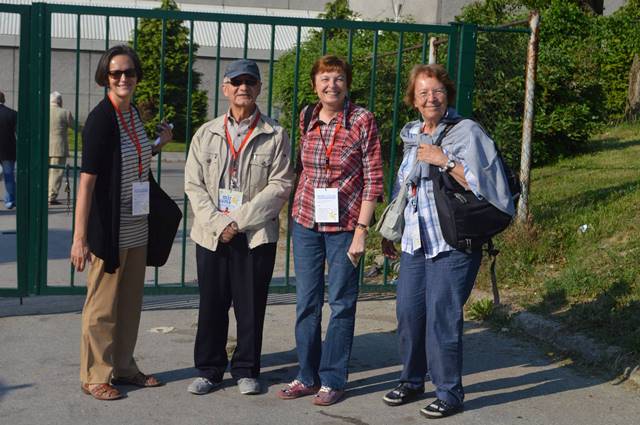
8 Jun 2015 | Non categorizzato
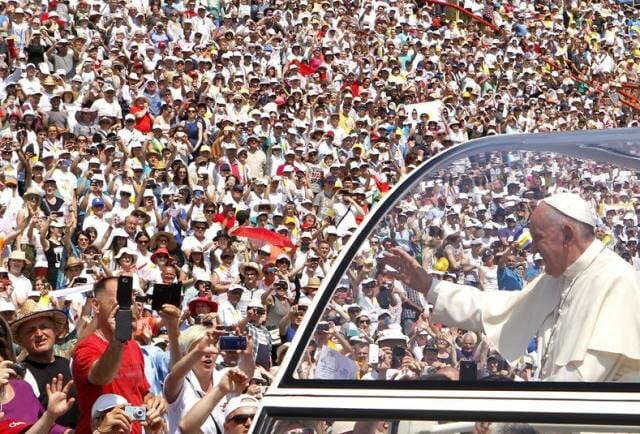 We are breathing an air of peace,” Cardinal Puljic had exclaimed on the vigil of the Pope’s arrival. The city was expecting him with much joy and had begun preparing for his visit several months in advance. Rumuors that had put the security on guard were put to rest by the concerted preparatory efforts Church and State working in harmony. This effort and the willingness of the citizens in following the rules allowed everything to turn out quite well.” Sarajevo, the city that John Paull II called the European Jerusalem was festively awaiting sthe Pope. Peace be with you was the motto of the Pope’s visit to Bosnia and Herzegovina, “a land tested by conflicts, the latest of which is still very present in the memory of “Bosnians, Serbs and Croats,” as Novi Svijet Gina Perkov (Croatia) writes. “The war has indeed had tragic consequences: death, destruction and the exile of so many people. The number of Catholics (primarily Croation) has been reduced by half.” The population was grateful that, this time, the eyes of the world were fixed on them for a happy reason, and hopeful that this fact might help in resolving several political questions; one being that “several EU countries are culpable for having permitted and assisted the ethinic cleansing,” as attested to in a recent book by Bishop Franjo Komarica, Bishop of Banja Luka, Serb Republic. During the Eucharistic Celebration at the Olympic Stadium of Kosevo in the presence of 70 thousand people – 23 thousand of them, Croation – the Pope offered a strong message of peace. “Peace is the dream of God, the plan of God for humankind. . . Today, the cry once more arises from the people of God and from all people of good will: War never again! Making peace is an artisanal task: it requires passion, patience, experience, tenacity. Blessed are they who sow peace through their daily actions, with attitudes and gestures of service, fraternity, dialogue, forgiveness. . . Peace is the work of justice. . . practiced, lived out justice. True justice is doing to the other person, to the other people, what I would want to be done to me, to my people. Peace is a gift from God, because it is the fruit of his reconciliation with us. . . Today let us together ask the Lord for a simple heart, for the grace of patience,” he concluded. In the afternoon, Pope Francis met at the cathedral with priests, men and women Religious and consecrated people and, in the end, with young people. The Focolare Movement offered gifts to the Pope and attended all the moments of encounter.
We are breathing an air of peace,” Cardinal Puljic had exclaimed on the vigil of the Pope’s arrival. The city was expecting him with much joy and had begun preparing for his visit several months in advance. Rumuors that had put the security on guard were put to rest by the concerted preparatory efforts Church and State working in harmony. This effort and the willingness of the citizens in following the rules allowed everything to turn out quite well.” Sarajevo, the city that John Paull II called the European Jerusalem was festively awaiting sthe Pope. Peace be with you was the motto of the Pope’s visit to Bosnia and Herzegovina, “a land tested by conflicts, the latest of which is still very present in the memory of “Bosnians, Serbs and Croats,” as Novi Svijet Gina Perkov (Croatia) writes. “The war has indeed had tragic consequences: death, destruction and the exile of so many people. The number of Catholics (primarily Croation) has been reduced by half.” The population was grateful that, this time, the eyes of the world were fixed on them for a happy reason, and hopeful that this fact might help in resolving several political questions; one being that “several EU countries are culpable for having permitted and assisted the ethinic cleansing,” as attested to in a recent book by Bishop Franjo Komarica, Bishop of Banja Luka, Serb Republic. During the Eucharistic Celebration at the Olympic Stadium of Kosevo in the presence of 70 thousand people – 23 thousand of them, Croation – the Pope offered a strong message of peace. “Peace is the dream of God, the plan of God for humankind. . . Today, the cry once more arises from the people of God and from all people of good will: War never again! Making peace is an artisanal task: it requires passion, patience, experience, tenacity. Blessed are they who sow peace through their daily actions, with attitudes and gestures of service, fraternity, dialogue, forgiveness. . . Peace is the work of justice. . . practiced, lived out justice. True justice is doing to the other person, to the other people, what I would want to be done to me, to my people. Peace is a gift from God, because it is the fruit of his reconciliation with us. . . Today let us together ask the Lord for a simple heart, for the grace of patience,” he concluded. In the afternoon, Pope Francis met at the cathedral with priests, men and women Religious and consecrated people and, in the end, with young people. The Focolare Movement offered gifts to the Pope and attended all the moments of encounter.  The spirituality of unity arrived in Bosnia and Herzegovina in 1975 through several young people who had attended the Mariapolis of Zagabria, Croatia. In 1992, war broke out: countless were lost, destruction, death and refugees. Many, many people fled to the different countries of Europe. There was a huge effort to continue to support those who had stayed behind, but since roads were closed only a few letters and foodstuffs were able to reach the people. Through the love of the people who lived the spirituality of unity, many Muslims and Christians found a point of encounter in the Ideal of unity. When the war ended and they returned to Bosnia, they themselves became the bearers and witnesses of this new spirit. “At the beginning of 1996 it finally possible to go to them, in spite of the war,” say some witnesses to the events. We were met by rubble everywhere, crumbling houses, armoured vehicles, constant police surveilance and, once in a while, an exploding grenade. . . The city of Sarajevo was treeless because they had all been burned by the people who tried to warm themselves during the freezing winters.” The first spark of the Ideal of unity that had been welcomed by several people many years earlier, and treasured in their hearts, burst into flames during the war among a people marked by suffering, in need of so many things, who were able to intuit what was essential, thirsty for something true. They were Catholics, but also Muslims and Orthodox, all of them grateful for the discovery of God-Love which had transformed their lives. The current situation Bosnia is still unresolved. The Catholics emigrate, especially the young, and their is fear of future conflict. The Focolare community draws its strength from unity, a small sign of that unity which was desired by John Paul II in 1997 when he visited and wished for Sarajevo that after the war, it would become the convincing model of the third millenium.
The spirituality of unity arrived in Bosnia and Herzegovina in 1975 through several young people who had attended the Mariapolis of Zagabria, Croatia. In 1992, war broke out: countless were lost, destruction, death and refugees. Many, many people fled to the different countries of Europe. There was a huge effort to continue to support those who had stayed behind, but since roads were closed only a few letters and foodstuffs were able to reach the people. Through the love of the people who lived the spirituality of unity, many Muslims and Christians found a point of encounter in the Ideal of unity. When the war ended and they returned to Bosnia, they themselves became the bearers and witnesses of this new spirit. “At the beginning of 1996 it finally possible to go to them, in spite of the war,” say some witnesses to the events. We were met by rubble everywhere, crumbling houses, armoured vehicles, constant police surveilance and, once in a while, an exploding grenade. . . The city of Sarajevo was treeless because they had all been burned by the people who tried to warm themselves during the freezing winters.” The first spark of the Ideal of unity that had been welcomed by several people many years earlier, and treasured in their hearts, burst into flames during the war among a people marked by suffering, in need of so many things, who were able to intuit what was essential, thirsty for something true. They were Catholics, but also Muslims and Orthodox, all of them grateful for the discovery of God-Love which had transformed their lives. The current situation Bosnia is still unresolved. The Catholics emigrate, especially the young, and their is fear of future conflict. The Focolare community draws its strength from unity, a small sign of that unity which was desired by John Paul II in 1997 when he visited and wished for Sarajevo that after the war, it would become the convincing model of the third millenium.
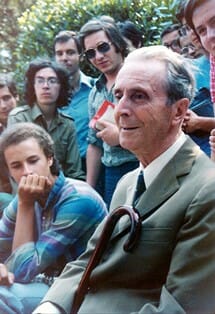
7 Jun 2015 | Non categorizzato
 “To me, Chiara Lubich’s talks on the Eucharist were like a revelation that led me to a broader and more precise knowledge of the Eucharist’s deep impact not only on the individual but on society. I saw that the progress of Christian conscience in the individual and in society depends on the depth of the knowledge Christians have of the Eucharist. In other words: if we know what the Eucharist is, and we live its reality as such, we can draw forth from Christianity the deepest value our soul and society needs. In fact the Eucharist unites man with God and is the mystery of Christ’s love for humanity. It is communion with Christ and our brothers; it is unity with both. If we want to see the progress of society’s highest communitarian and universal aspirations that oppose egoism, racisms, tyrannies of sorts, etc., we have to make the Eucharistic conscience grow, and live it profoundly. We can say that the relationship with God and man himself is a Eucharistic mystery in which God makes himself man because man can be like God. It is nothing less than that. With her explanations, Chiara makes us consciously enter not only into the mentality of Christ, but into his humanity and divinity. She wants us to coexist, through the sacramental communion, with both the divinity and humanity of Jesus. It is a revolution that defies man and sets him in contrast with and above the process of moral degradation besetting society today. The revolt against death starts from the Eucharist. Chiara has thus stamped on our lives a mark of heroism and sanctity. There is no need for mediocrity to be able to live within human coexistence. What comes to mind is the question the angel asked the souls that entered Dante’s purgatory: “Oh you humans who have been born to fly – why have you fallen under the breeze?” Meaning to say, oh man, why do you, who are born to fly to God, let yourself fall into sin so easily and lose this chance to fly? Sanctity is heroism, but which is immensely facilitated by daily nutriment of the Eucharistic bread. It implies a daily, assiduous devotion, going one step higher each day, beyond the mediocrity in which a greater part of humanity lives in today. This mediocrity consists in lies, lust, thefts, and violence which is not a way of living but of stupidly organising our own agony. The Eucharist gives us wings to fly!” Igino Giordani, The Eucharist gives us wings to fly, «GEN» November 2004, pp.10-11
“To me, Chiara Lubich’s talks on the Eucharist were like a revelation that led me to a broader and more precise knowledge of the Eucharist’s deep impact not only on the individual but on society. I saw that the progress of Christian conscience in the individual and in society depends on the depth of the knowledge Christians have of the Eucharist. In other words: if we know what the Eucharist is, and we live its reality as such, we can draw forth from Christianity the deepest value our soul and society needs. In fact the Eucharist unites man with God and is the mystery of Christ’s love for humanity. It is communion with Christ and our brothers; it is unity with both. If we want to see the progress of society’s highest communitarian and universal aspirations that oppose egoism, racisms, tyrannies of sorts, etc., we have to make the Eucharistic conscience grow, and live it profoundly. We can say that the relationship with God and man himself is a Eucharistic mystery in which God makes himself man because man can be like God. It is nothing less than that. With her explanations, Chiara makes us consciously enter not only into the mentality of Christ, but into his humanity and divinity. She wants us to coexist, through the sacramental communion, with both the divinity and humanity of Jesus. It is a revolution that defies man and sets him in contrast with and above the process of moral degradation besetting society today. The revolt against death starts from the Eucharist. Chiara has thus stamped on our lives a mark of heroism and sanctity. There is no need for mediocrity to be able to live within human coexistence. What comes to mind is the question the angel asked the souls that entered Dante’s purgatory: “Oh you humans who have been born to fly – why have you fallen under the breeze?” Meaning to say, oh man, why do you, who are born to fly to God, let yourself fall into sin so easily and lose this chance to fly? Sanctity is heroism, but which is immensely facilitated by daily nutriment of the Eucharistic bread. It implies a daily, assiduous devotion, going one step higher each day, beyond the mediocrity in which a greater part of humanity lives in today. This mediocrity consists in lies, lust, thefts, and violence which is not a way of living but of stupidly organising our own agony. The Eucharist gives us wings to fly!” Igino Giordani, The Eucharist gives us wings to fly, «GEN» November 2004, pp.10-11
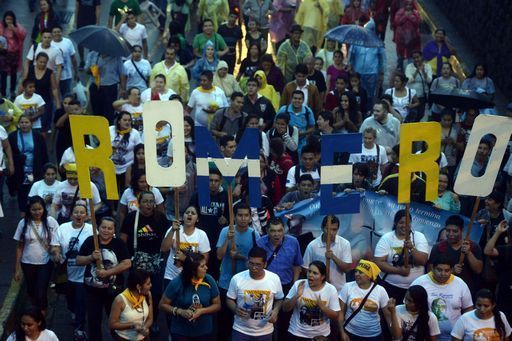
6 Jun 2015 | Focolare Worldwide
 “The last time we ever saw anything like this was when Pope John Paul II visited in 1983,” writes Filippo Casabianca, from El Salvador. It is a land with a population of 6 million people in an area of 21 thousand km2 that had amongst its sons this bishop who is widely recognized as one of the most important ecclesial figures of the American continent. The Cause had been opened by Bishop Rivera y Damas, his successor as shepherd of the Diocese, on the tenth anniversary of his death on March 24, 1980. That was the year Marita Sartori and Carlo Casabeltrame visited three Franciscan friars who had begun to spread the ideal of unity in El Salvador. In that tragic decade, which opened with the murder of Archbishop Romero and culminated with the murder of 7 Jesuits, their housekeeper and her daughter, the Focolare Movement spread in an extraordinary way in several points of the country, in the midst of a theatre of war. The women’s focolare was opened in 1989 in spite of the danger for the foreign focolarine who went to live there. Since then the country has been through a process that led to the signing of a peace treaty in 1992, and then to a more democratic form of governement with some political stability, but not the long desired reconciliation that today is expressed in a destructive polorization. To this is added the scourge of insecurity because of the proliferation of young criminal gangs and of large segments of the country. The Focolare community are involved in many projects in support of disadvantaged families, through programmes of the New Families Project and the Action for a United World, that have allowed hundreds of children to complete their education supported by the projects of educational centres for poor children, and through interventions in one at-risk quarter for the promotion of social integration. With Romero’s Beatification the awareness of an historic opportunity has grown amongst the people. His message is being preceived as a medicine that could contribute to overcoming opposing views, healing hearts that have been hardened by resentment, and provide what is most necessary in the process of reconciliation. Maribel remarks: “It is a challenge that begins with following the example of Archbishop Romero, which for me continues to help me and my students to nurture peace and justice in people’s hearts .” Whereas, for Amaris: “the celebration will have to give way to reconciliation that lies in forgiving and asking to be forgiven, to heal wounds that are still festering.” Commitment to unity and reconciliation have always been present in the Focolare community, but now they take on the new connotation of a mandate in light of the heroic witness of Archbishop Romero “who knew how to weep with those who weep,” Flora Blandon observed, “and rejoice with those who had a reason to rejoice. The Beatification is the recognition of his life that was anchored in love.” In the messages sent by Pope Francis to the current Archbishop of El Salvador, Josè Luis Escobar Alas, the Pope calls Romero “one of the best sons of the Church,” attributing him with the characteristics of the Good Shepherd who was so dear to him. “Because (God) had bestowed upon the bishop martyr the capacity to see and listen to the suffering of his people and to shape his heart that, in his name, he might guide and illumine.” Francis also also recognised his exemplarity and invited all to encounter in the figure of Romero “strength and courage for building the Kingdom of God and being involved in the search for a more dignified and equal social order.”
“The last time we ever saw anything like this was when Pope John Paul II visited in 1983,” writes Filippo Casabianca, from El Salvador. It is a land with a population of 6 million people in an area of 21 thousand km2 that had amongst its sons this bishop who is widely recognized as one of the most important ecclesial figures of the American continent. The Cause had been opened by Bishop Rivera y Damas, his successor as shepherd of the Diocese, on the tenth anniversary of his death on March 24, 1980. That was the year Marita Sartori and Carlo Casabeltrame visited three Franciscan friars who had begun to spread the ideal of unity in El Salvador. In that tragic decade, which opened with the murder of Archbishop Romero and culminated with the murder of 7 Jesuits, their housekeeper and her daughter, the Focolare Movement spread in an extraordinary way in several points of the country, in the midst of a theatre of war. The women’s focolare was opened in 1989 in spite of the danger for the foreign focolarine who went to live there. Since then the country has been through a process that led to the signing of a peace treaty in 1992, and then to a more democratic form of governement with some political stability, but not the long desired reconciliation that today is expressed in a destructive polorization. To this is added the scourge of insecurity because of the proliferation of young criminal gangs and of large segments of the country. The Focolare community are involved in many projects in support of disadvantaged families, through programmes of the New Families Project and the Action for a United World, that have allowed hundreds of children to complete their education supported by the projects of educational centres for poor children, and through interventions in one at-risk quarter for the promotion of social integration. With Romero’s Beatification the awareness of an historic opportunity has grown amongst the people. His message is being preceived as a medicine that could contribute to overcoming opposing views, healing hearts that have been hardened by resentment, and provide what is most necessary in the process of reconciliation. Maribel remarks: “It is a challenge that begins with following the example of Archbishop Romero, which for me continues to help me and my students to nurture peace and justice in people’s hearts .” Whereas, for Amaris: “the celebration will have to give way to reconciliation that lies in forgiving and asking to be forgiven, to heal wounds that are still festering.” Commitment to unity and reconciliation have always been present in the Focolare community, but now they take on the new connotation of a mandate in light of the heroic witness of Archbishop Romero “who knew how to weep with those who weep,” Flora Blandon observed, “and rejoice with those who had a reason to rejoice. The Beatification is the recognition of his life that was anchored in love.” In the messages sent by Pope Francis to the current Archbishop of El Salvador, Josè Luis Escobar Alas, the Pope calls Romero “one of the best sons of the Church,” attributing him with the characteristics of the Good Shepherd who was so dear to him. “Because (God) had bestowed upon the bishop martyr the capacity to see and listen to the suffering of his people and to shape his heart that, in his name, he might guide and illumine.” Francis also also recognised his exemplarity and invited all to encounter in the figure of Romero “strength and courage for building the Kingdom of God and being involved in the search for a more dignified and equal social order.”
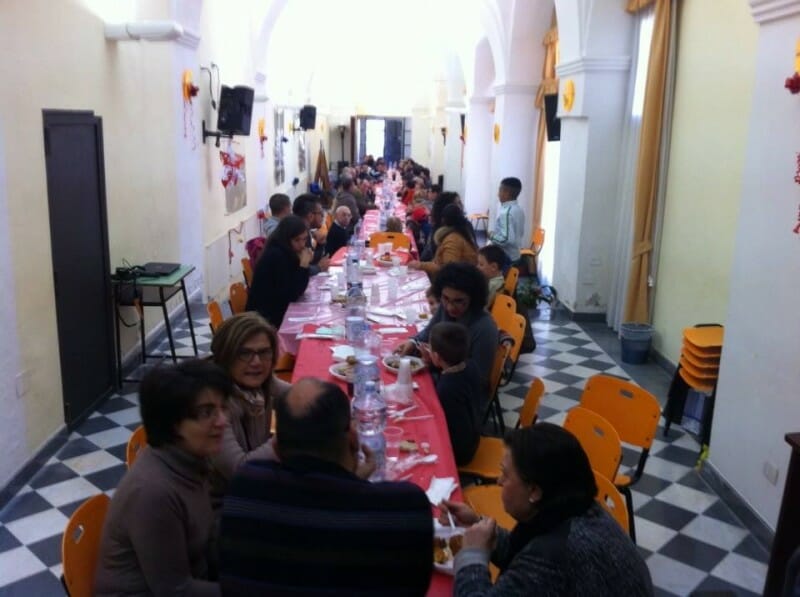
5 Jun 2015 | Focolare Worldwide
 “Last September,” says Luigi, trade unionist, who seeks to live the spirituality of unity along with Fr. Peppino and others in the parish, “we had the idea to organize meals for solidarity for those on the margins of society, for the lonely.” The place to do it? “We realized that with a little work the space we use for parish meetings could become a welcoming dining room. It wasn’t even difficult to make the guest list. Their faces are familiar to us: people we see on the street, who live in the same neighbourhoods where we live, who are our next door neighbours, those who are helped by the Caritas, the elderly, foreigners…” “We started by dividing up the tasks to be done,” interjects Grace. “One offered to do the shopping, notifying restaurants and supermarkets; one offered to cook, with close attention to preparing dishes that even our Muslim friends could eat. The strongest offered to fix up the room and the teen girls offered to prepare the entertainment. A well-rounded team: young people, adults, and even children.” The first lunch was held in October 2014. For everyone involved it was a sunny Sunday, as was the radiant face of the elderly man with the cane and the woman who loved to dance and enjoyed herself so much. A few days before Christmas, the second lunch was held. “You can’t imagine the joy of the anticipation,” remembers Vincent, “when the hall was opened there were already a few elderly participants sitting on a bench waiting. As soon as they saw us they came to embrace us and give us the season’s greetings, and then went to find a place to sit. Immediately after wards all the others arrived, including the children and their parents. Between courses there was music and karaoke, and then the Moroccan girls instructed everyone in dances to songs from their country.” The children, meanwhile, played, coloured, and tried to wait patiently for the big surprise…the arrival of Santa Claus, who distributed gifts for everyone. “For us, the organizers, there were no wrapped presents,” says Carla, “but we received a much more precious gift: the scene of all those people, finally smiling and happy.” After the Christmas lunch followed that of Epiphany, and still many others: a tradition which continues, and each time becomes a chance to intertwine oneself in many cultures and religions. Among the guests, who gradually become more and more numerous, there are Arabians, Ukrainians, Catholics, Orthodox, Evangelicals, people of no religious conviction and especially many Muslims. “Is there difficulty? Commitment? Problems? Of course,” admits Luigi, “because it isn’t easy to organize meals like these from nothing. But the joy that moments like these bring us is indescribable, leaving in each of us the desire and the inventiveness to do more. They are truly opportunities to grow as a person and to grow in the sense of community, in us organizers and in the guests, who are no longer guests but truly brothers and sisters.”
“Last September,” says Luigi, trade unionist, who seeks to live the spirituality of unity along with Fr. Peppino and others in the parish, “we had the idea to organize meals for solidarity for those on the margins of society, for the lonely.” The place to do it? “We realized that with a little work the space we use for parish meetings could become a welcoming dining room. It wasn’t even difficult to make the guest list. Their faces are familiar to us: people we see on the street, who live in the same neighbourhoods where we live, who are our next door neighbours, those who are helped by the Caritas, the elderly, foreigners…” “We started by dividing up the tasks to be done,” interjects Grace. “One offered to do the shopping, notifying restaurants and supermarkets; one offered to cook, with close attention to preparing dishes that even our Muslim friends could eat. The strongest offered to fix up the room and the teen girls offered to prepare the entertainment. A well-rounded team: young people, adults, and even children.” The first lunch was held in October 2014. For everyone involved it was a sunny Sunday, as was the radiant face of the elderly man with the cane and the woman who loved to dance and enjoyed herself so much. A few days before Christmas, the second lunch was held. “You can’t imagine the joy of the anticipation,” remembers Vincent, “when the hall was opened there were already a few elderly participants sitting on a bench waiting. As soon as they saw us they came to embrace us and give us the season’s greetings, and then went to find a place to sit. Immediately after wards all the others arrived, including the children and their parents. Between courses there was music and karaoke, and then the Moroccan girls instructed everyone in dances to songs from their country.” The children, meanwhile, played, coloured, and tried to wait patiently for the big surprise…the arrival of Santa Claus, who distributed gifts for everyone. “For us, the organizers, there were no wrapped presents,” says Carla, “but we received a much more precious gift: the scene of all those people, finally smiling and happy.” After the Christmas lunch followed that of Epiphany, and still many others: a tradition which continues, and each time becomes a chance to intertwine oneself in many cultures and religions. Among the guests, who gradually become more and more numerous, there are Arabians, Ukrainians, Catholics, Orthodox, Evangelicals, people of no religious conviction and especially many Muslims. “Is there difficulty? Commitment? Problems? Of course,” admits Luigi, “because it isn’t easy to organize meals like these from nothing. But the joy that moments like these bring us is indescribable, leaving in each of us the desire and the inventiveness to do more. They are truly opportunities to grow as a person and to grow in the sense of community, in us organizers and in the guests, who are no longer guests but truly brothers and sisters.”
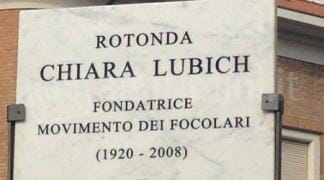
4 Jun 2015 | Focolare Worldwide
 In a ceremony held on Saturday May 30th, a traffic circle was dedicated to Chiara Lubich, foundress of the Focolare Movement and honorary citizen of Rimini, between Savonarola Street, Giacomo Matteotti Boulevard, and Mille Street, overlooking the University complex “Navigare Necesse.” “A moment of attention for an important figure connected to our city,” said Irina Imola, the assessor to the General Services of the municipality of Rimini, who opened the ceremony. “For this, I thank all the authorities present and the many who have drawn teaching and comfort from the work of Chiara Lubich.” In 1997 the Municipality of Rimini had conferred upon Chiara Lubich honorary citizenship, “for her work of construction,” among the motivations expressed by the City Council, “of a civilization of love, tolerance, and solidarity among peoples.” Source: Altarimini online
In a ceremony held on Saturday May 30th, a traffic circle was dedicated to Chiara Lubich, foundress of the Focolare Movement and honorary citizen of Rimini, between Savonarola Street, Giacomo Matteotti Boulevard, and Mille Street, overlooking the University complex “Navigare Necesse.” “A moment of attention for an important figure connected to our city,” said Irina Imola, the assessor to the General Services of the municipality of Rimini, who opened the ceremony. “For this, I thank all the authorities present and the many who have drawn teaching and comfort from the work of Chiara Lubich.” In 1997 the Municipality of Rimini had conferred upon Chiara Lubich honorary citizenship, “for her work of construction,” among the motivations expressed by the City Council, “of a civilization of love, tolerance, and solidarity among peoples.” Source: Altarimini online
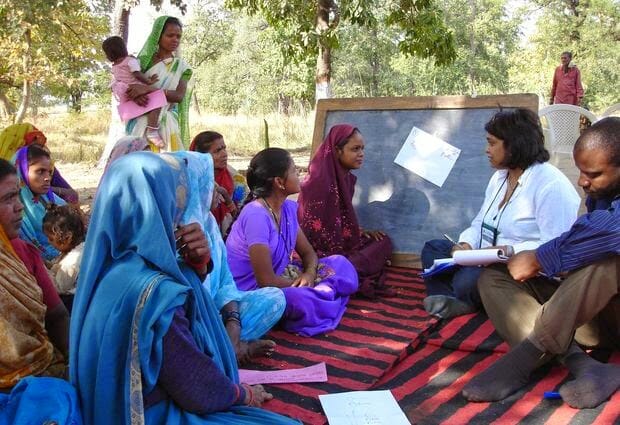
4 Jun 2015 | Non categorizzato
 While gender is the topic under discussion in the Western world, in developing countries the concern is for the tragedy of exploitation; in the Middle East the rights of women, and peace. Still in the West, women forced to choose between work and family; lives that are subjected to violence… These are a few of the challenges and problems – differing according to the various geographical areas – in discussion at the United Nations, in view of the new agenda for the Sustainable Development Goals, to be carried out after the year 2015 (the date by which the 193 member states hoped to achieve the famous Millennium Development Goals). These challenges and problems were also discussed during the three days sponsored by the Pontifical Council for Justice and Peace (Rome, May 22-24, 2015), in collaboration with the World Union of Catholic Women’s Organizations and the World Women’s Alliance for Life and Family. Not only an overview of the most urgent issues linked to woman’s conditions, nor a mere moment of condemnation of the violations of her dignity and her rights. The 120 women from different countries wanted to offer a contribution of experiences and ideas, then synthesized in a final document towards the new United Nations Post-2015 Development Agenda. In his message to Cardinal Turkson, president of Justice and Peace, Pope Francis wanted to give voice to the petitions promoted by the Catholic feminine world in international proceedings, inviting those who are “engaged in defending the dignity of women and promoting their rights,” to allow themselves “to be constantly guided by the spirit of humanity and compassion” in the service of their neighbours. “In this way,” continues the pope, “you will manifest the countless God-given gifts which women have to offer, encouraging others to promote sensitivity, understanding and dialogue in settling conflicts big and small, in healing wounds, in nurturing all life at every level of society, and in embodying the mercy and tenderness which bring reconciliation and unity to our world.” The contributions ranged from: feminine anthropology, women and education, women and interreligious dialogue, technologies related to life and to procreation, human rights, women and agricultural work, to business and finance etc., followed by work in thematic atelier, or workshops (a term which recalls the “artisan work” of finesse and industriousness, typical of women) on the Sustainable Development Goals, for an elaboration of proposals. Rita Mousallem, co-director of the Centre for Interreligious Dialogue of the Focolare Movement, spoke on the subject of “Interreligious Dialogue, means for a lasting peace. The roll of women,” taking inspiration from her personal experience as a Christian in the Middle East. In the various interviews to which she responded, she stressed the ability to listen, a typical characteristic of women, which provides the possibility to enter into the innermost part of oneself and of others; to know how to suffer and how to hope until the end, because – being a mother – she well knows the value of life. These aspects and others are part of that “feminine genius” – also quoted by Pope Francis – the gift and beauty typical of woman, called to give her contribution to today’s society, for the benefit of all. Read more: Aleteia
While gender is the topic under discussion in the Western world, in developing countries the concern is for the tragedy of exploitation; in the Middle East the rights of women, and peace. Still in the West, women forced to choose between work and family; lives that are subjected to violence… These are a few of the challenges and problems – differing according to the various geographical areas – in discussion at the United Nations, in view of the new agenda for the Sustainable Development Goals, to be carried out after the year 2015 (the date by which the 193 member states hoped to achieve the famous Millennium Development Goals). These challenges and problems were also discussed during the three days sponsored by the Pontifical Council for Justice and Peace (Rome, May 22-24, 2015), in collaboration with the World Union of Catholic Women’s Organizations and the World Women’s Alliance for Life and Family. Not only an overview of the most urgent issues linked to woman’s conditions, nor a mere moment of condemnation of the violations of her dignity and her rights. The 120 women from different countries wanted to offer a contribution of experiences and ideas, then synthesized in a final document towards the new United Nations Post-2015 Development Agenda. In his message to Cardinal Turkson, president of Justice and Peace, Pope Francis wanted to give voice to the petitions promoted by the Catholic feminine world in international proceedings, inviting those who are “engaged in defending the dignity of women and promoting their rights,” to allow themselves “to be constantly guided by the spirit of humanity and compassion” in the service of their neighbours. “In this way,” continues the pope, “you will manifest the countless God-given gifts which women have to offer, encouraging others to promote sensitivity, understanding and dialogue in settling conflicts big and small, in healing wounds, in nurturing all life at every level of society, and in embodying the mercy and tenderness which bring reconciliation and unity to our world.” The contributions ranged from: feminine anthropology, women and education, women and interreligious dialogue, technologies related to life and to procreation, human rights, women and agricultural work, to business and finance etc., followed by work in thematic atelier, or workshops (a term which recalls the “artisan work” of finesse and industriousness, typical of women) on the Sustainable Development Goals, for an elaboration of proposals. Rita Mousallem, co-director of the Centre for Interreligious Dialogue of the Focolare Movement, spoke on the subject of “Interreligious Dialogue, means for a lasting peace. The roll of women,” taking inspiration from her personal experience as a Christian in the Middle East. In the various interviews to which she responded, she stressed the ability to listen, a typical characteristic of women, which provides the possibility to enter into the innermost part of oneself and of others; to know how to suffer and how to hope until the end, because – being a mother – she well knows the value of life. These aspects and others are part of that “feminine genius” – also quoted by Pope Francis – the gift and beauty typical of woman, called to give her contribution to today’s society, for the benefit of all. Read more: Aleteia
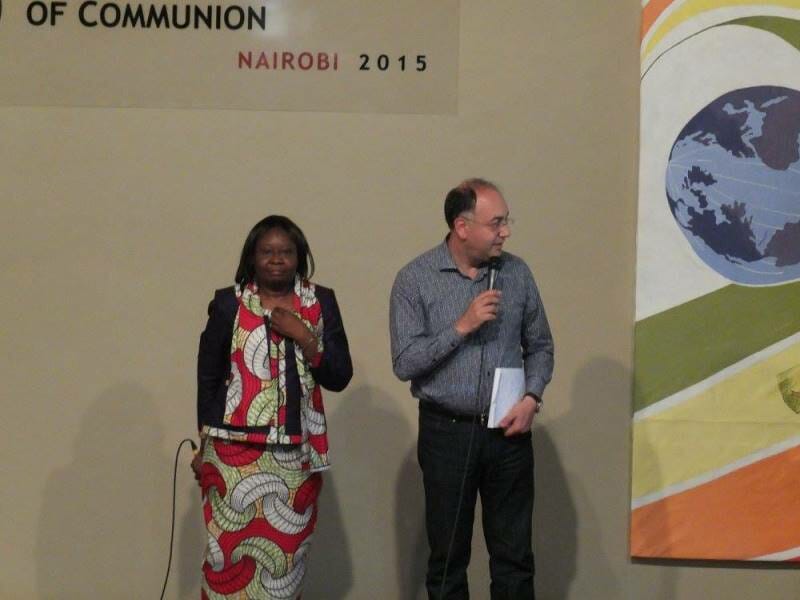
3 Jun 2015 | Focolare Worldwide
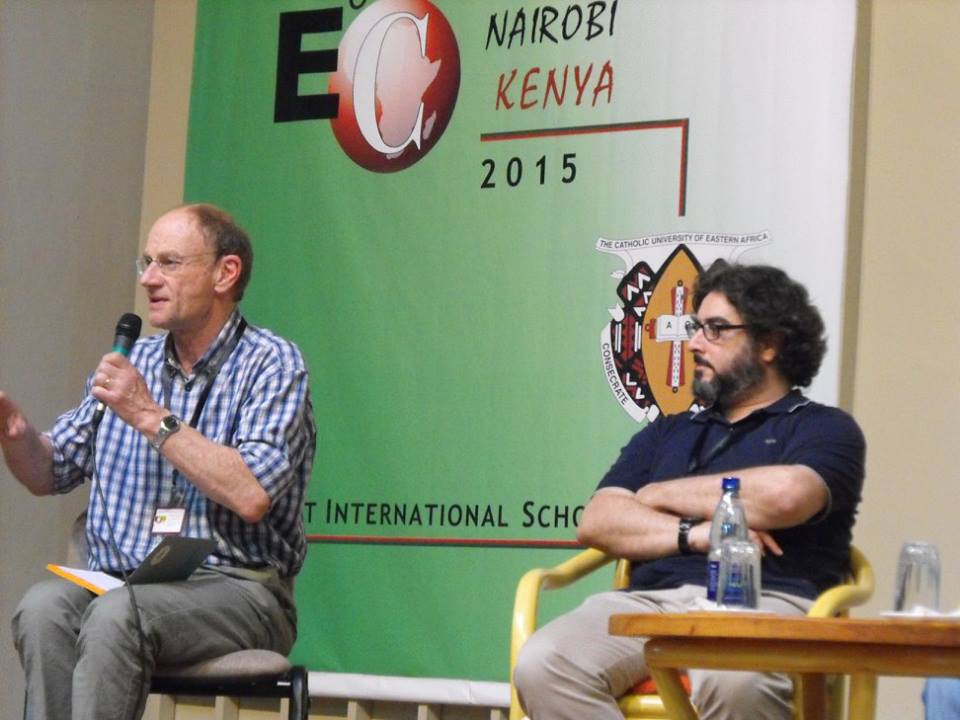 In order to look toward the future, on the last day of the meeting, the Congress turned its gaze on the new generations. With the first engaging words of Anouk Grevin, Professor of Management at the University of Nantes and member of the International Commission of the EoC, everyone broke into applause: “When a baby is born,” he said, “the whole community shows care, the child that was born belongs to everyone.” His words express one of the most important values of the African continent and that is,”You need a village to grow a child”. Grevin went on to say, “We lived such wonderful dreams with the young people at the International EoC School!” With much enthusiasm Anouk moved around the hall. The walls were covered with pictures of the young people’s projects, and their dreams. With unique creativity and a passion that would be difficult to describe, the young people presented those projects: some already underway, others only dreams, although for them that didn’t matter! John Mundell launched an appeal to his friends: open your businesses to introduce these new generations into the work world: “The experience in an EoC business makes you experience a wealth of true relationships along with professionalism!”
In order to look toward the future, on the last day of the meeting, the Congress turned its gaze on the new generations. With the first engaging words of Anouk Grevin, Professor of Management at the University of Nantes and member of the International Commission of the EoC, everyone broke into applause: “When a baby is born,” he said, “the whole community shows care, the child that was born belongs to everyone.” His words express one of the most important values of the African continent and that is,”You need a village to grow a child”. Grevin went on to say, “We lived such wonderful dreams with the young people at the International EoC School!” With much enthusiasm Anouk moved around the hall. The walls were covered with pictures of the young people’s projects, and their dreams. With unique creativity and a passion that would be difficult to describe, the young people presented those projects: some already underway, others only dreams, although for them that didn’t matter! John Mundell launched an appeal to his friends: open your businesses to introduce these new generations into the work world: “The experience in an EoC business makes you experience a wealth of true relationships along with professionalism!” 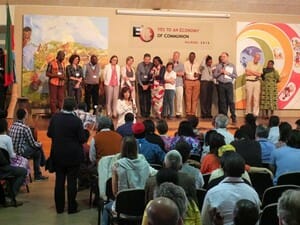 The real life events of the business people from around the world – especially the young people – gave glimpses of a better future: from Italy to Argentina, to Paraguay, to the presentation of a thesis on the EoC by a young Brazilian woman who is about to finish her studies at Sophia Institute. If today our gaze is pointed towards the future-present, then it is an important moment for making strong and binding commitments: “We should promise ourselves that we will never turn back,” said Luigino Bruni. “ We’ve lived some miracles over the past few days, our stories that need to be told to everyone. The EoC isn’t a consumer good, many people in the world waiting for it. We need to continue to be “producers” of communion, not only its consumers.” The final statement was a powerful appeal. The promise to give one’s life for an economy of communion. Then the business people wished to leave a visible sign of their personal commitment, which materialised in the form of a “pact,” which everyone was free to sign.
The real life events of the business people from around the world – especially the young people – gave glimpses of a better future: from Italy to Argentina, to Paraguay, to the presentation of a thesis on the EoC by a young Brazilian woman who is about to finish her studies at Sophia Institute. If today our gaze is pointed towards the future-present, then it is an important moment for making strong and binding commitments: “We should promise ourselves that we will never turn back,” said Luigino Bruni. “ We’ve lived some miracles over the past few days, our stories that need to be told to everyone. The EoC isn’t a consumer good, many people in the world waiting for it. We need to continue to be “producers” of communion, not only its consumers.” The final statement was a powerful appeal. The promise to give one’s life for an economy of communion. Then the business people wished to leave a visible sign of their personal commitment, which materialised in the form of a “pact,” which everyone was free to sign.

Genéviève Sanzé and Luigino Bruni addressing the conference
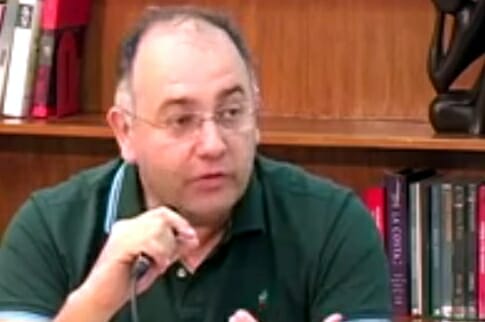
3 Jun 2015 | Focolare Worldwide
 “The Economy of Communion (EoC) has returned to Africa. We’re here from around world, drawn by both the blessings and the wounds of this great continent, to take a look at the world economy from an African perspective; also to be taught by these peoples, by their great calling to life, social relationships and encounter. I have always been struck by Africa’s ability to create, and by its life. There is a lot of dancing in Africa, a lot of feasting and celebration. One thing that I find stupendous in Africa is that you even see elderly women dancing. Nowadays, in Europe and in the Northern hemisphere it is less common to see elderly men and women freely celebrating and dancing over the joy of being together. We also came to Africa to learn how to dance, men, women and children. Africa certainly has a vocation to generate life in all of its dimensions. The sense of brotherhood with the earth and with all of nature is a great value of African culture. This is one of the many gifts that Africa offers to the entire Economy of Communion worldwide, and many future generations should make this discovery. What messages can reach the Africa of today from the EoC? We will take the time to tell our stories, both great and small, and from there we will set out into a new land. The first contribution that the EoC would like to take to Africa is appreciation and esteem for what Africa already is and not only for what it might become. The people’s first strength is their dreams, especially their collective dreams and those of the poor. Generating is very connected to an economic term that is important for Africa and for everyone: innovation. A first message that we receive from the logic of this new budding is subsidiatiry: our hands and our technology can only subsidize, that is, help the bud to bloom; they cannot invent it. The economic and social innovations of Africa will grow primarily from its own soil, from its land and not from the outside. The gift of the EoC is that of having eyes that can see buds where others see only deserts. There are many young people here in Africa who have already begun the walk, often together: and it is from these buds that we should learn to see the forest. The essential energy of any undertaking is the hunger for life, and for the future of young people and the poor, who are very abundant here in Africa. In order for the poor and excluded to become an engine of change of a country, the role of political and economic institutions is essential. New financial institutions are being born from the EoC. But banks and all the other institutions are only able to assist economic innovations, not create or invent them. Without people with creativity, talent, competence and passion, you will never give rise to the experience of a new economy. It is necessary that each individual activates his or her own innovative skills and, if possible, join it to that of others who have the same wish to do and create. Our dream is to create one of these institutions right here at Mariapolis Piero. It will be a centre that can be a place for trust, for accompanying and serving new EoC ideas that will be born especially from young people.”
“The Economy of Communion (EoC) has returned to Africa. We’re here from around world, drawn by both the blessings and the wounds of this great continent, to take a look at the world economy from an African perspective; also to be taught by these peoples, by their great calling to life, social relationships and encounter. I have always been struck by Africa’s ability to create, and by its life. There is a lot of dancing in Africa, a lot of feasting and celebration. One thing that I find stupendous in Africa is that you even see elderly women dancing. Nowadays, in Europe and in the Northern hemisphere it is less common to see elderly men and women freely celebrating and dancing over the joy of being together. We also came to Africa to learn how to dance, men, women and children. Africa certainly has a vocation to generate life in all of its dimensions. The sense of brotherhood with the earth and with all of nature is a great value of African culture. This is one of the many gifts that Africa offers to the entire Economy of Communion worldwide, and many future generations should make this discovery. What messages can reach the Africa of today from the EoC? We will take the time to tell our stories, both great and small, and from there we will set out into a new land. The first contribution that the EoC would like to take to Africa is appreciation and esteem for what Africa already is and not only for what it might become. The people’s first strength is their dreams, especially their collective dreams and those of the poor. Generating is very connected to an economic term that is important for Africa and for everyone: innovation. A first message that we receive from the logic of this new budding is subsidiatiry: our hands and our technology can only subsidize, that is, help the bud to bloom; they cannot invent it. The economic and social innovations of Africa will grow primarily from its own soil, from its land and not from the outside. The gift of the EoC is that of having eyes that can see buds where others see only deserts. There are many young people here in Africa who have already begun the walk, often together: and it is from these buds that we should learn to see the forest. The essential energy of any undertaking is the hunger for life, and for the future of young people and the poor, who are very abundant here in Africa. In order for the poor and excluded to become an engine of change of a country, the role of political and economic institutions is essential. New financial institutions are being born from the EoC. But banks and all the other institutions are only able to assist economic innovations, not create or invent them. Without people with creativity, talent, competence and passion, you will never give rise to the experience of a new economy. It is necessary that each individual activates his or her own innovative skills and, if possible, join it to that of others who have the same wish to do and create. Our dream is to create one of these institutions right here at Mariapolis Piero. It will be a centre that can be a place for trust, for accompanying and serving new EoC ideas that will be born especially from young people.”
![Poland: Christian-Muslim Dialogue in Katowice]()
1 Jun 2015 | Non categorizzato
 In Poland, with its population of 38 million, 90% of whom are Christian, the Muslims are a religious minority. They number 25 thousand, 0.08% of the population. Their presence presence back to the Tartars of the 14th century; then there was the immigration of the second half of the 20th century and the years after the Berlin wall. The recent day of dialogue is inserted amongst three major events in the ongoing dialogue amongst Christians and Muslims in Poland. Father Adam Was, from the Polish Catholic Bishops Conference’s Committee for non-Christian Religions, describes the event: The Day of Islam in the Catholic Church in Poland, instituted in 2000 by the Polish Catholic Bishops Conference at the request of the Mixed Council of Catholics and Muslims, is celebrated each year on June 26; also the Prayer of Peace and Justice in the World, begun in the aftermath of September 11, 2001, promoted by Polish Tartars; and finally “the unprecedented event,” as described by Mufti Nedal abu Tabaq, the “Christians Amongst Muslims in Poland,” established on May 29, 2015 and begun three years ago by the Muslim League in Poland. Fifty guests were invited to speak at the event, invited by Imam Abdul Jabbar Koubaisy, Director of the Centre and vice-president of the Muslim League in Poland: local civil authorities, representatives from the Catholic, Orthodox and Lutheran Churches; representatives from the University of Silesia and from the Jewish Community of Katowice. Focolare president, Maria Voce, and co-president Jesús Morán were the guests of honour.
In Poland, with its population of 38 million, 90% of whom are Christian, the Muslims are a religious minority. They number 25 thousand, 0.08% of the population. Their presence presence back to the Tartars of the 14th century; then there was the immigration of the second half of the 20th century and the years after the Berlin wall. The recent day of dialogue is inserted amongst three major events in the ongoing dialogue amongst Christians and Muslims in Poland. Father Adam Was, from the Polish Catholic Bishops Conference’s Committee for non-Christian Religions, describes the event: The Day of Islam in the Catholic Church in Poland, instituted in 2000 by the Polish Catholic Bishops Conference at the request of the Mixed Council of Catholics and Muslims, is celebrated each year on June 26; also the Prayer of Peace and Justice in the World, begun in the aftermath of September 11, 2001, promoted by Polish Tartars; and finally “the unprecedented event,” as described by Mufti Nedal abu Tabaq, the “Christians Amongst Muslims in Poland,” established on May 29, 2015 and begun three years ago by the Muslim League in Poland. Fifty guests were invited to speak at the event, invited by Imam Abdul Jabbar Koubaisy, Director of the Centre and vice-president of the Muslim League in Poland: local civil authorities, representatives from the Catholic, Orthodox and Lutheran Churches; representatives from the University of Silesia and from the Jewish Community of Katowice. Focolare president, Maria Voce, and co-president Jesús Morán were the guests of honour.  ”Interreligious dialogue is a necessary condition for peace in the world, and so it is a duty for Christians as well as other religious communities” (EG, 250), recalled Metropolitan of Katowice, Archbishop Wiktor Skwore, in his message that was ready by Father Tadeusz Czakański, the Metropolitan’s delegate for the dialogue with Islam. And focusing in on the theme of the meeting, he underscored how: the foundation of the entire teaching of Jesus Christ lies in merciful love towards one’s neighbour,” and he wished that this interreligious meeting in Katowice would help all “to live more deeply the mystery of God’s Mercy” and that “it would contribute to a greater openness towards one another, to more efficient cooperation on the ground in caring for the marginalised and oppressed.” Then, in her speech, Maria Voce recalled some passages of the Christian Scriptures that speak of Jesus even before his birth, highlighting his concrete love towards the human person. “It was this universal love, without reservations that has fascinated everyone who belongs to the Focolare, and it has become our rule of life,” the Focolare president noted. One of Chiara Lubich’s intuitions, which constitutes one of the fundamental points of her spirituality of unity, was the discovery of the Jesus’ commandment par excellence: ‘This is my commandment: love one another as I love you. No one has greater love, to lay down one’s life for one’s friends” (Jn 15:12-13). “Loving in this way is not always easy,” Maria Voce admitted, “at times, or very often this love towards our brother or sister requires sacrifice and fatigue. . . But also here Jesus is the model: he loved to the point of giving his life for us.” In concluding, she expressed her wish that: God, “the greatest and most merciful, would help us to look upon everyone with the gaze of a brother or sister, with the measure of love that he revealed to us, so that together we can build a world that everyone is waiting for where brotherhood and true peace reign.” While speaking of Jesus Christ, Mufti Nedal Abu Tabaq, who is responsible over all the Imams in Poland, affirmed that in the Koran it is written that “Jesus is the sign”. “He was not only miraculously conceived, but he also performed miracles, cured the sick, raised the dead. Each one of us must resuscitate the light in those who suffer (. . .) We are not candles that can burn out; we are the fire that is already come forth from it, and this light is present in every human being, but we must revive it, make it emerge (. . .) in the needs, as Jesus Christ had done (. . .) This is the Jesus whom I love, whom I know, whom I praise.” Common action in favour of interreligious dialogue: the threat against the value of the family and the need, as believers, to protect it; educating children in dialogue: these were a few of the issues that were dealt with in a fraternal dialogue with Maria Voce and Jesús Morán, during the second part of the programme. The programme concluded with the Lord’s Prayer recited by Christians and the Dua recited by Muslims. There was a sign of peace, expressed in a handshake or embrace celebrating the fraternal love that was experienced in those hours amongst Christians, Muslims and Jews.
”Interreligious dialogue is a necessary condition for peace in the world, and so it is a duty for Christians as well as other religious communities” (EG, 250), recalled Metropolitan of Katowice, Archbishop Wiktor Skwore, in his message that was ready by Father Tadeusz Czakański, the Metropolitan’s delegate for the dialogue with Islam. And focusing in on the theme of the meeting, he underscored how: the foundation of the entire teaching of Jesus Christ lies in merciful love towards one’s neighbour,” and he wished that this interreligious meeting in Katowice would help all “to live more deeply the mystery of God’s Mercy” and that “it would contribute to a greater openness towards one another, to more efficient cooperation on the ground in caring for the marginalised and oppressed.” Then, in her speech, Maria Voce recalled some passages of the Christian Scriptures that speak of Jesus even before his birth, highlighting his concrete love towards the human person. “It was this universal love, without reservations that has fascinated everyone who belongs to the Focolare, and it has become our rule of life,” the Focolare president noted. One of Chiara Lubich’s intuitions, which constitutes one of the fundamental points of her spirituality of unity, was the discovery of the Jesus’ commandment par excellence: ‘This is my commandment: love one another as I love you. No one has greater love, to lay down one’s life for one’s friends” (Jn 15:12-13). “Loving in this way is not always easy,” Maria Voce admitted, “at times, or very often this love towards our brother or sister requires sacrifice and fatigue. . . But also here Jesus is the model: he loved to the point of giving his life for us.” In concluding, she expressed her wish that: God, “the greatest and most merciful, would help us to look upon everyone with the gaze of a brother or sister, with the measure of love that he revealed to us, so that together we can build a world that everyone is waiting for where brotherhood and true peace reign.” While speaking of Jesus Christ, Mufti Nedal Abu Tabaq, who is responsible over all the Imams in Poland, affirmed that in the Koran it is written that “Jesus is the sign”. “He was not only miraculously conceived, but he also performed miracles, cured the sick, raised the dead. Each one of us must resuscitate the light in those who suffer (. . .) We are not candles that can burn out; we are the fire that is already come forth from it, and this light is present in every human being, but we must revive it, make it emerge (. . .) in the needs, as Jesus Christ had done (. . .) This is the Jesus whom I love, whom I know, whom I praise.” Common action in favour of interreligious dialogue: the threat against the value of the family and the need, as believers, to protect it; educating children in dialogue: these were a few of the issues that were dealt with in a fraternal dialogue with Maria Voce and Jesús Morán, during the second part of the programme. The programme concluded with the Lord’s Prayer recited by Christians and the Dua recited by Muslims. There was a sign of peace, expressed in a handshake or embrace celebrating the fraternal love that was experienced in those hours amongst Christians, Muslims and Jews.
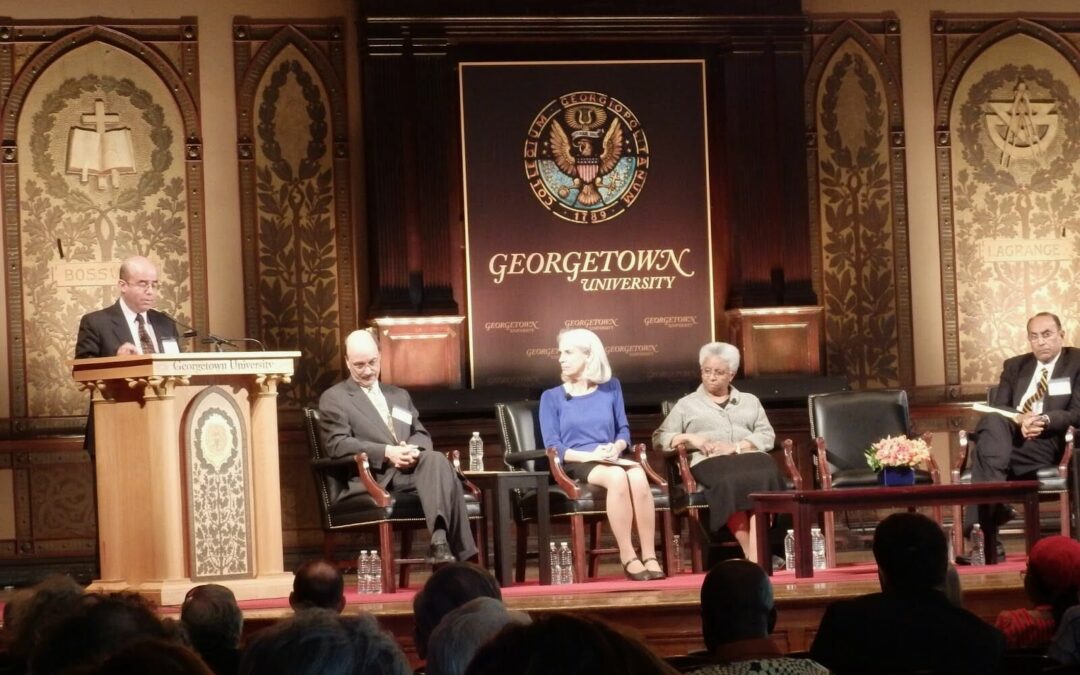
1 Jun 2015 | Focolare Worldwide
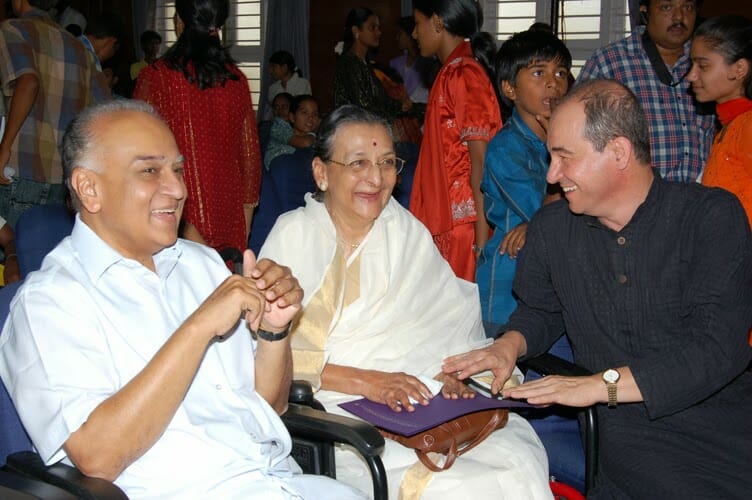
Roberto Catalano (right right) with Minoti Aram, of the Shanti Ashram in Combiatore (India), and other Hindu participants at an interreligious workshop.
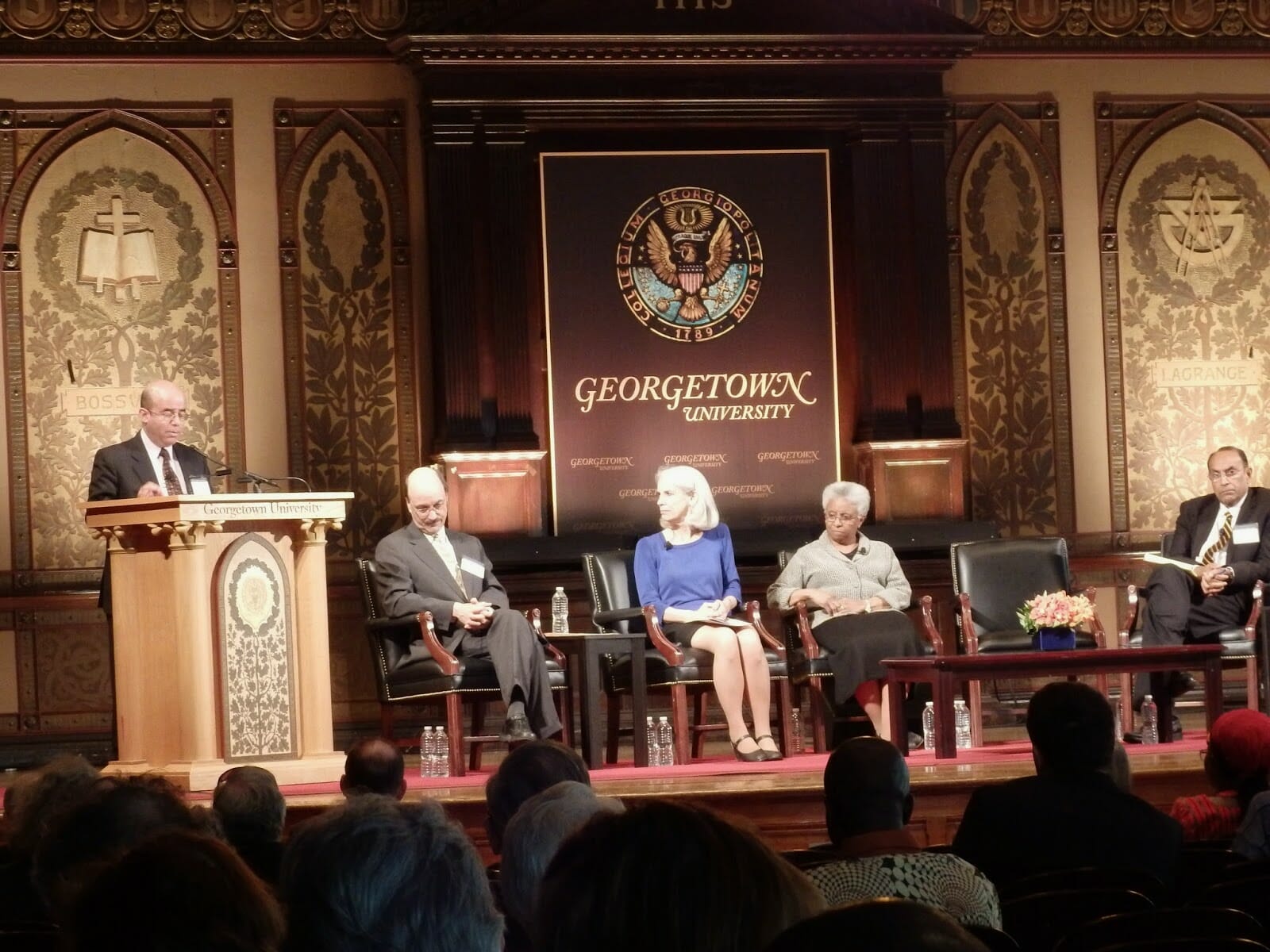 “The conference is of great value,” continues Roberto Catalano. “There were speeches in the plenary session and also in parallel sessions of great theological and spiritual depth. Great human and intellectual openness, and a desire to deepen our understanding of an event like the Council from different points of view: geographical without a doubt, but especially of perspective and of content. There were speeches that sought to contextualize what happened between 1962 and 1965, and why. Others confronted the historical aspects which brought about the unfolding of the council event. But another important topic was the interpretation of all that has happened after the council and how these fifty years have not been sufficient for its fulfillment. The opinions came in succession in an atmosphere of profound listening, interest and intellectual and spiritual openness.” “Even among different opinions, the Council emerges from this period of study half a century from its conclusion, as an event that changed the Church and humanity. The prophetic dimension which characterized the documents that were promulgated at the end of the council assembly is especially striking.” And it is precisely on this dimension of prophecy which his discourse is founded, upon the role of some movements, such as the Focolare Movement and Sant’Egidio, in the actualization of Nostra Aetate. Dialogue as a duty, dialogue as a culture of meeting, dialogue as a pilgrimage and dialogue as open and emphatic thinking are just a few of the points expounded by Catalano. One day of the convention was entirely dedicated to ecumenism and to what the Council has meant for this aspect. There followed discourses by Catholics, Lutherans, Presbyterians, Orthodox, and Episcopalians: “There was also a serious tone due to missed appointments and obstacles that still remain for a true communion between the various Churches. But the most significant speech, marked by several minutes of thunderous applause within the Episcopalian National Cathedral, was that of Cardinal Walter Kasper, who, after a masterful analysis of the history and a few theological aspects of the ecumenical matter, concluded with his pragmatic but refreshing optimism; “Unity perhaps has already started!” “It is clear,” concludes Catalano, “how in these fifty years enormous steps forward have been made, and that unity will never be a ‘return’ or a unification, but a ‘communion.’“
“The conference is of great value,” continues Roberto Catalano. “There were speeches in the plenary session and also in parallel sessions of great theological and spiritual depth. Great human and intellectual openness, and a desire to deepen our understanding of an event like the Council from different points of view: geographical without a doubt, but especially of perspective and of content. There were speeches that sought to contextualize what happened between 1962 and 1965, and why. Others confronted the historical aspects which brought about the unfolding of the council event. But another important topic was the interpretation of all that has happened after the council and how these fifty years have not been sufficient for its fulfillment. The opinions came in succession in an atmosphere of profound listening, interest and intellectual and spiritual openness.” “Even among different opinions, the Council emerges from this period of study half a century from its conclusion, as an event that changed the Church and humanity. The prophetic dimension which characterized the documents that were promulgated at the end of the council assembly is especially striking.” And it is precisely on this dimension of prophecy which his discourse is founded, upon the role of some movements, such as the Focolare Movement and Sant’Egidio, in the actualization of Nostra Aetate. Dialogue as a duty, dialogue as a culture of meeting, dialogue as a pilgrimage and dialogue as open and emphatic thinking are just a few of the points expounded by Catalano. One day of the convention was entirely dedicated to ecumenism and to what the Council has meant for this aspect. There followed discourses by Catholics, Lutherans, Presbyterians, Orthodox, and Episcopalians: “There was also a serious tone due to missed appointments and obstacles that still remain for a true communion between the various Churches. But the most significant speech, marked by several minutes of thunderous applause within the Episcopalian National Cathedral, was that of Cardinal Walter Kasper, who, after a masterful analysis of the history and a few theological aspects of the ecumenical matter, concluded with his pragmatic but refreshing optimism; “Unity perhaps has already started!” “It is clear,” concludes Catalano, “how in these fifty years enormous steps forward have been made, and that unity will never be a ‘return’ or a unification, but a ‘communion.’“
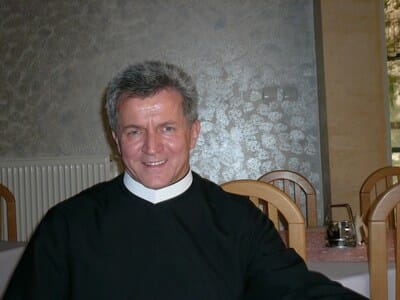
31 May 2015 | Focolare Worldwide, Senza categoria
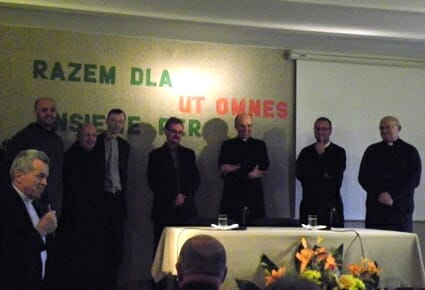 While visiting Poland, Maria Voce and Jesús Moran, President and Co-President of the Focolare Movement, respectively, held a meeting on 26 May in the Mariapolis Fiore (Poland) with a group of priests and religious who were bound in various ways to the Focolare. Fr. Zdzislaw Klafka, a Redemptorist, recounted his encounter with the spirituality of unity and the positive effects in living his specific vocation in a more radical manner. «I feel so grateful to Chiara Lubich for having been God’s docile tool in bringing about in the Church, a spirituality that has helped me face the difficulties in life: When I was nominated the Superior of my congregation, I found a challenge before me. I was in Rome and before returning to Poland, I asked her to suggest a phrase of the Gospel that could enlighten my path. She answered: “No one has greater love than he who gives up his life for his friends.” I was then 29 years old and that phrase became the compass that showed me the way. In living the spirituality of unity I started to look up to my founder, St. Alphonse, in a new way. This was how I rediscovered not only my roots but the evangelical force that lies within every other charism of the Church. Someone asked me whether my adhering to the spirituality of the Focolare was not time stolen from my duties as a Redemptorist. The fact is, and I have experienced it repeatedly, that when I return from my meetings with the religious of other orders, I feel the desire to live my own choice of God even more radically.»
While visiting Poland, Maria Voce and Jesús Moran, President and Co-President of the Focolare Movement, respectively, held a meeting on 26 May in the Mariapolis Fiore (Poland) with a group of priests and religious who were bound in various ways to the Focolare. Fr. Zdzislaw Klafka, a Redemptorist, recounted his encounter with the spirituality of unity and the positive effects in living his specific vocation in a more radical manner. «I feel so grateful to Chiara Lubich for having been God’s docile tool in bringing about in the Church, a spirituality that has helped me face the difficulties in life: When I was nominated the Superior of my congregation, I found a challenge before me. I was in Rome and before returning to Poland, I asked her to suggest a phrase of the Gospel that could enlighten my path. She answered: “No one has greater love than he who gives up his life for his friends.” I was then 29 years old and that phrase became the compass that showed me the way. In living the spirituality of unity I started to look up to my founder, St. Alphonse, in a new way. This was how I rediscovered not only my roots but the evangelical force that lies within every other charism of the Church. Someone asked me whether my adhering to the spirituality of the Focolare was not time stolen from my duties as a Redemptorist. The fact is, and I have experienced it repeatedly, that when I return from my meetings with the religious of other orders, I feel the desire to live my own choice of God even more radically.»

Fr. Zdzislaw Klafka
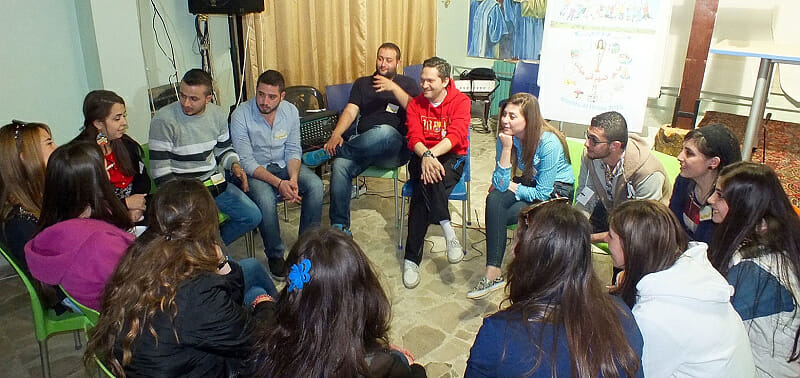
30 May 2015 | Focolare Worldwide
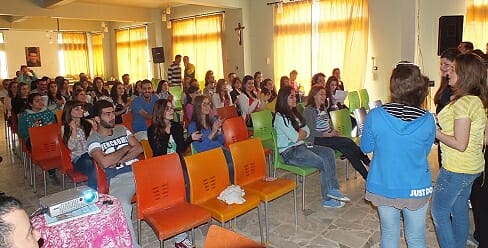 They arrived from: Damascus, Aleppo, Homs, Banias, Kfarbo and Tartous. Who would have ever imagined spending a week-end with the youth from all parts of Syria. Is this pure madness? The organizers asked themselves. Maybe so, but it became a reality. The number kept growing day after day, until it reached a total of 67. «This is how our adventure began,» they recounted. «We chose a safe place which all could reach, even if the trip took 10 hours. The idea was to spend three days together to live, share, pray, cry, and play, immersed in nature but with mutual love among us.» «What matters most in my life?» was the title of the week-end, a question that echoed even more in an uncertain situation like that of the young Syrians. They divided into four groups that focused on different themes: “A special bond with the Father,” “With Jesus every day,” “the Love that makes us free,” and “Love for Mary,” which they deepened with passages of the Holy Scriptures, the Popes and saints, accompanied by true stories of other youth who had preceded them along the path towards sanctity. When I arrived for the week-end I was tired of the war – confided Fatima – and I felt that life was stagnant, but then once again I experienced God’s presence in my life and his Love for us through the love of the others. Now when I undergo difficult moments, I just need to think that someone is praying for me and is trying to live in the same way, and this gives me a great inner peace. I have understood that the most important thing is to live life … loving Jesus in every neighbour.»
They arrived from: Damascus, Aleppo, Homs, Banias, Kfarbo and Tartous. Who would have ever imagined spending a week-end with the youth from all parts of Syria. Is this pure madness? The organizers asked themselves. Maybe so, but it became a reality. The number kept growing day after day, until it reached a total of 67. «This is how our adventure began,» they recounted. «We chose a safe place which all could reach, even if the trip took 10 hours. The idea was to spend three days together to live, share, pray, cry, and play, immersed in nature but with mutual love among us.» «What matters most in my life?» was the title of the week-end, a question that echoed even more in an uncertain situation like that of the young Syrians. They divided into four groups that focused on different themes: “A special bond with the Father,” “With Jesus every day,” “the Love that makes us free,” and “Love for Mary,” which they deepened with passages of the Holy Scriptures, the Popes and saints, accompanied by true stories of other youth who had preceded them along the path towards sanctity. When I arrived for the week-end I was tired of the war – confided Fatima – and I felt that life was stagnant, but then once again I experienced God’s presence in my life and his Love for us through the love of the others. Now when I undergo difficult moments, I just need to think that someone is praying for me and is trying to live in the same way, and this gives me a great inner peace. I have understood that the most important thing is to live life … loving Jesus in every neighbour.»  On the first day they delve d deeper into one of the main tenets of the spirituality of unity, «God who is Love.» Tracing the story of the beginning of the Focolare in Trent during the Second World War, in the destruction of all, they traced also the reality of Syria today. «Everything passes, only God remains,» someone said, and so: «What matters most in my life?». One of them said: «Living Christianity in a radical way.» On the second day, through a discourse of Chiara Lubich to the youth in the 1970s, «Jesus the Master,» their choice of God emerged. «We even sang, danced and played in the evenings, and it made us all feel like a true family,» Murad and Lina wrote. Upon leaving, some said: «I thank Jesus for all the moments of joy and pain.» Haashim said «I experienced God’s caress once again – I feel the responsibility of bringing this grace to all around us.» Unforgettable days. «During the week-end – Samir wrote – «we made our fill of peace and serenity that have given us the strength to return to living in this dramatic situation.» And Nahda concluded – «Despite the absurdity of the war, I no longer feel alone.»
On the first day they delve d deeper into one of the main tenets of the spirituality of unity, «God who is Love.» Tracing the story of the beginning of the Focolare in Trent during the Second World War, in the destruction of all, they traced also the reality of Syria today. «Everything passes, only God remains,» someone said, and so: «What matters most in my life?». One of them said: «Living Christianity in a radical way.» On the second day, through a discourse of Chiara Lubich to the youth in the 1970s, «Jesus the Master,» their choice of God emerged. «We even sang, danced and played in the evenings, and it made us all feel like a true family,» Murad and Lina wrote. Upon leaving, some said: «I thank Jesus for all the moments of joy and pain.» Haashim said «I experienced God’s caress once again – I feel the responsibility of bringing this grace to all around us.» Unforgettable days. «During the week-end – Samir wrote – «we made our fill of peace and serenity that have given us the strength to return to living in this dramatic situation.» And Nahda concluded – «Despite the absurdity of the war, I no longer feel alone.»
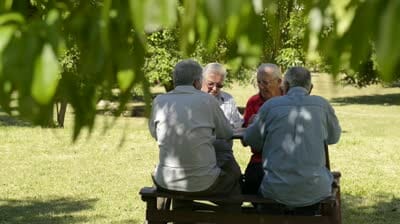
29 May 2015 | Senza categoria
 “When I can, I attend a group for retirees in my neighbourhood. I see that certain people are avoided by the ‘decent’ folks in the group, because of their scruffy appearance: alcoholics, homeless, who bide the time with a bottle as their only companion, and no one tries to involve them in the games, or the conversation. So I began learning how to play cards and bocce, in order to be able to spend time with them without any judging. At first I had to put up with their frequent reprimands. But I made an effort anyway to be friendly and disposed towards them; also to accept their language and their ramshackle way of playing. One day, Giulio, whom everyone considered the biggest vagrant, was admitted to hospital because of an alcoholic problem, but no one which hospital he was in. I did some searching and made several phone calls, but because of privacy I wasn’t given any news. In the end, I contacted the city police and they were able to track him down. I took care of him. His doctor explained his medical condition to me if I were a relative. Then I took him home, obtained his medicines and some packages of food. Silvio, another alcoholic whose driver’s license had been removed, was about to lose his job. I stepped in to help him get it back. Now he’s out of his addiction and has become the animator of a group of Alcoholics Anonymous. Ulysses was a competitive player, and he bragged about being a “priest-hater”. For two years I put up with his rather aggressive statements. Then, he developed a tumour but, proud as he was, he wouldn’t accept help from anyone. One day he asked me to take him home. This unexpected request was like an answer for me, that perhaps I had made a breakthrough and conveyed a bit of my faith to him. Gianni, the youngest one in the group, was 50 years old. He was tall as a giant and lived a very disordered life. Because of his lifestyle he was considered last in the ‘good conduct’ rankings. I stood by him until the last day of his life. His family members were surprised, and so was he. A few days before his death he squeezed my hand inside that giant fist of his, expressing his esteem and gratitude. Guido is a deaf mute; the most isolated one in the group because communicating with him is very demanding. We’ve become friends, and now he’s my partner when we play trump. One day, Giulio, the homeless man, removed a picture of Saint Padre Pio from his pocket and, in front of the whole group, said to me: “For me, you’re another Saint Padre Pio*.” From that day on everyone in the circle began calling me by that name and, despite the fact that I found it embarrassing, the name stuck. These friends now await my arrival with joy and I often find myself playing cards with my deaf mute friend against the two alcoholics. We’ve become the most famous team in the circle, and also the noisiest! Before going to the circle, I make a visit in a nearby church – something that has not escaped the attention of the group – to ask Him for the strength and guidance in loving these socially disadvantaged friends of mine.” * Padre Pio of Pietrelcina is an Italian saint renowned for his miracles.
“When I can, I attend a group for retirees in my neighbourhood. I see that certain people are avoided by the ‘decent’ folks in the group, because of their scruffy appearance: alcoholics, homeless, who bide the time with a bottle as their only companion, and no one tries to involve them in the games, or the conversation. So I began learning how to play cards and bocce, in order to be able to spend time with them without any judging. At first I had to put up with their frequent reprimands. But I made an effort anyway to be friendly and disposed towards them; also to accept their language and their ramshackle way of playing. One day, Giulio, whom everyone considered the biggest vagrant, was admitted to hospital because of an alcoholic problem, but no one which hospital he was in. I did some searching and made several phone calls, but because of privacy I wasn’t given any news. In the end, I contacted the city police and they were able to track him down. I took care of him. His doctor explained his medical condition to me if I were a relative. Then I took him home, obtained his medicines and some packages of food. Silvio, another alcoholic whose driver’s license had been removed, was about to lose his job. I stepped in to help him get it back. Now he’s out of his addiction and has become the animator of a group of Alcoholics Anonymous. Ulysses was a competitive player, and he bragged about being a “priest-hater”. For two years I put up with his rather aggressive statements. Then, he developed a tumour but, proud as he was, he wouldn’t accept help from anyone. One day he asked me to take him home. This unexpected request was like an answer for me, that perhaps I had made a breakthrough and conveyed a bit of my faith to him. Gianni, the youngest one in the group, was 50 years old. He was tall as a giant and lived a very disordered life. Because of his lifestyle he was considered last in the ‘good conduct’ rankings. I stood by him until the last day of his life. His family members were surprised, and so was he. A few days before his death he squeezed my hand inside that giant fist of his, expressing his esteem and gratitude. Guido is a deaf mute; the most isolated one in the group because communicating with him is very demanding. We’ve become friends, and now he’s my partner when we play trump. One day, Giulio, the homeless man, removed a picture of Saint Padre Pio from his pocket and, in front of the whole group, said to me: “For me, you’re another Saint Padre Pio*.” From that day on everyone in the circle began calling me by that name and, despite the fact that I found it embarrassing, the name stuck. These friends now await my arrival with joy and I often find myself playing cards with my deaf mute friend against the two alcoholics. We’ve become the most famous team in the circle, and also the noisiest! Before going to the circle, I make a visit in a nearby church – something that has not escaped the attention of the group – to ask Him for the strength and guidance in loving these socially disadvantaged friends of mine.” * Padre Pio of Pietrelcina is an Italian saint renowned for his miracles.
![Poland: Christian-Muslim Dialogue in Katowice]()
28 May 2015 | Non categorizzato, Word of
 Audio of the June Word of Life
Audio of the June Word of Life
We can become slaves to what we do, getting all ‘hot and bothered’. Jesus invites us to focus on the only thing that matters: living his word as we live for him. This makes our work a creative act of love. There is much affection in repeating this name: “Martha, Martha”! The house in Bethany, near Jerusalem, was a place Jesus would stop and rest with his disciples. In the city, he was drawn into debates; he found antagonism and rejection. In Bethany, instead, he felt welcome and found peace. Martha was enterprising and active. She showed it later when her brother died and she engaged Jesus in a lengthy conversation, questioning him energetically. She was a strong woman who showed great faith. When “Jesus said to her, ‘I am the resurrection and the life… Do you believe this?’ She said to him, ‘Yes, Lord, I believe’” (Jn 11:25–27). She answered without any hesitation. At this point she was extremely busy, organizing a special welcome for the master and his disciples. She was the mistress of the house (as her name suggests: Martha means “mistress”), and so she felt responsible. She was probably preparing the evening meal for her important guest. Her sister Mary had left her all alone to do the work. Contrary to the traditions of the East, Mary did not go to the kitchen but remained with the men to listen to Jesus, sitting at his feet, just like the perfect disciple. This gave rise to the rather resentful comment by Martha: “Lord, do you not care that my sister has left me to do all the work by myself? Tell her then to help me” (Lk 10:40). And Jesus’ affectionate, yet firm reply was:
“Martha, Martha, you are worried and distracted by many things; there is need of only one thing.”
Was Jesus not happy with the enterprising and generous service of Martha? Didn’t he appreciate her concrete and practical way of welcoming him, and wouldn’t he be happy to eat the food that was being prepared? Shortly after this episode, in his parables he will praise the administrators, businesspeople and employees who know how to use their talents creatively and do business with their goods (see Lk 12:42; 19:12–26). He even praises shrewdness (see Lk 16:1–8). He could not but rejoice at seeing a woman so full of initiative and capable of giving a warm and abundant welcome. What Jesus calls attention to is the state she was in, how bothered and worried she was about her work. Martha is agitated, “distracted by her many tasks” (Lk 10:40); she has lost her calm. It is no longer she who controls her work, but it is her work that has taken control and tyrannizes her. She is no longer free; she has become a slave to what she does. Doesn’t it happen also to us at times that we get lost in the thousands of things to do? We are drawn to and distracted by the internet, by messaging, by useless posts. Even when we have serious commitments to occupy us, they can make us forget to be attentive to others, to listen to people right next to us. Above all, the danger is that we lose sight of why and who we are working for. Our work and other concerns become ends in themselves. Or else we are overcome by anxiety and agitation when we face difficult situations and problems with our family, money matters, career, school and the future of our children —to such an extent that we forget the words of Jesus: “Therefore do not worry, saying, ‘What will we eat?’ or ‘What will we drink?’ or ‘What will we wear?’ For it is the Gentiles who strive for all these things; and indeed your heavenly Father knows that you need all these things” (Mt 6:31–32). We too deserve Jesus’ criticism:
“Martha, Martha, you are worried and distracted by many things; there is need of only one thing.”
What is the only thing needed? To hear and live the words of Jesus. Before these words and before he who speaks them, we cannot put anything at all. The true way of welcoming the Lord, of making him feel at home, is to welcome what he says. This is what Mary did: forgetting everything else, she put herself at his feet and did not miss a single word. If we do that we will be guided not by our desire to be noticed or to have the first place, but only by pleasing him, by being at the service of his kingdom. Like Martha, we too are called to do “many things” for the good of others. Jesus has taught us that the Father is happy when we bear “much fruit” (see John 15:8) and that we will even do greater things than he did (see Jn 14:12). He looks therefore at our dedication, our passion in doing the work he has given us to do, our imagination, courage and resourcefulness. He wants us to do many things without getting bothered and agitated, but keeping the peace that comes from knowing we are doing God’s will. The only thing that matters therefore is to become Jesus’ disciples, letting him live in us, being attentive to what he suggests with his gentle voice that prompts us moment by moment. In this way he will be the one who guides us in every act. In doing “many things” we will not be distracted and side-tracked, because by following Jesus’ words we will be moved by love alone. In all we do, we will always do only one thing: love.
Fabio Ciardi *
*Fr Fabio Ciardi, OMI is a theologian and close collaborator of Chiara Lubich Read more on this topic: Lubich, Chiara. Here and Now: Reflections on Living the Present Moment. New City Press, Hyde Park, New York, 2005. Lubich, Chiara. “A divine balance,” Essential Writings. New City Press, Hyde Park, New York, 2007. Pg. 123. Next month: Word of Life for July 2015 “Take courage; I have conquered the world!” (Jn 16:33).
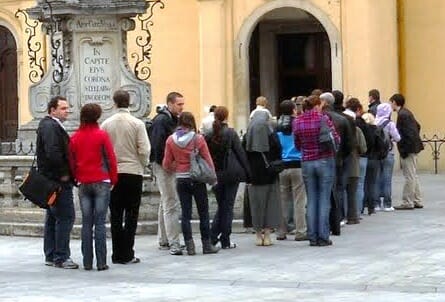
28 May 2015 | Focolare Worldwide
 “My current parish is found in one of the neighbourhoods of Bratislava, the capital of Slovakia,” says Fr Ludovit. “The city has about 4,300 inhabitants, of which 3,500 are Christians, and the numbers continue to grow. When I arrived here in July 2009, I knew my first task was to love people with the love of Jesus. Now I can say that I’m happy because a beautiful community has sprung up between people of different ages and social status, from different Slovakian cities, who have discovered a new relationship with God, not just through the Bible and prayer, but also through the community and various parish activities. They have found here the joy in the faith which is worth living for. When I first arrived, there were no young people: the government had banned the construction of new buildings, so many young couples had moved elsewhere. Furthermore, there was no program of formation in the faith for the few teens there were. I met three young people who had the desire to help me, but they were immersed in their own work and studies. At that time I invited the teens and the young people who had recently been confirmed to a barbecue. They came as a sign of respect, but they never returned. “We’ve already received Confirmation, so there’s no need to go to Mass anymore,” they told me. In this situation, I entrusted everything to Jesus. Since September 2009, I have been teaching Catechism in all of the elementary and middle school classes (about 150 children and teens). At the same time, I started a Sunday Mass for families. I tried to take advantage of every occasion to build relationships: greeting people on the street, visiting others in their home, exchanging a few words at the shops, in the office, or at school. And again: invitations to a barbecue and to play sports on the parish grounds. Little by little people began to participate. Gradually a community was forming; there were children who didn’t want to miss out, young mothers who discovered a common bond because their children were the same age, dads who invited one another to help with various odd jobs in the church or in the parish house, but also to play tennis or have a beer together. Even the mayor and some members of parliament began to participate. One day, Jesus also sent me Blanka, who is now the choir director and the leader of many events.” “Many say that ours is ‘a live parish’,” affirms Blanka. “In spite of our individual differences, we constantly search for what unites us, and we always return to the fount of unity, of love, and of forgiveness, which is Jesus. We parents try to create the practical conditions so that many activities can be carried out. Often they are to the detriment of our time, our rest or housework, but it is truly wonderful to see that everyone supports not only their own children, but all of “our” children. This is the case with Michael, an autistic boy who is now adolescent. I am very glad to see that the other teens are open towards him inviting him to join them and considering him their equal. And Michael loves them a lot and feels that they all are part of his big family.” “I am an allergist/immunologist and I work in a non-government capacity at the Pediatric University Hospital of Bratislava,” continues Dagmar. “The Pastoral Center and the parish Nursery School which were constructed have become ‘poles’ of different activities for our children, teens, and young people, of which the number is constantly growing. One day, in May 2012, Fr Ludo asked me if I were available to participate as a medical doctor at a summer camp for teens in our parish. I immediately said no. But then, I remembered the faces of the teens that I knew. In the end I said yes, and now it is already my 4th year! I have become more sensitive to the suffering of the children and to their fears for their health when they find themselves without their parents. This experience has helped me to understand the deeper significance of service to others.” “A very important meeting occurred last year in Benevento (Italy), organized by the Parish Movement,” concludes Fr Ludovit. “Our young people came away with ‘an encouragement, a spiritual strength, a closer relationship with God,’ they said, ‘and above all, the desire to live “committed to love,” because whatever we do, if it does not have love, loses its value and significance.’ For me it was a confirmation that the community had not only been born and consolidated, but that it rests on the faith of the young people. The future, therefore, is secured.”
“My current parish is found in one of the neighbourhoods of Bratislava, the capital of Slovakia,” says Fr Ludovit. “The city has about 4,300 inhabitants, of which 3,500 are Christians, and the numbers continue to grow. When I arrived here in July 2009, I knew my first task was to love people with the love of Jesus. Now I can say that I’m happy because a beautiful community has sprung up between people of different ages and social status, from different Slovakian cities, who have discovered a new relationship with God, not just through the Bible and prayer, but also through the community and various parish activities. They have found here the joy in the faith which is worth living for. When I first arrived, there were no young people: the government had banned the construction of new buildings, so many young couples had moved elsewhere. Furthermore, there was no program of formation in the faith for the few teens there were. I met three young people who had the desire to help me, but they were immersed in their own work and studies. At that time I invited the teens and the young people who had recently been confirmed to a barbecue. They came as a sign of respect, but they never returned. “We’ve already received Confirmation, so there’s no need to go to Mass anymore,” they told me. In this situation, I entrusted everything to Jesus. Since September 2009, I have been teaching Catechism in all of the elementary and middle school classes (about 150 children and teens). At the same time, I started a Sunday Mass for families. I tried to take advantage of every occasion to build relationships: greeting people on the street, visiting others in their home, exchanging a few words at the shops, in the office, or at school. And again: invitations to a barbecue and to play sports on the parish grounds. Little by little people began to participate. Gradually a community was forming; there were children who didn’t want to miss out, young mothers who discovered a common bond because their children were the same age, dads who invited one another to help with various odd jobs in the church or in the parish house, but also to play tennis or have a beer together. Even the mayor and some members of parliament began to participate. One day, Jesus also sent me Blanka, who is now the choir director and the leader of many events.” “Many say that ours is ‘a live parish’,” affirms Blanka. “In spite of our individual differences, we constantly search for what unites us, and we always return to the fount of unity, of love, and of forgiveness, which is Jesus. We parents try to create the practical conditions so that many activities can be carried out. Often they are to the detriment of our time, our rest or housework, but it is truly wonderful to see that everyone supports not only their own children, but all of “our” children. This is the case with Michael, an autistic boy who is now adolescent. I am very glad to see that the other teens are open towards him inviting him to join them and considering him their equal. And Michael loves them a lot and feels that they all are part of his big family.” “I am an allergist/immunologist and I work in a non-government capacity at the Pediatric University Hospital of Bratislava,” continues Dagmar. “The Pastoral Center and the parish Nursery School which were constructed have become ‘poles’ of different activities for our children, teens, and young people, of which the number is constantly growing. One day, in May 2012, Fr Ludo asked me if I were available to participate as a medical doctor at a summer camp for teens in our parish. I immediately said no. But then, I remembered the faces of the teens that I knew. In the end I said yes, and now it is already my 4th year! I have become more sensitive to the suffering of the children and to their fears for their health when they find themselves without their parents. This experience has helped me to understand the deeper significance of service to others.” “A very important meeting occurred last year in Benevento (Italy), organized by the Parish Movement,” concludes Fr Ludovit. “Our young people came away with ‘an encouragement, a spiritual strength, a closer relationship with God,’ they said, ‘and above all, the desire to live “committed to love,” because whatever we do, if it does not have love, loses its value and significance.’ For me it was a confirmation that the community had not only been born and consolidated, but that it rests on the faith of the young people. The future, therefore, is secured.”
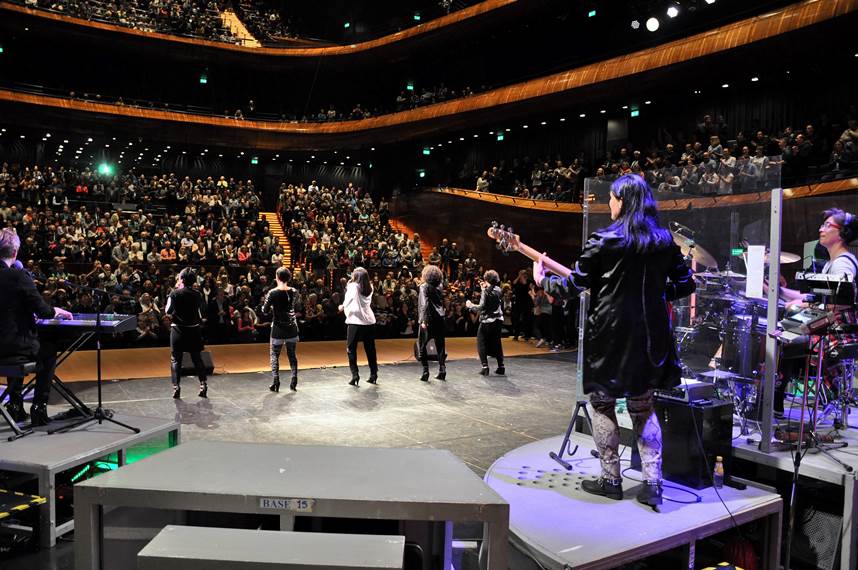
27 May 2015 | Focolare Worldwide
 Also called the City of Dialogue, Katowice – in the south of Poland, is a mining city par excellence – because it is one of the Polish municipalities that has the most numerous interreligious representatives. It boasts a Centre for Islamic Culture dedicated to prayer and education, and the Doha Centre for Dialogue and Culture dedicated primarily to dialogue, which will celebrate on 29 May, the «3rd Day of Christianity among Muslims» focused on the theme “Jesus – brother of each one of us,” as seen from the Christian and Muslim perspective. Also Maria Voce and Jesús Morán, President and Co-President of the Focolare, respectively, will participate, and who also will be travelling to Belarus and Poland to visit the communities of the Movement. In retrospect, there has been for some time now in Katowice, a network of fraternal relationships and cooperation among Christians of various Churches, Jews, Muslims, the academic world and civil institutions. On the occasion of the 150th anniversary of the city’s founding, the international Gen Verde band was invited to bring a message of fraternity with its music. The band has for some years now, brought to the public an educational artistic project implemented through workshops that feature onstage the youth who have attended their workshops of various disciplines: dance, singing, theatre, percussions on various instruments and even “body percussion.” About 140 boys and girls attended the workshop in Poland and contributed with their talents to the show staged with the band. But what really stirred up interest is the fact that the project also saw the participation of young Muslims, Jews and Christians of various denominations. The posters announcing the event drew the attention of so many that only six hours after the opening of the box office, the 1,450 tickets were already sold out. A Muslim girl who participated in the workshop and the show, thanked the group since she had never “felt so warmly welcomed.” This fact impressed all especially against a background of the recent terrorist acts. Upon returning from Poland, Gen Verde wrote: «We worked with 140 marvelous young people, who were the expression of an open, profound and sensitive people, forged by a faith that has been harshly tested by great suffering. They said that they experienced unity and trust that transformed them and made them fly.»
Also called the City of Dialogue, Katowice – in the south of Poland, is a mining city par excellence – because it is one of the Polish municipalities that has the most numerous interreligious representatives. It boasts a Centre for Islamic Culture dedicated to prayer and education, and the Doha Centre for Dialogue and Culture dedicated primarily to dialogue, which will celebrate on 29 May, the «3rd Day of Christianity among Muslims» focused on the theme “Jesus – brother of each one of us,” as seen from the Christian and Muslim perspective. Also Maria Voce and Jesús Morán, President and Co-President of the Focolare, respectively, will participate, and who also will be travelling to Belarus and Poland to visit the communities of the Movement. In retrospect, there has been for some time now in Katowice, a network of fraternal relationships and cooperation among Christians of various Churches, Jews, Muslims, the academic world and civil institutions. On the occasion of the 150th anniversary of the city’s founding, the international Gen Verde band was invited to bring a message of fraternity with its music. The band has for some years now, brought to the public an educational artistic project implemented through workshops that feature onstage the youth who have attended their workshops of various disciplines: dance, singing, theatre, percussions on various instruments and even “body percussion.” About 140 boys and girls attended the workshop in Poland and contributed with their talents to the show staged with the band. But what really stirred up interest is the fact that the project also saw the participation of young Muslims, Jews and Christians of various denominations. The posters announcing the event drew the attention of so many that only six hours after the opening of the box office, the 1,450 tickets were already sold out. A Muslim girl who participated in the workshop and the show, thanked the group since she had never “felt so warmly welcomed.” This fact impressed all especially against a background of the recent terrorist acts. Upon returning from Poland, Gen Verde wrote: «We worked with 140 marvelous young people, who were the expression of an open, profound and sensitive people, forged by a faith that has been harshly tested by great suffering. They said that they experienced unity and trust that transformed them and made them fly.»  «The show was held in the NOSPR, the new auditorium built over the old mines and for the first time in history, this temple of symphonic music, opened out to our rock music. Every corner of the auditorium was filled to the brim with the public that vibrated with us right from the start, in a crescendo. On hearing the first Polish words we sang (the refrain of two songs) they burst into a moving applause, and at the end of the concert, immense joy pervaded.» A little show within the show unfolded when the mayor, a representative of the Catholic community, a representative of the Jewish community and an Imam, appeared on stage in a spiritual and ideal embrace to testify to a true fraternity that was nurtured through the years. A priest remarked: “We are testimonials to something short of a miracle. If we have these young people among us as we saw today, the world will not die. With this method of dialogue you can save the world. ” The Rabbi then added; “We do not fear the future because… we are together.”
«The show was held in the NOSPR, the new auditorium built over the old mines and for the first time in history, this temple of symphonic music, opened out to our rock music. Every corner of the auditorium was filled to the brim with the public that vibrated with us right from the start, in a crescendo. On hearing the first Polish words we sang (the refrain of two songs) they burst into a moving applause, and at the end of the concert, immense joy pervaded.» A little show within the show unfolded when the mayor, a representative of the Catholic community, a representative of the Jewish community and an Imam, appeared on stage in a spiritual and ideal embrace to testify to a true fraternity that was nurtured through the years. A priest remarked: “We are testimonials to something short of a miracle. If we have these young people among us as we saw today, the world will not die. With this method of dialogue you can save the world. ” The Rabbi then added; “We do not fear the future because… we are together.”
![Poland: Christian-Muslim Dialogue in Katowice]()
26 May 2015 | Focolare Worldwide
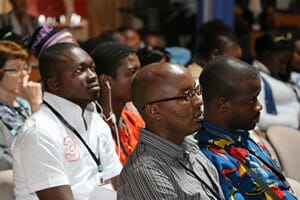 «We are a new generation that wants to take the helm of the Economy of Communion. We are well aware of our inexperience and immaturity but we are also glad to feel that this is precisely our strong point, and we do not want to stop dreaming.» Liliane Mugombozi, a journalist in Kenya, picked up the voice of a young Cameroonese among the participants of the international Economy of Communion (EoC) school, underway from 22 to 26 May at Mariapolis Piero, the Focolare town close to Nairobi, Kenya. «Upon entering that conference hall – she wrote – you could feel the energy of such a young population: vigorous, and full of expectations, hopes, aspirations and dreams that seem almost unthinkable amid all the challenges their continent is faced with.» They were students in economics, development, social sciences, entrepreneurs and followers, coming from all the Sub-Saharian regions, Lebanon, Egypt, Italy, Hungary, Argentina, Brazil, Chile, Mexico and Australia. Amidst all the greetings from various parts of the world, applause broke out when they heard the message of the Dean of Cagliari University, and when Prof. Maria Del Zompo recalled the painful event of the massacre of the young students of Garissa, to remind the youth present of the importance of educational structures, and encourage them in their desire to live and diffuse the ideals of the EoC. Vittorio Pelligra, one of the teachers, presented the method, the roadmap set for these days: applied reciprocity. «It is a special school of dialogue and communication, where we can share our intuitions, doubts, projects and dreams. We are all protagonists, and are ready to give all and receive all from everyone!»
«We are a new generation that wants to take the helm of the Economy of Communion. We are well aware of our inexperience and immaturity but we are also glad to feel that this is precisely our strong point, and we do not want to stop dreaming.» Liliane Mugombozi, a journalist in Kenya, picked up the voice of a young Cameroonese among the participants of the international Economy of Communion (EoC) school, underway from 22 to 26 May at Mariapolis Piero, the Focolare town close to Nairobi, Kenya. «Upon entering that conference hall – she wrote – you could feel the energy of such a young population: vigorous, and full of expectations, hopes, aspirations and dreams that seem almost unthinkable amid all the challenges their continent is faced with.» They were students in economics, development, social sciences, entrepreneurs and followers, coming from all the Sub-Saharian regions, Lebanon, Egypt, Italy, Hungary, Argentina, Brazil, Chile, Mexico and Australia. Amidst all the greetings from various parts of the world, applause broke out when they heard the message of the Dean of Cagliari University, and when Prof. Maria Del Zompo recalled the painful event of the massacre of the young students of Garissa, to remind the youth present of the importance of educational structures, and encourage them in their desire to live and diffuse the ideals of the EoC. Vittorio Pelligra, one of the teachers, presented the method, the roadmap set for these days: applied reciprocity. «It is a special school of dialogue and communication, where we can share our intuitions, doubts, projects and dreams. We are all protagonists, and are ready to give all and receive all from everyone!»  After tracing a brief history of the EoC, its birth and growth from 1991 up to today, a question arose: Is the EoC a path for Africa? The dialogue between teachers and participants transformed the auditorium into contagious enthusiasm. «How can we influence our youth?» each one asked. «We, as the youth, are tired of being exploited by politicians as the target in their manifestos. Not only we expect new methods of relating with one another, so does the world… the EoC is one of the solutions, and we feel it.» The aspect of the challenges and resources of the continent’s youth obviously could not be overlooked: the identity crisis in globalised society, poverty, conflicts, enlarged families, the brain drain of the continent, unemployment, and education which is increasingly internationalised without considering the actual educational needs of society around us. These are just the first steps of the school, Liliane Mugomobozi remarked, «but the youth present, upon discovering the new economic categories, already foresee a better future and cannot wait to return to their countries to spread it to as many people possible.» The teachers also recounted their own life stories that had led them to make daring choices in life. A deep dialogue ensued: teachers and students sharing their dreams, frustrations, discouragement, but also small and big success stories. Topics ranged from the great themes like “climate change” to international relations. The youth coming from the mining region of Katanga (DRC), proved to be well aware of the drama that had struck them.
After tracing a brief history of the EoC, its birth and growth from 1991 up to today, a question arose: Is the EoC a path for Africa? The dialogue between teachers and participants transformed the auditorium into contagious enthusiasm. «How can we influence our youth?» each one asked. «We, as the youth, are tired of being exploited by politicians as the target in their manifestos. Not only we expect new methods of relating with one another, so does the world… the EoC is one of the solutions, and we feel it.» The aspect of the challenges and resources of the continent’s youth obviously could not be overlooked: the identity crisis in globalised society, poverty, conflicts, enlarged families, the brain drain of the continent, unemployment, and education which is increasingly internationalised without considering the actual educational needs of society around us. These are just the first steps of the school, Liliane Mugomobozi remarked, «but the youth present, upon discovering the new economic categories, already foresee a better future and cannot wait to return to their countries to spread it to as many people possible.» The teachers also recounted their own life stories that had led them to make daring choices in life. A deep dialogue ensued: teachers and students sharing their dreams, frustrations, discouragement, but also small and big success stories. Topics ranged from the great themes like “climate change” to international relations. The youth coming from the mining region of Katanga (DRC), proved to be well aware of the drama that had struck them.  And a big dream is taking shape: the young and very young people, enthusiasts of life, strongly believe in the ideal of a United World shared with many other youths from the whole world. It is nothing less than “the dream of God,” as Chiara Lubich once said precisely to the youth. It is a dream that they will not give up even when confronted by important choices in life, as has been such with the university faculty, in order to have an impact on society and to actualize in practice, and not in words, a just and dignified society for every human being. The school, to end on 26 May, will be followed by the EoC international Congress: businesses, entrepreneurs and workers will come face to face, and the ideal will turn into business practices, challenges going on in the employment world, and creative choices. Among the themes to be discussed are: creativity and communion, the culture of communion, business and employment, poverty and wealth and saying yes to an Economy of Communion. These themes will turn into workshops in politics, microfinance and poverty, and startups, involving young scholars and researchers, management, networks of entrepreneurs and the EoC in dialogue with the African cultures. Facebook Pages on the event Live streaming event: http://live.focolare.org/eoc/ on 27 May, 3.00 – 6.30 pm (Kenyan time, 2.00 – 5.30pm CET), and then morning sessions of the scheduled program 9.00am -12.30pm Kenyan time. Programma eventi
And a big dream is taking shape: the young and very young people, enthusiasts of life, strongly believe in the ideal of a United World shared with many other youths from the whole world. It is nothing less than “the dream of God,” as Chiara Lubich once said precisely to the youth. It is a dream that they will not give up even when confronted by important choices in life, as has been such with the university faculty, in order to have an impact on society and to actualize in practice, and not in words, a just and dignified society for every human being. The school, to end on 26 May, will be followed by the EoC international Congress: businesses, entrepreneurs and workers will come face to face, and the ideal will turn into business practices, challenges going on in the employment world, and creative choices. Among the themes to be discussed are: creativity and communion, the culture of communion, business and employment, poverty and wealth and saying yes to an Economy of Communion. These themes will turn into workshops in politics, microfinance and poverty, and startups, involving young scholars and researchers, management, networks of entrepreneurs and the EoC in dialogue with the African cultures. Facebook Pages on the event Live streaming event: http://live.focolare.org/eoc/ on 27 May, 3.00 – 6.30 pm (Kenyan time, 2.00 – 5.30pm CET), and then morning sessions of the scheduled program 9.00am -12.30pm Kenyan time. Programma eventi
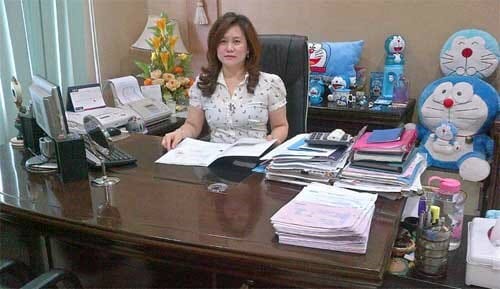
25 May 2015 | Focolare Worldwide
 Her name is Mardiana. Though short and simple, it is a name which could also pass as a surname also in documents, as often occurs in Indonesia. She is currently national Vice-President of an important multinational assurance company. The Indopost journalist, Heryanto, singled her out recently as one of the most successful women of Jakarta, in one of his interview columns. Her most interesting story centres around a key strength which is a deep spirituality, lived with simplicity and conviction ever since she encountered the Focolare Moviment as a young girl. She achieved her Degree in Economics in 1997 at Medan University (isle of Sumatra), and the following year married Mulianta, also a follower of the spirituality of unity. They wanted to form a family with deep Christian roots, and later had two wonderful children. At a certain point the assurance company Mardiana was working for closed down, but then a new opportunity came up to join Reliance Insurance, another assurance company with branches throughout the world. Often Mardiana had to go to the capital, Jakarta (isle of Java), to attend business meetings. It was a great sacrifice for her, since she wanted so much to stay with her kids. But Mulianta gave her encouragement and support, and helped in taking care of them. Following a promotion, Mulianta was offered a key position in Jakarta, which he refused to be able to remain with his wife and children, and with his outstanding entrepreneurial spirit opened his own business in Medan. Six years passed during which Mardiana’s agency reaped a good turnover resulting also in the well-being of its employees. This was when Mardiana was asked to relocate to Jakarta to assume the position of Vice-President of Reliance Insurance Indonesia. Mulianta and Mardiana reflected on the option to refuse the offer. After all, things were also going ahead in Medan. “But – they said – we must not only think of ourselves. We have to ask ourselves what mission God wants to entrust us with.” And it was precisely Mulianta who pushed Mardiana to accept, despite the fact that he had to leave his business in Medan and find a new job in Jakarta. In the first six months Mardiana continued to go on business trips in order to turn over the work to the new manager and ensure that the Medan market would not suffer any drawbacks due to the change in management. “I am really grateful to God for giving me such an incredible husband!,” Mardiana confided to the Indopost journalist – If he hadn’t encouraged me, I wouldn’t have made it,” and continued, “We have faced everything together– above all the commitment to put evangelical love into practice, which leads us to see each person as a brother to be loved. And so, we do not discriminate anyone, whatever religion they belong to, or position they cover; we are all equal. Whatever is the colour of their skin, ethnic group or religion, they are all brothers for us.” She then recounted a personal experience to the journalist. “Our domestic helper who has been with us for some time now, is Muslim. Besides being honest and hardworking, she is intelligent. So I made a proposal – which she gladly accepted – to send her to university. Many around us said: when she reaches a good position, she will leave and forget you. But love, to our mind, means giving others opportunities and thinking of their future. She will always be part of our family, and we must not think that a household helper has to remain forever as such. The same goes for our driver who has to have a better future.” The journalist, a Muslim, made a very meaningful remark in one of the two articles published on the Indopost: “For Mardiana, being branch manager of Reliance was part of God’s design, even though it is a stressful role with problems of all sorts. But she manages to handle them serenely because her life is founded on love that she learned from the spirituality of the Focolare Movement and of which she and her husband are part. Of course, though she places all her trust in God, it does not mean that she just looks on, but rather, carries out her job with great commitment, as she has always done since she was a working college student.”
Her name is Mardiana. Though short and simple, it is a name which could also pass as a surname also in documents, as often occurs in Indonesia. She is currently national Vice-President of an important multinational assurance company. The Indopost journalist, Heryanto, singled her out recently as one of the most successful women of Jakarta, in one of his interview columns. Her most interesting story centres around a key strength which is a deep spirituality, lived with simplicity and conviction ever since she encountered the Focolare Moviment as a young girl. She achieved her Degree in Economics in 1997 at Medan University (isle of Sumatra), and the following year married Mulianta, also a follower of the spirituality of unity. They wanted to form a family with deep Christian roots, and later had two wonderful children. At a certain point the assurance company Mardiana was working for closed down, but then a new opportunity came up to join Reliance Insurance, another assurance company with branches throughout the world. Often Mardiana had to go to the capital, Jakarta (isle of Java), to attend business meetings. It was a great sacrifice for her, since she wanted so much to stay with her kids. But Mulianta gave her encouragement and support, and helped in taking care of them. Following a promotion, Mulianta was offered a key position in Jakarta, which he refused to be able to remain with his wife and children, and with his outstanding entrepreneurial spirit opened his own business in Medan. Six years passed during which Mardiana’s agency reaped a good turnover resulting also in the well-being of its employees. This was when Mardiana was asked to relocate to Jakarta to assume the position of Vice-President of Reliance Insurance Indonesia. Mulianta and Mardiana reflected on the option to refuse the offer. After all, things were also going ahead in Medan. “But – they said – we must not only think of ourselves. We have to ask ourselves what mission God wants to entrust us with.” And it was precisely Mulianta who pushed Mardiana to accept, despite the fact that he had to leave his business in Medan and find a new job in Jakarta. In the first six months Mardiana continued to go on business trips in order to turn over the work to the new manager and ensure that the Medan market would not suffer any drawbacks due to the change in management. “I am really grateful to God for giving me such an incredible husband!,” Mardiana confided to the Indopost journalist – If he hadn’t encouraged me, I wouldn’t have made it,” and continued, “We have faced everything together– above all the commitment to put evangelical love into practice, which leads us to see each person as a brother to be loved. And so, we do not discriminate anyone, whatever religion they belong to, or position they cover; we are all equal. Whatever is the colour of their skin, ethnic group or religion, they are all brothers for us.” She then recounted a personal experience to the journalist. “Our domestic helper who has been with us for some time now, is Muslim. Besides being honest and hardworking, she is intelligent. So I made a proposal – which she gladly accepted – to send her to university. Many around us said: when she reaches a good position, she will leave and forget you. But love, to our mind, means giving others opportunities and thinking of their future. She will always be part of our family, and we must not think that a household helper has to remain forever as such. The same goes for our driver who has to have a better future.” The journalist, a Muslim, made a very meaningful remark in one of the two articles published on the Indopost: “For Mardiana, being branch manager of Reliance was part of God’s design, even though it is a stressful role with problems of all sorts. But she manages to handle them serenely because her life is founded on love that she learned from the spirituality of the Focolare Movement and of which she and her husband are part. Of course, though she places all her trust in God, it does not mean that she just looks on, but rather, carries out her job with great commitment, as she has always done since she was a working college student.”
24 May 2015 | Focolare Worldwide
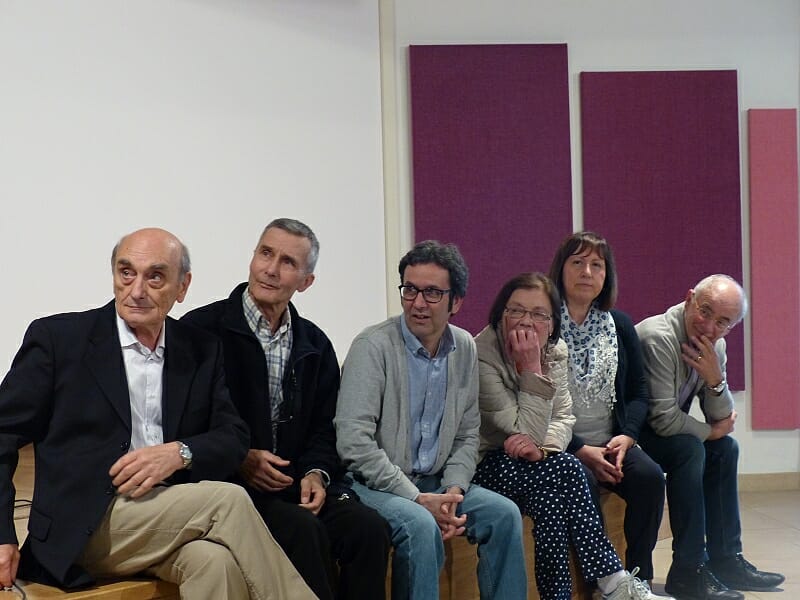
23 May 2015 | Non categorizzato
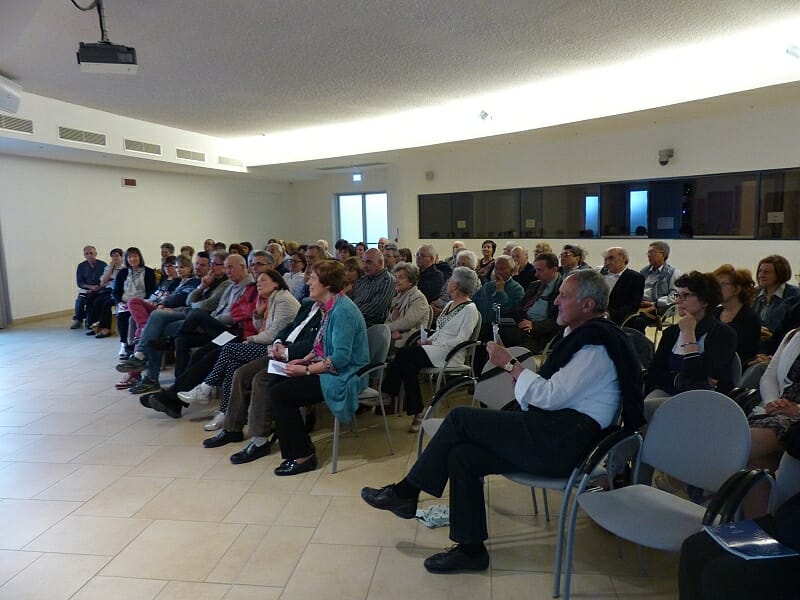 It was the evening of 7 May 1995 at the international Centre in Loppiano (Italy). A group of people of various beliefs and cultural backgrounds were having a lively discussion at dinner. They had spent the entire day together to see whether they, as Catholics and agnostics, could overcome ideological limits, dislikes and century-old prejudices and get to understand, accept and appreciate one another. These gatherings of people who spoke different languages and professed various beliefs had started already in 1978 when Chiara Lubich, founder of the Focolare Movement, set up the “Centre for Dialogue with People who hold No Religious Affiliations” within the scope of a more extensive experience initiated by the Focolare. The 7 May 2015 meeting in Loppiano was taken as an opportunity to take stock of this reality and a challenge to certify, face to face, if mutual esteem is really possible. Over the years, in fact, all have even become “friends,” and getting together and discussing with one another was considered not only stimulating but also very pleasant. At that dinner, however, someone was missing, one who perhaps was the most active in the group: Ugo Radica. This really special focolarino had decided to pursue an idea without notifying anybody and had gone to station himself close to the house of Chiara Lubich, founder of the Movement, who was supposed to arrive in Loppiano that evening. His patience was rewarded in the end when Chiara’s car finally came into view. Ugo approached the car, and Chiara, quite surprised, lowered the window to ask: «What are you doing here, Ugo? He firmly said: “I’m here with a group of friends of different beliefs. Why don’t you come to see us tomorrow? I think it would be very important for them to have an exchange of ideas with you personally.” Chiara accepted though unsure and a bit doubtful. She requested that the group prepare some questions for her to answer. Ugo thus returned to the group full of enthusiasm.
It was the evening of 7 May 1995 at the international Centre in Loppiano (Italy). A group of people of various beliefs and cultural backgrounds were having a lively discussion at dinner. They had spent the entire day together to see whether they, as Catholics and agnostics, could overcome ideological limits, dislikes and century-old prejudices and get to understand, accept and appreciate one another. These gatherings of people who spoke different languages and professed various beliefs had started already in 1978 when Chiara Lubich, founder of the Focolare Movement, set up the “Centre for Dialogue with People who hold No Religious Affiliations” within the scope of a more extensive experience initiated by the Focolare. The 7 May 2015 meeting in Loppiano was taken as an opportunity to take stock of this reality and a challenge to certify, face to face, if mutual esteem is really possible. Over the years, in fact, all have even become “friends,” and getting together and discussing with one another was considered not only stimulating but also very pleasant. At that dinner, however, someone was missing, one who perhaps was the most active in the group: Ugo Radica. This really special focolarino had decided to pursue an idea without notifying anybody and had gone to station himself close to the house of Chiara Lubich, founder of the Movement, who was supposed to arrive in Loppiano that evening. His patience was rewarded in the end when Chiara’s car finally came into view. Ugo approached the car, and Chiara, quite surprised, lowered the window to ask: «What are you doing here, Ugo? He firmly said: “I’m here with a group of friends of different beliefs. Why don’t you come to see us tomorrow? I think it would be very important for them to have an exchange of ideas with you personally.” Chiara accepted though unsure and a bit doubtful. She requested that the group prepare some questions for her to answer. Ugo thus returned to the group full of enthusiasm.
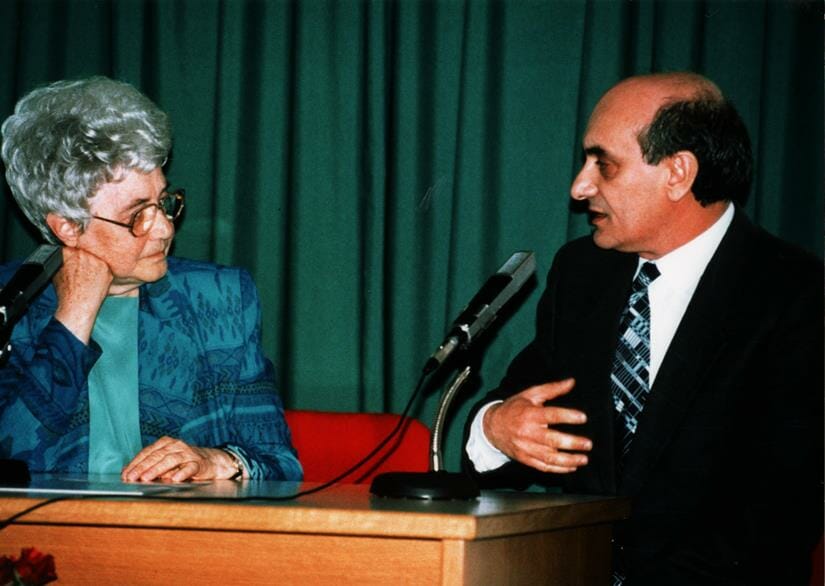
Chiara Lubich meets with the group in Loppiano, 7 May 1995
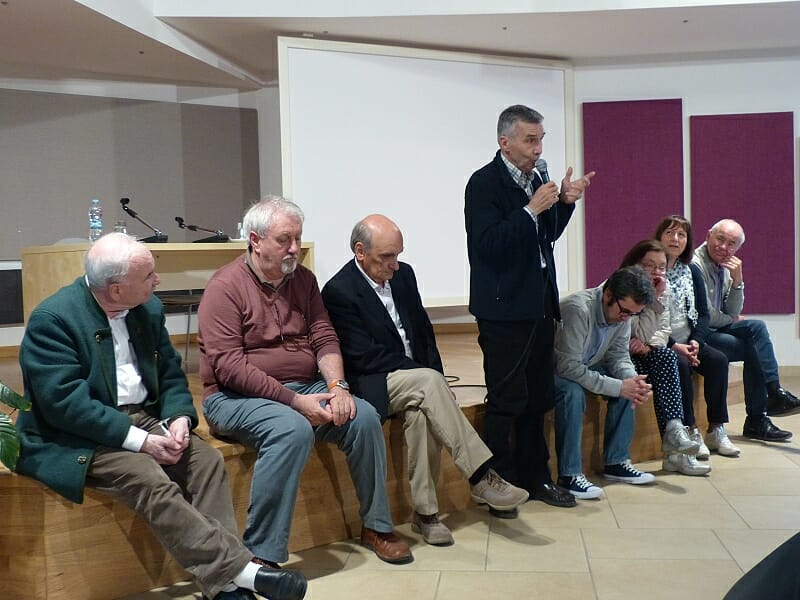 That evening, Tito, one of the friends who had turned up by chance at the last minute, phoned his wife, a genuine Catholic, and a long-time member of the Movement, to proudly announce to her that he had spoken to Chiara personally, while she in all those years still had not seen or had a glimpse of her even from afar.
That evening, Tito, one of the friends who had turned up by chance at the last minute, phoned his wife, a genuine Catholic, and a long-time member of the Movement, to proudly announce to her that he had spoken to Chiara personally, while she in all those years still had not seen or had a glimpse of her even from afar.  Twenty years later, on 7 May 2015 there was again a celebration in Loppiano. A nostalgic commemoration? Absolutely not. Armando, Morena, Tito, Dolores, Piero, Luciana, Roberto, Silvano and many more followed one another onstage to recall those moments, not only to assess the 20 years that have passed, but to also organize the next events. They are convinced, more than ever, of the importance of this type of dialogue. And unlike the moments of encounters between believers, one never knows how these “fourth dialogue” meetings can turn out. But precisely this fact is a warranty of authenticity, since each inevitably has to be fully and personally involved, ready to offer one’s ideas but also accept those of others through an intricate but fruitful exchange. This dialogue which has continued through the years, not without difficulties, has become international, and has reached many countries. Its diffusion and urgency was strongly felt as a pressing responsibility by those who attended the 2015 gathering. This lifestyle has to be actualised firstly among the members of the Movement, to be offered in turn, to all of humanity.
Twenty years later, on 7 May 2015 there was again a celebration in Loppiano. A nostalgic commemoration? Absolutely not. Armando, Morena, Tito, Dolores, Piero, Luciana, Roberto, Silvano and many more followed one another onstage to recall those moments, not only to assess the 20 years that have passed, but to also organize the next events. They are convinced, more than ever, of the importance of this type of dialogue. And unlike the moments of encounters between believers, one never knows how these “fourth dialogue” meetings can turn out. But precisely this fact is a warranty of authenticity, since each inevitably has to be fully and personally involved, ready to offer one’s ideas but also accept those of others through an intricate but fruitful exchange. This dialogue which has continued through the years, not without difficulties, has become international, and has reached many countries. Its diffusion and urgency was strongly felt as a pressing responsibility by those who attended the 2015 gathering. This lifestyle has to be actualised firstly among the members of the Movement, to be offered in turn, to all of humanity.
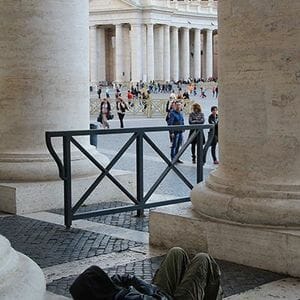
22 May 2015 | Non categorizzato
 “Our community house is very near St Peter’s Square, in Rome. It was almost nine o’clock in the evening. Our mother superior had just stepped out for a look at the colonnade of Bernini by night with a few compatriots. My cell phone rang, and it was she. “There’s a man here, about 35 years old, who says he was robbed on the metro and lost his ID, money, and cell phone.” I went downstairs to see what could be done. Luciano, as the man called himself, told me he had arrived in Rome that same afternoon, after a twenty-seven hour bus ride. He had managed to scrape together 1,300 euros, thinking it would be enough until he could find work in Italy. I asked him if he wanted to call someone, and he gave me the phone number of his mother in his country of origin. I dialed the number and passed him the cell phone. It was getting late. I called a sister who works at the Charity organization at Termini Train Station to find out if she knew of a place where the man could spend the night, but she told me without ID it wasn’t possible. He decided to sleep outside and to go the next day to the embassy in order to return as soon as possible to his homeland. I asked him if he wanted something to eat or drink, but he was too stressed to eat. He said he still had the sandwiches he had brought for the trip. I offered to accompany him to Pius XIII Square, where many homeless people gather, to entrust him to them (there were others from his country there). Before we reached them, we met B., a homeless woman who sleeps in corners of the apartment buildings. Sometimes we bring her something to eat. I told her about Luciano, without saying, however, that times being as they were, I wasn’t sure if I should believe him. And if it were a scam? But the conviction that he was a neighbour to be loved concretely was stronger. The woman told him, “Go to the dumpster and gather a lot of cardboard, because it’s very cold at night. You can sleep here nearby; no one will harm you.” We left his luggage and went to search for cardboard, which was certainly not easy to find: in that area there are many who sleep on the pavement beneath the walls. In the meantime my superior came to meet us. With the cardboard we returned to B. and left Luciano in her care. Above all, we entrusted him to the Blessed Mother Mary and the Guardian Angels. That night I couldn’t sleep. It was very cold and humid outside. In the morning, I took him at least some warm milk and coffee. He said that because of the cold and discomfort, and the noise of traffic, he hadn’t slept at all. I went back home for Mass. The readings spoke about fasting, which means not only to abstain from food but to “share your food with the hungry and to provide the poor wanderer with shelter, and when you see the naked, to clothe them…” (Is 58: 1-9). I couldn’t go on reading it; I couldn’t answer the priest; I had a lump in my throat and tears running down my cheeks. I, who find it difficult to cry, had understood what the “gift of tears”, which Pope Francis recently spoke of, truly meant. At the end of Mass, I told my superior, “We have to see this through to the end.” Fearing a scam, she was hesitant at first, but then she agreed. Luciano was still there. He had remembered that in the inside pocket of his backpack he had his identity card. We loaded one of his bags in our shopping cart, and the other we helped him to carry. At the bus terminus we discovered that there was a bus leaving for his country that same day. We bought him the ticket. The clerk advised us to wait for the bus to depart because, he pointed out, this type of person often goes to the cash register to return the ticket and be reimbursed. We had to return home, but first we bought him breakfast. There were still two hours until departure, but we continued to trust. I embraced him and left him my cell phone number, a little money for the trip, and a bit of his country’s currency for the train home. That afternoon, someone who had heard about this story gave us a gift in the same amount we had spent. The next day, we received a grateful text message from Luciano. “Thanks for the ticket and everything. I’ve arrived home safe and sound.”
“Our community house is very near St Peter’s Square, in Rome. It was almost nine o’clock in the evening. Our mother superior had just stepped out for a look at the colonnade of Bernini by night with a few compatriots. My cell phone rang, and it was she. “There’s a man here, about 35 years old, who says he was robbed on the metro and lost his ID, money, and cell phone.” I went downstairs to see what could be done. Luciano, as the man called himself, told me he had arrived in Rome that same afternoon, after a twenty-seven hour bus ride. He had managed to scrape together 1,300 euros, thinking it would be enough until he could find work in Italy. I asked him if he wanted to call someone, and he gave me the phone number of his mother in his country of origin. I dialed the number and passed him the cell phone. It was getting late. I called a sister who works at the Charity organization at Termini Train Station to find out if she knew of a place where the man could spend the night, but she told me without ID it wasn’t possible. He decided to sleep outside and to go the next day to the embassy in order to return as soon as possible to his homeland. I asked him if he wanted something to eat or drink, but he was too stressed to eat. He said he still had the sandwiches he had brought for the trip. I offered to accompany him to Pius XIII Square, where many homeless people gather, to entrust him to them (there were others from his country there). Before we reached them, we met B., a homeless woman who sleeps in corners of the apartment buildings. Sometimes we bring her something to eat. I told her about Luciano, without saying, however, that times being as they were, I wasn’t sure if I should believe him. And if it were a scam? But the conviction that he was a neighbour to be loved concretely was stronger. The woman told him, “Go to the dumpster and gather a lot of cardboard, because it’s very cold at night. You can sleep here nearby; no one will harm you.” We left his luggage and went to search for cardboard, which was certainly not easy to find: in that area there are many who sleep on the pavement beneath the walls. In the meantime my superior came to meet us. With the cardboard we returned to B. and left Luciano in her care. Above all, we entrusted him to the Blessed Mother Mary and the Guardian Angels. That night I couldn’t sleep. It was very cold and humid outside. In the morning, I took him at least some warm milk and coffee. He said that because of the cold and discomfort, and the noise of traffic, he hadn’t slept at all. I went back home for Mass. The readings spoke about fasting, which means not only to abstain from food but to “share your food with the hungry and to provide the poor wanderer with shelter, and when you see the naked, to clothe them…” (Is 58: 1-9). I couldn’t go on reading it; I couldn’t answer the priest; I had a lump in my throat and tears running down my cheeks. I, who find it difficult to cry, had understood what the “gift of tears”, which Pope Francis recently spoke of, truly meant. At the end of Mass, I told my superior, “We have to see this through to the end.” Fearing a scam, she was hesitant at first, but then she agreed. Luciano was still there. He had remembered that in the inside pocket of his backpack he had his identity card. We loaded one of his bags in our shopping cart, and the other we helped him to carry. At the bus terminus we discovered that there was a bus leaving for his country that same day. We bought him the ticket. The clerk advised us to wait for the bus to depart because, he pointed out, this type of person often goes to the cash register to return the ticket and be reimbursed. We had to return home, but first we bought him breakfast. There were still two hours until departure, but we continued to trust. I embraced him and left him my cell phone number, a little money for the trip, and a bit of his country’s currency for the train home. That afternoon, someone who had heard about this story gave us a gift in the same amount we had spent. The next day, we received a grateful text message from Luciano. “Thanks for the ticket and everything. I’ve arrived home safe and sound.”
21 May 2015 | Focolare Worldwide
![Poland: Christian-Muslim Dialogue in Katowice]()
20 May 2015 | Focolare Worldwide, Senza categoria
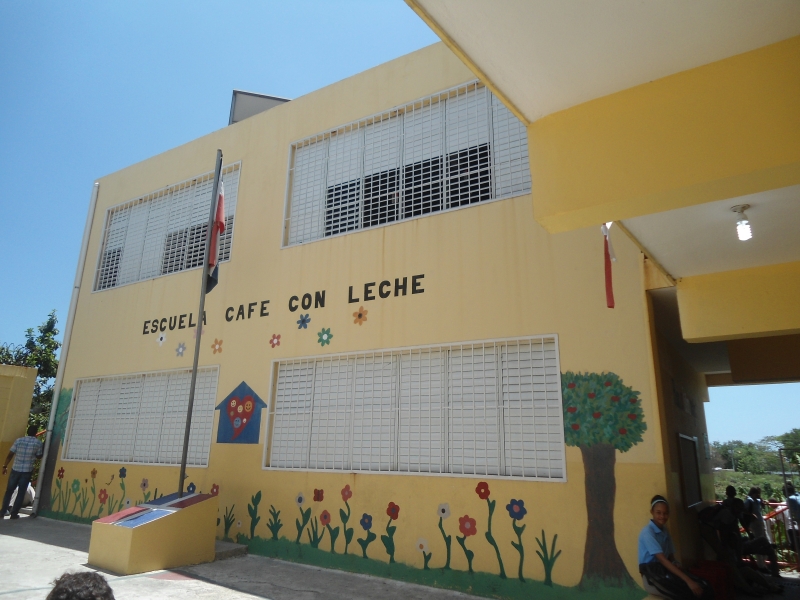 “I could go to the Dominican Republic and teach music for a couple weeks at Cafe’ con Leche School,” I nonchalantly expressed, not ever expecting that my comment would actually be taken seriously. So be it this unexpected trip turned into one of the most fantastic experiences I’ve ever had,” says Diane Gregory,former member of the Gen Verde Performing Arts Band, and who now lives in the United States. Before I knew it, I was on the plane heading for Santo Domingo. It was a chilly morning last April 9th. With snow still on the ground, I left New York’s JFK airport heading towards the Caribbean Island that welcomed me with its warm tropical climate and turquois sea. Along the drive to the colonial zone of the city where I would be staying, I was “taking in” everything, from the beautiful seashore with its coconut trees, to the automobiles, surprised at the number of people they can fit into those vehicles and, most strongly of all, I was being struck by the many impoverished neighborhoods that we passed along the way. The morning after I arrived I was on the Guaguita (a 9-seater van that I’ve seen holding up to 23 people!) with Kathi, a young German girl who is also volunteering at the school. Our stop was the town El Café. We were told of the violence that exists but also that we need not worry for our safety since it was “assumed” that we were there to help in the school. In fact, suffering, violence, unemployment and abandonment, are common amongst many of the families. Café con Leche, one of the many social projects of the Focolare Movement, amazes us with its warmth, liveliness, color and vibrancy. The classrooms are not like the ones I was used to in the US but more creative and just perfect for these 570 students from 1st – 8th grade. And to think that twenty years ago the school had begun in a wooden building with 20 students! Now, with the help of many people there is a school building and a gym that is able to welcome students providing them with a good education and nourishing daily meal – but not only. There is an atmosphere that is difficult to describe, a harmony of relationships that provides the students a very wholesome environment in which to study and grow.
“I could go to the Dominican Republic and teach music for a couple weeks at Cafe’ con Leche School,” I nonchalantly expressed, not ever expecting that my comment would actually be taken seriously. So be it this unexpected trip turned into one of the most fantastic experiences I’ve ever had,” says Diane Gregory,former member of the Gen Verde Performing Arts Band, and who now lives in the United States. Before I knew it, I was on the plane heading for Santo Domingo. It was a chilly morning last April 9th. With snow still on the ground, I left New York’s JFK airport heading towards the Caribbean Island that welcomed me with its warm tropical climate and turquois sea. Along the drive to the colonial zone of the city where I would be staying, I was “taking in” everything, from the beautiful seashore with its coconut trees, to the automobiles, surprised at the number of people they can fit into those vehicles and, most strongly of all, I was being struck by the many impoverished neighborhoods that we passed along the way. The morning after I arrived I was on the Guaguita (a 9-seater van that I’ve seen holding up to 23 people!) with Kathi, a young German girl who is also volunteering at the school. Our stop was the town El Café. We were told of the violence that exists but also that we need not worry for our safety since it was “assumed” that we were there to help in the school. In fact, suffering, violence, unemployment and abandonment, are common amongst many of the families. Café con Leche, one of the many social projects of the Focolare Movement, amazes us with its warmth, liveliness, color and vibrancy. The classrooms are not like the ones I was used to in the US but more creative and just perfect for these 570 students from 1st – 8th grade. And to think that twenty years ago the school had begun in a wooden building with 20 students! Now, with the help of many people there is a school building and a gym that is able to welcome students providing them with a good education and nourishing daily meal – but not only. There is an atmosphere that is difficult to describe, a harmony of relationships that provides the students a very wholesome environment in which to study and grow. 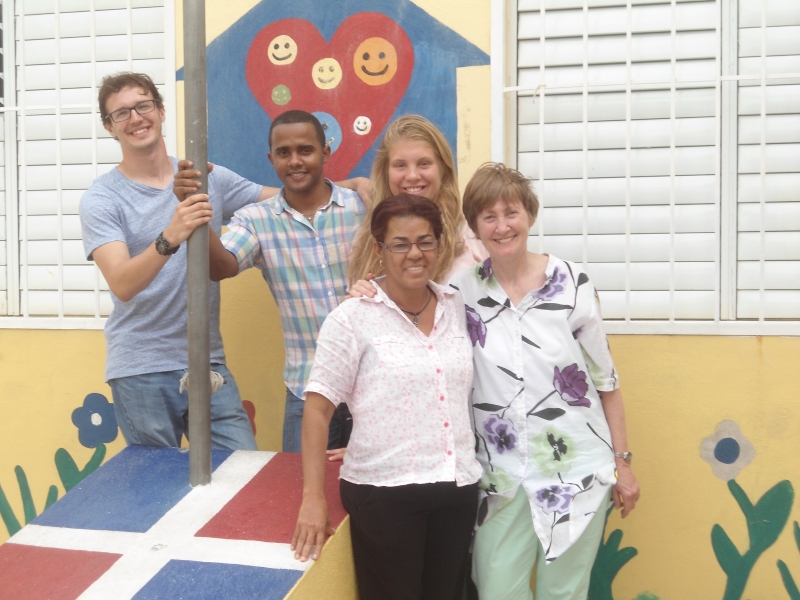 The 10 days that I spent at the school were extremely dynamic. Together with Marisol Jimenez, the founding director, there was a continual flourishing of ideas that we implemented immediately in the classrooms: saxophone and piano lessons; we formed a choir; did musical games and exercises, lessons on reading music; we made our own percussion instruments; put on skits; danced and even had macramé classes. Marisol’s dream is to have a school band. They had already received the instruments from Switzerland and the students are amazing with such a desire to learn (they have a natural rhythm and so much enthusiasm) but, unfortunately, they do not have the funds to hire music teachers on an ongoing basis. We hope that will happen soon! Café con leche is no longer a place that I’ve read about and heard so much about; it has become an “experience”. Now this school, the children, the teachers and everyone here have a name, a face, a story. I left convinced that everything is possible when we “catch the moment” and give it our all.
The 10 days that I spent at the school were extremely dynamic. Together with Marisol Jimenez, the founding director, there was a continual flourishing of ideas that we implemented immediately in the classrooms: saxophone and piano lessons; we formed a choir; did musical games and exercises, lessons on reading music; we made our own percussion instruments; put on skits; danced and even had macramé classes. Marisol’s dream is to have a school band. They had already received the instruments from Switzerland and the students are amazing with such a desire to learn (they have a natural rhythm and so much enthusiasm) but, unfortunately, they do not have the funds to hire music teachers on an ongoing basis. We hope that will happen soon! Café con leche is no longer a place that I’ve read about and heard so much about; it has become an “experience”. Now this school, the children, the teachers and everyone here have a name, a face, a story. I left convinced that everything is possible when we “catch the moment” and give it our all.
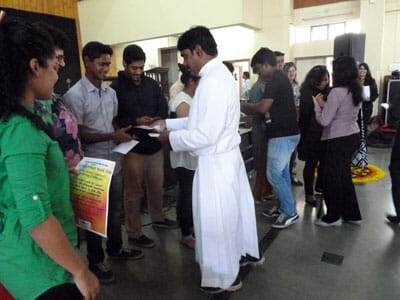
19 May 2015 | Focolare Worldwide, Senza categoria
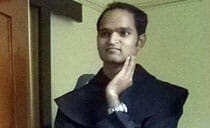 In India, a boom in vocations to consecrated life is seen in various points of the subcontinent: Andra Pradesh, Orissa, and the North Eastern States. “The sense of faith and vision of religious life is well esteemed and the youth feel the urge to enter the novitiate to cultivate their union with the Lord,” Fr Attulli states in an interview with Unità e Carismi (Unity and Charisms) of the Città Nuova editorial group. “They aspire this primarily with experience and prayer – he continued – and they wish to dedicate themselves more to the works of charity. The example of Mother Theresa of Calcutta is strong. From her concrete experience of India, she was able to discover herself and her own vocation, through a profound life of prayer from which her new vocation sprung.” The youth who enter the novitiate come from a part of society that is unable to hide social inequality and poverty, despite the fact that the Indian subcontinent is enumerated among the new world economies. But they have not lost their spiritual dimension, and on the other hand, “Look to God for the solution”. They have found at the same time a solution in social commitment, and in fact “draw inspiration from the works of charity in which they are involved, to solve the poverty in material needs, education, etc. They start with an experience of God, which leads them to undertake apostolic works for the needy.” The Catholic Church has called this the Year of Consecrated life. What should be done to make improvements? “Within the Indian setting, “Fr Attulli explained, “the Church in general and the religious in particular can bear witness to the presence of our Lord Jesus by taking greater care of the poor, in both their spiritual and concrete needs. It is a challenge in this secularized world where we are totally intoxicated with wellbeing! The people want to rediscover God in us, detaching themselves from this addiction to wellbeing.”
In India, a boom in vocations to consecrated life is seen in various points of the subcontinent: Andra Pradesh, Orissa, and the North Eastern States. “The sense of faith and vision of religious life is well esteemed and the youth feel the urge to enter the novitiate to cultivate their union with the Lord,” Fr Attulli states in an interview with Unità e Carismi (Unity and Charisms) of the Città Nuova editorial group. “They aspire this primarily with experience and prayer – he continued – and they wish to dedicate themselves more to the works of charity. The example of Mother Theresa of Calcutta is strong. From her concrete experience of India, she was able to discover herself and her own vocation, through a profound life of prayer from which her new vocation sprung.” The youth who enter the novitiate come from a part of society that is unable to hide social inequality and poverty, despite the fact that the Indian subcontinent is enumerated among the new world economies. But they have not lost their spiritual dimension, and on the other hand, “Look to God for the solution”. They have found at the same time a solution in social commitment, and in fact “draw inspiration from the works of charity in which they are involved, to solve the poverty in material needs, education, etc. They start with an experience of God, which leads them to undertake apostolic works for the needy.” The Catholic Church has called this the Year of Consecrated life. What should be done to make improvements? “Within the Indian setting, “Fr Attulli explained, “the Church in general and the religious in particular can bear witness to the presence of our Lord Jesus by taking greater care of the poor, in both their spiritual and concrete needs. It is a challenge in this secularized world where we are totally intoxicated with wellbeing! The people want to rediscover God in us, detaching themselves from this addiction to wellbeing.”  “Why do people stray from God? Why do they not feel the need to go towards Him? the religious asked himself. And the answer came from his own life experience. “If we stand by the poor and those in need, we discover God’s presence in them. The missionaries who live with the poor, come in contact with people who have faith, even if they need to be helped to grow in the “’culture of faith’, through catechism, prayers and the sacraments.” “In the Indian continent,” he concluded, “not only is there material poverty, but there are also existential peripheries. We are made for love and called to live a serene, peaceful and joyful life in love. Faith does not weigh on our minds, but is there to make us live with joy, not only in the life to come, but here and now. This is why our presence in the existential peripheries and with the poor is of great importance.”
“Why do people stray from God? Why do they not feel the need to go towards Him? the religious asked himself. And the answer came from his own life experience. “If we stand by the poor and those in need, we discover God’s presence in them. The missionaries who live with the poor, come in contact with people who have faith, even if they need to be helped to grow in the “’culture of faith’, through catechism, prayers and the sacraments.” “In the Indian continent,” he concluded, “not only is there material poverty, but there are also existential peripheries. We are made for love and called to live a serene, peaceful and joyful life in love. Faith does not weigh on our minds, but is there to make us live with joy, not only in the life to come, but here and now. This is why our presence in the existential peripheries and with the poor is of great importance.”

18 May 2015 | Focolare Worldwide
 At the opening session, Bishop Nunzio Galantino, Secretary General of the Italian Episcopal Conference (IEC), declared that «The spirit of the Episcopal Conference is to start from those involved,» underlining how this is also proven by the meeting which saw the participation of all the ecclesial organisations operating in the social fields. «The ecclesial congress of November will start in Prato, the ideal periphery of Florence and home to Chinese immigrants, and where the Pope is scheduled to make his pastoral visit.» In an interview, Prof. Coda summarised the objective of the two-day work session. «We want to reflect and offer our testimonial through the experiences of some dynamic groups of the Church in Italy, that are working in the frontlines of service to the poor and homeless and in creating an open dialogue in all spheres.» The preparatory meeting delved into the theme on “The Servant of the Lord and the humanity of mankind” (15-16 May), organized by the Abele Group and their magazine, “Il Regno,” with the cooperation of the Italian Catholic Action, Carits, CNCA and the Networks of Charity and the Focolare Movement. “Together with the others, Piero Coda continued, these experiences «open out to all the existential frontiers of society, as Pope Francis says.» Furthermore, «in Evangelii Gaudium, Pope Francis uses a beautiful expression: we must say “yes” to all the new relationships generated by Jesus. All the groups involved in this event actualise in various ways, this “yes to new relationships” with the cultural and social divides, marginalisation of all sorts, the world around us, and the home common to all Creation, precisely as an expression of this reality of relationships.» Maria Voce’s presence underlined the Focolare’s adhesion to this preparatory path which aims above all to highlight the life of those who give all their energy every day to creating this “new humanism.” «The Church breaks through the confines of the building of religious rites, and in full communion between the clergy and laity, comes closer to present day humanity,» she affirmed in her speech. This Convention «targets the start of a new season in the life and mission of the Church in Italy: not only with regard to the pressing need for “pastoral conversion” but also for the role and public conduct of Christians in facing the social, economic and political realities of our country and keeping an open attitude toward Europe and the world.» She then referred to the challenges of pluralism and the need to harmonise the multitude of diversities in the public field. «This new season stands for the transformation of the world, starting from the radical conversion of our hearts and minds in order to be ready to meet Jesus in each person. God cannot receive us alone, he wants us to go to him with our brethren… To give the Christian name of fraternity to social relationships means committing ourselves to harmonizing the weft of relationships, recognising our mutual belonging and the bonds of responsibility implied, and orienting personal and collective efforts towards the common good.» This is why «we must give a voice and dignity to those at the periphery, extend the spheres of inclusion, and heal and rebuild the frayed social fabric. It is primarily the youth who wish to give their own contribution. So many initiatives have started up locally, in the heart of numberless fragments of “fraternal” civil life!» As a confirmation of Maria Voce’s words, were the almost 200 members of the Focolare Movement attending the meeting, and involved in many ways in the ecclesial organisations, and active in various fields: interreligious dialogue, reception of immigrants, politics, culture and legality, schooling, and the real opening of worksites for the good of Italy. It is a participation which demonstrates their concrete commitment, together with many other active groups.
At the opening session, Bishop Nunzio Galantino, Secretary General of the Italian Episcopal Conference (IEC), declared that «The spirit of the Episcopal Conference is to start from those involved,» underlining how this is also proven by the meeting which saw the participation of all the ecclesial organisations operating in the social fields. «The ecclesial congress of November will start in Prato, the ideal periphery of Florence and home to Chinese immigrants, and where the Pope is scheduled to make his pastoral visit.» In an interview, Prof. Coda summarised the objective of the two-day work session. «We want to reflect and offer our testimonial through the experiences of some dynamic groups of the Church in Italy, that are working in the frontlines of service to the poor and homeless and in creating an open dialogue in all spheres.» The preparatory meeting delved into the theme on “The Servant of the Lord and the humanity of mankind” (15-16 May), organized by the Abele Group and their magazine, “Il Regno,” with the cooperation of the Italian Catholic Action, Carits, CNCA and the Networks of Charity and the Focolare Movement. “Together with the others, Piero Coda continued, these experiences «open out to all the existential frontiers of society, as Pope Francis says.» Furthermore, «in Evangelii Gaudium, Pope Francis uses a beautiful expression: we must say “yes” to all the new relationships generated by Jesus. All the groups involved in this event actualise in various ways, this “yes to new relationships” with the cultural and social divides, marginalisation of all sorts, the world around us, and the home common to all Creation, precisely as an expression of this reality of relationships.» Maria Voce’s presence underlined the Focolare’s adhesion to this preparatory path which aims above all to highlight the life of those who give all their energy every day to creating this “new humanism.” «The Church breaks through the confines of the building of religious rites, and in full communion between the clergy and laity, comes closer to present day humanity,» she affirmed in her speech. This Convention «targets the start of a new season in the life and mission of the Church in Italy: not only with regard to the pressing need for “pastoral conversion” but also for the role and public conduct of Christians in facing the social, economic and political realities of our country and keeping an open attitude toward Europe and the world.» She then referred to the challenges of pluralism and the need to harmonise the multitude of diversities in the public field. «This new season stands for the transformation of the world, starting from the radical conversion of our hearts and minds in order to be ready to meet Jesus in each person. God cannot receive us alone, he wants us to go to him with our brethren… To give the Christian name of fraternity to social relationships means committing ourselves to harmonizing the weft of relationships, recognising our mutual belonging and the bonds of responsibility implied, and orienting personal and collective efforts towards the common good.» This is why «we must give a voice and dignity to those at the periphery, extend the spheres of inclusion, and heal and rebuild the frayed social fabric. It is primarily the youth who wish to give their own contribution. So many initiatives have started up locally, in the heart of numberless fragments of “fraternal” civil life!» As a confirmation of Maria Voce’s words, were the almost 200 members of the Focolare Movement attending the meeting, and involved in many ways in the ecclesial organisations, and active in various fields: interreligious dialogue, reception of immigrants, politics, culture and legality, schooling, and the real opening of worksites for the good of Italy. It is a participation which demonstrates their concrete commitment, together with many other active groups.

16 May 2015 | Non categorizzato
Audio mp3 in Italian “But God loved us with so much love that he was generous with his mercy: when we were dead through our sins, he brought us to life with Christ” (Eph. 2:4-5).  “The commentary on this Word of Life, underlines two characteristics of God’s love. One is that God in His love took the initiative to love us even though we were anything but lovable (“dead through our sins”). The second is that God’s love did not only reach the point of forgiving our sins, but since His love is infinite, He brought us to share in His own life (“he brought us to life in Christ”). These words and thoughts take us back to the very beginnings of the Focolare, when God enkindled in our hearts the spark of our great ideal. In the light of this splendid Word of Life, I realize that the spark or the fire was nothing less than our sharing in Love itself, who is God. In the midst of the dreariness and desolation which surrounded us due to the war, did we find others taking the initiative to love us? Through a special gift of God, wasn’t it in fact we who were the ones lighting the flame of love in many hearts around us, urged on by the desire to see this flame ablaze in everyone? Did we choose to love those who appeared the most likeable or rather were we more attracted to the poorest of all in whom we could better recognize the countenance of Christ, and to sinners who most needed His mercy? Yes, by a divine miracle, (the kind of miracle that occurs each time a charism of the Holy Spirit pours forth in the world), our own little hearts could witness to being rich in mercy. As we know, loving our neighbours did not simply mean to make ourselves one with them to the point of bringing them to God. It meant to draw them into our revolution of love, our very ideal. We considered everyone to be a candidate for unity and so everyone could and did participate in the dynamic divine life that God had brought about at a given point in the Church’s history. That is how it was then, and so it should be today. Certainly times have changed, but it shouldn’t be difficult to admit that if the world at that time seemed like a desert because of the destruction of the war, the world today, even though the reasons may be different, shouldn’t seem to be any less of a desert. Many factors have contributed toward the levelling out of our modern society; we live in very ambiguous times. In the past society was fundamentally Christian and a clear distinction could be made between good and evil. That is not the case today. In the name of a freedom which is not true freedom, good and evil, observance and non-observance of the commandments are all put on the same level. We are living in a new kind of desert, where what has been bombed are not homes, churches, and other buildings, but moral laws, and as a result, individual consciences too. What can be done about this? Are we without weapons in our battle to bring the forgiveness and love of Christ to a world which takes so little account of the reality of sin? No, we are not without weapons. This desecrated world has a countenance for us: Jesus Forsaken, in whom the sacred and the divine are completely hidden. In every negative situation we can see a reflection of Him, God who is abandoned by God. It is in His name and in our love for Him that we will find the strength to love what today appears so despicable. With the fire of love aflame in our hearts, and like our God who always takes the initiative, we will reach out to those we meet along our way. God in us will reawaken and enlighten consciences, instil contrition, bring back hope, enflame with enthusiasm, giving a desire to many, dead as they are, to be brought to life in Christ. So, places three objectives before us: to keep the fire burning in our hearts; to be the first to love; and not to limit our love, but to love boundlessly. In this way we will bring many people to live our ideal, which is to live Christ. Only by living on this level can we be in line with what the Scriptures ask of us this month”. (…) (Chiara Lubich, Rocca di Papa, on January 3, 1985) Source: Chiara Lubich Center
“The commentary on this Word of Life, underlines two characteristics of God’s love. One is that God in His love took the initiative to love us even though we were anything but lovable (“dead through our sins”). The second is that God’s love did not only reach the point of forgiving our sins, but since His love is infinite, He brought us to share in His own life (“he brought us to life in Christ”). These words and thoughts take us back to the very beginnings of the Focolare, when God enkindled in our hearts the spark of our great ideal. In the light of this splendid Word of Life, I realize that the spark or the fire was nothing less than our sharing in Love itself, who is God. In the midst of the dreariness and desolation which surrounded us due to the war, did we find others taking the initiative to love us? Through a special gift of God, wasn’t it in fact we who were the ones lighting the flame of love in many hearts around us, urged on by the desire to see this flame ablaze in everyone? Did we choose to love those who appeared the most likeable or rather were we more attracted to the poorest of all in whom we could better recognize the countenance of Christ, and to sinners who most needed His mercy? Yes, by a divine miracle, (the kind of miracle that occurs each time a charism of the Holy Spirit pours forth in the world), our own little hearts could witness to being rich in mercy. As we know, loving our neighbours did not simply mean to make ourselves one with them to the point of bringing them to God. It meant to draw them into our revolution of love, our very ideal. We considered everyone to be a candidate for unity and so everyone could and did participate in the dynamic divine life that God had brought about at a given point in the Church’s history. That is how it was then, and so it should be today. Certainly times have changed, but it shouldn’t be difficult to admit that if the world at that time seemed like a desert because of the destruction of the war, the world today, even though the reasons may be different, shouldn’t seem to be any less of a desert. Many factors have contributed toward the levelling out of our modern society; we live in very ambiguous times. In the past society was fundamentally Christian and a clear distinction could be made between good and evil. That is not the case today. In the name of a freedom which is not true freedom, good and evil, observance and non-observance of the commandments are all put on the same level. We are living in a new kind of desert, where what has been bombed are not homes, churches, and other buildings, but moral laws, and as a result, individual consciences too. What can be done about this? Are we without weapons in our battle to bring the forgiveness and love of Christ to a world which takes so little account of the reality of sin? No, we are not without weapons. This desecrated world has a countenance for us: Jesus Forsaken, in whom the sacred and the divine are completely hidden. In every negative situation we can see a reflection of Him, God who is abandoned by God. It is in His name and in our love for Him that we will find the strength to love what today appears so despicable. With the fire of love aflame in our hearts, and like our God who always takes the initiative, we will reach out to those we meet along our way. God in us will reawaken and enlighten consciences, instil contrition, bring back hope, enflame with enthusiasm, giving a desire to many, dead as they are, to be brought to life in Christ. So, places three objectives before us: to keep the fire burning in our hearts; to be the first to love; and not to limit our love, but to love boundlessly. In this way we will bring many people to live our ideal, which is to live Christ. Only by living on this level can we be in line with what the Scriptures ask of us this month”. (…) (Chiara Lubich, Rocca di Papa, on January 3, 1985) Source: Chiara Lubich Center
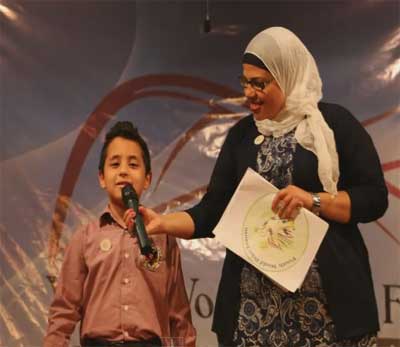
15 May 2015 | Focolare Worldwide, Senza categoria
 “The Peace Forum was a unique experience. I enjoyed every moment of the programme. Such a meeting (. . .) makes one hope that better days are coming and that one day poverty, hunger discrimination and violence will see their end.” This is how Rasha, an English teacher at Rowad American College, describes Living Peace 2015 which was held in Cairo on May 4-6, 2015, following a three-day congress in Alexandria, Egypt that provided the young people with the necessary background knowledge. In Alexandria there were moments of sharing and mutual understanding, sharing the joys and sorrows that they brought with them from their own countries. In Cairo, there was a beautiful welcome, with festivities along the Nile on a large boat, with games, dancing and song. Then came the actual World Forum of Students for Peace. The project was promoted by New Humanity, an NGO, through the Cayrus project approved by the European Union. Various partners and sponsors from different countries adhered to the project and sent youth representatives to Egypt. For three days 1300 students and professors from more than 20 schools and 8 Egyptian universities shared testimonies of their common commitment to peace: best practices, more than 50 educational projects for peace, workshops, seminars, exhibits and artistic performances. Also present were ambassadors and diplomatic representatives from Argentina, Brazil, Uruguay, Guatemala, Cuba, Democratic Republic of Congo, Cameroon, Pakistan, Portugal, Croatia, Mexico, Germany and Sudan. Begun in 2011 by an English teacher at El Rowad American College of Cairo, as an educational project for peace, today, Living Peace involves more than 2500 students from around the world. A main feature of the project is the way it directly engages the students and teachers in the creation of an educational peace initiative, involving a global network of people and institutions. Membership in the project enables each school to develop projects in accordance with their own possibilities, favouring the creativity of the students along with the awareness that they are contributing towards a common goal. This creates a dynamic of participation that motivates the different components of the school, reinforcing solidarity amongst students, teachers, directors and families, with repercussions in civil society. The 2015 Forum was the occasion for presenting Scholas Occurrentes, the large global network that the Pope wished to see when he was still archbishop of Buenos Aires, and that now connects more than 400,0000 schools around the world. The presence of Dominicus Rohde from Germany, President of the World Peace Forum, raised the tone of the events. Since it was the first world forum held by young people, it opened the doors to a new road. The worldwide forum on peace has awarded the Luxemburg Peace Prize to New Humanity. The prestigious Nelson Mandela Medal was consigned to Cecilia Landucci who represented the NGO in Cairo. See video: Living Peace 2015 https://www.youtube.com/watch?v=nugDbxgoccg&feature=youtu.be Source: ONG New Humanity, AMU e Umanità Nuova. Updated May 27, 2015
“The Peace Forum was a unique experience. I enjoyed every moment of the programme. Such a meeting (. . .) makes one hope that better days are coming and that one day poverty, hunger discrimination and violence will see their end.” This is how Rasha, an English teacher at Rowad American College, describes Living Peace 2015 which was held in Cairo on May 4-6, 2015, following a three-day congress in Alexandria, Egypt that provided the young people with the necessary background knowledge. In Alexandria there were moments of sharing and mutual understanding, sharing the joys and sorrows that they brought with them from their own countries. In Cairo, there was a beautiful welcome, with festivities along the Nile on a large boat, with games, dancing and song. Then came the actual World Forum of Students for Peace. The project was promoted by New Humanity, an NGO, through the Cayrus project approved by the European Union. Various partners and sponsors from different countries adhered to the project and sent youth representatives to Egypt. For three days 1300 students and professors from more than 20 schools and 8 Egyptian universities shared testimonies of their common commitment to peace: best practices, more than 50 educational projects for peace, workshops, seminars, exhibits and artistic performances. Also present were ambassadors and diplomatic representatives from Argentina, Brazil, Uruguay, Guatemala, Cuba, Democratic Republic of Congo, Cameroon, Pakistan, Portugal, Croatia, Mexico, Germany and Sudan. Begun in 2011 by an English teacher at El Rowad American College of Cairo, as an educational project for peace, today, Living Peace involves more than 2500 students from around the world. A main feature of the project is the way it directly engages the students and teachers in the creation of an educational peace initiative, involving a global network of people and institutions. Membership in the project enables each school to develop projects in accordance with their own possibilities, favouring the creativity of the students along with the awareness that they are contributing towards a common goal. This creates a dynamic of participation that motivates the different components of the school, reinforcing solidarity amongst students, teachers, directors and families, with repercussions in civil society. The 2015 Forum was the occasion for presenting Scholas Occurrentes, the large global network that the Pope wished to see when he was still archbishop of Buenos Aires, and that now connects more than 400,0000 schools around the world. The presence of Dominicus Rohde from Germany, President of the World Peace Forum, raised the tone of the events. Since it was the first world forum held by young people, it opened the doors to a new road. The worldwide forum on peace has awarded the Luxemburg Peace Prize to New Humanity. The prestigious Nelson Mandela Medal was consigned to Cecilia Landucci who represented the NGO in Cairo. See video: Living Peace 2015 https://www.youtube.com/watch?v=nugDbxgoccg&feature=youtu.be Source: ONG New Humanity, AMU e Umanità Nuova. Updated May 27, 2015
14 May 2015 | Focolare Worldwide
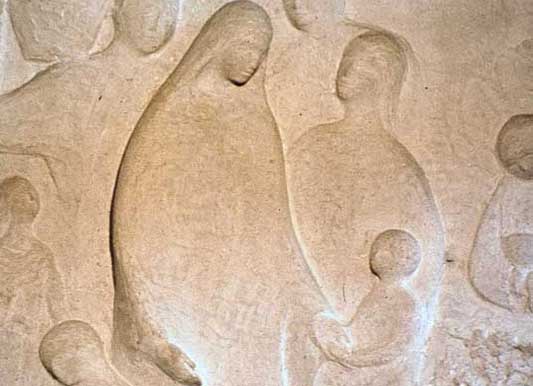
13 May 2015 | Non categorizzato
 “When it comes to Mary the universal Church bursts into song. In midst of greyness and boredom, her name appears, the atmosphere clears and endless lights are lit. She is the sun in which God placed his dwelling.” This is how Giordani writes of the Mother of God, singing along with the Church as he places himself amongst the many artists, theologians and holy people who have competed in portraying the virtues of the Virgin Mary: her beauty, the greatness of her role in the economy of the Salvation. His book, Maria modello perfetto, (Città Nuova, Rome, 2012) marks the conclusion of a journey: the progression of Giordani’s understanding of the mystery of Mary and of his attitude towards her. He had often written of her in articles and in the many pages of his books. He had already dedicated a previous book to her in 1944: Maria di Nazareth. But up to then, the theme was always contemplation, praise and invocation. In Maria modello perfetto there is a difference, which reveals the maturation accomplished in Giordani. There is the same contemplation, but above all imitation of Mary. The intellectual and life relationship of Giordani with the Mother of Jesus enters into a deeper dimension following his encounter with Chiara Lubich, in 1948, and with the Movement that was begun by her, popularly known as the Focolare Movement, but whose real name is Work of Mary. Right from the start, the experience of Chiara Lubich and of those who had entered into communion with her centred on the Word, especially Jesus’s prayer for unity: that spirituality had a strong “Marian stamp” that became clearer and developed further through successive stages. Some of these included: total willingness to germinate the presence of Mary in one’s personal and communitarian spiritual life; to repeat inasmuch as that is possible, the life of Mary, following her path – the Via Mariae (the Way of Mary) – as it emerges from the Gospel and Tradition; and a very distinctive choice of her as one’s Mother. This reality is what lies behind Giordani’s discourse on Mary. He offers it enriched by his cultural, theological and literary background, and with that characteristic zeal that made him a singular and enthusiastic witness of love towards the Mother of God. “Mary incarnates strength because she incarnates love: and love is stronger than death. Only in this does the desperation of the world melt away as new life is given, on this Calvary where we are all assembled by universal guilt (. . .) Poetry, science, wisdom and love become condensed in Mary, who is the refuge in desolation, loadstar in the storm and beauty in the horror. She marks out the way that leads to the Son, so that, through her, He comes more lovingly to us. We’re never alone: the Mother is there. We only need to enkindle her name in the desert night. (. . .) Every saint, every attentive Christian, is on a cross like Christ, but with the Mother beside him. In the most horrendous moment, he sees her imploring eyes, feels the unity with her, and trustingly places his soul in the hands of the Father.” The “Imitation of Mary” is presented as a valid goal for women and men, for consecrated virgins, priests and lay people, and it can have social as well as spiritual applications. “This is Mary’s hour,” Giordani writes, this hour when she wishes to live again in souls that mystically “become” her and are able to generate Jesus again in the midst of today’s people who are more and more in need of Him. Giordani sees her especially in the abysmal depths of her Desolation where she becomes the Mother of the Redeemed, the soul of those who know how to welcome her in. He sees her beginning to appear as a viable path of holiness for each one of us. Tommaso Sorgi www.iginogiordani.info
“When it comes to Mary the universal Church bursts into song. In midst of greyness and boredom, her name appears, the atmosphere clears and endless lights are lit. She is the sun in which God placed his dwelling.” This is how Giordani writes of the Mother of God, singing along with the Church as he places himself amongst the many artists, theologians and holy people who have competed in portraying the virtues of the Virgin Mary: her beauty, the greatness of her role in the economy of the Salvation. His book, Maria modello perfetto, (Città Nuova, Rome, 2012) marks the conclusion of a journey: the progression of Giordani’s understanding of the mystery of Mary and of his attitude towards her. He had often written of her in articles and in the many pages of his books. He had already dedicated a previous book to her in 1944: Maria di Nazareth. But up to then, the theme was always contemplation, praise and invocation. In Maria modello perfetto there is a difference, which reveals the maturation accomplished in Giordani. There is the same contemplation, but above all imitation of Mary. The intellectual and life relationship of Giordani with the Mother of Jesus enters into a deeper dimension following his encounter with Chiara Lubich, in 1948, and with the Movement that was begun by her, popularly known as the Focolare Movement, but whose real name is Work of Mary. Right from the start, the experience of Chiara Lubich and of those who had entered into communion with her centred on the Word, especially Jesus’s prayer for unity: that spirituality had a strong “Marian stamp” that became clearer and developed further through successive stages. Some of these included: total willingness to germinate the presence of Mary in one’s personal and communitarian spiritual life; to repeat inasmuch as that is possible, the life of Mary, following her path – the Via Mariae (the Way of Mary) – as it emerges from the Gospel and Tradition; and a very distinctive choice of her as one’s Mother. This reality is what lies behind Giordani’s discourse on Mary. He offers it enriched by his cultural, theological and literary background, and with that characteristic zeal that made him a singular and enthusiastic witness of love towards the Mother of God. “Mary incarnates strength because she incarnates love: and love is stronger than death. Only in this does the desperation of the world melt away as new life is given, on this Calvary where we are all assembled by universal guilt (. . .) Poetry, science, wisdom and love become condensed in Mary, who is the refuge in desolation, loadstar in the storm and beauty in the horror. She marks out the way that leads to the Son, so that, through her, He comes more lovingly to us. We’re never alone: the Mother is there. We only need to enkindle her name in the desert night. (. . .) Every saint, every attentive Christian, is on a cross like Christ, but with the Mother beside him. In the most horrendous moment, he sees her imploring eyes, feels the unity with her, and trustingly places his soul in the hands of the Father.” The “Imitation of Mary” is presented as a valid goal for women and men, for consecrated virgins, priests and lay people, and it can have social as well as spiritual applications. “This is Mary’s hour,” Giordani writes, this hour when she wishes to live again in souls that mystically “become” her and are able to generate Jesus again in the midst of today’s people who are more and more in need of Him. Giordani sees her especially in the abysmal depths of her Desolation where she becomes the Mother of the Redeemed, the soul of those who know how to welcome her in. He sees her beginning to appear as a viable path of holiness for each one of us. Tommaso Sorgi www.iginogiordani.info
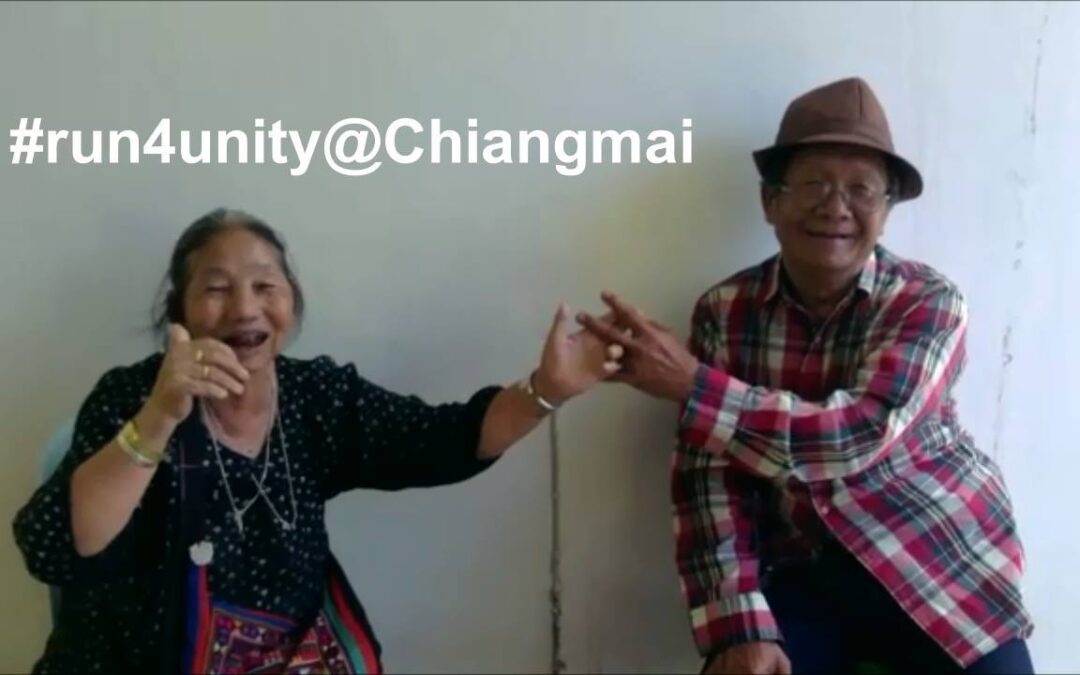
12 May 2015 | Focolare Worldwide
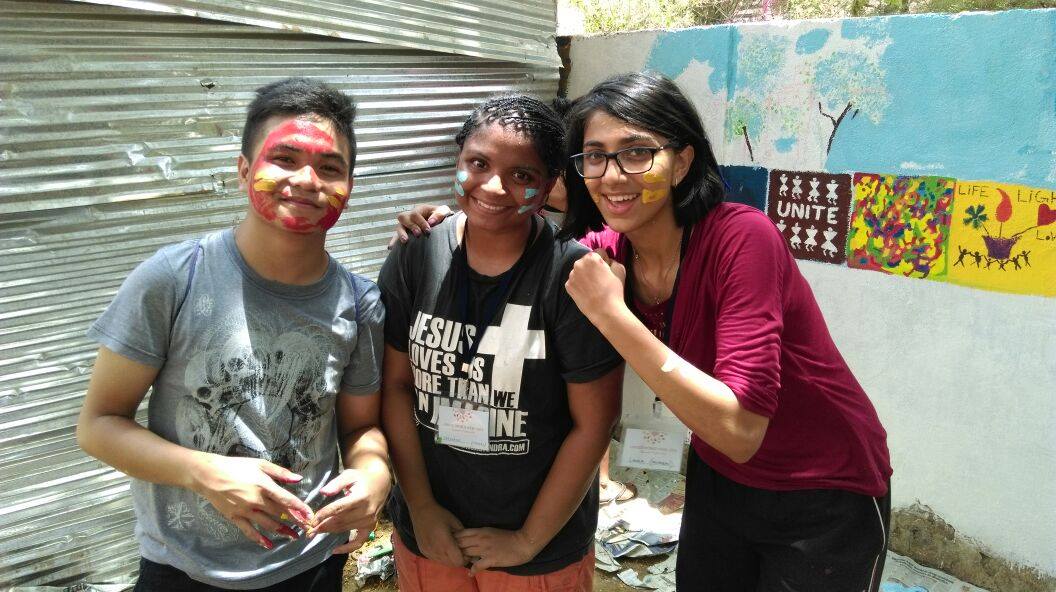 Focolare Youth and children and their many friends. Signs of persistent commitment towards peace in the whole world. A focus on some initiatives, not amongst the most crowded or those held in well-known cities, but very significant because they show that everyone, anywhere can contribute towards peace. Kinshasa, Congo. A convinced crowd of a thousand young people, Christians and Muslims demonstrated in front of civil authorities: mayors, governor, members of parliament, ambassadors. (One boy managed to invite 70 friends who took part in the activity and paid their participation fee in advance). These youngsters marched for about an hour in the chaotic city of Kinshasa until they reached Petite Flamme, the school run by the Focolare Movement and found in Ndolo. This project offers many teens the opportunity to build a future in their own country without having to emigrate. Other young people marched in the unstable east region of Bukavu, Kikwit and Goma. Damascus, Syria. Syrian children have been asked to comment on their situation and answered through social networks: “I am M., and after managing to escape from home I now live in Damascus. During the night our neighbourhood was very heavily bombarded and rockets hit some of our friends’ homes. The Focolare families did their best to find accommodation for them….Some of us lost relatives, friends, school…. But in spite of all this we believe in peace, we live for peace and pray God for peace. We visited children in an orphanage. We organized ourselves and prepared for them sweets, salted biscuits, bracelets….. We played with these children and spent a very nice day together”. Another group of 65 youngsters, coming from different parts of the country, faced the risk of a journey to spend a couple of days together: “It seemed an oasis as it was for the people of Israel who for 40 years journeyed in the desert amidst many hardships”.
Focolare Youth and children and their many friends. Signs of persistent commitment towards peace in the whole world. A focus on some initiatives, not amongst the most crowded or those held in well-known cities, but very significant because they show that everyone, anywhere can contribute towards peace. Kinshasa, Congo. A convinced crowd of a thousand young people, Christians and Muslims demonstrated in front of civil authorities: mayors, governor, members of parliament, ambassadors. (One boy managed to invite 70 friends who took part in the activity and paid their participation fee in advance). These youngsters marched for about an hour in the chaotic city of Kinshasa until they reached Petite Flamme, the school run by the Focolare Movement and found in Ndolo. This project offers many teens the opportunity to build a future in their own country without having to emigrate. Other young people marched in the unstable east region of Bukavu, Kikwit and Goma. Damascus, Syria. Syrian children have been asked to comment on their situation and answered through social networks: “I am M., and after managing to escape from home I now live in Damascus. During the night our neighbourhood was very heavily bombarded and rockets hit some of our friends’ homes. The Focolare families did their best to find accommodation for them….Some of us lost relatives, friends, school…. But in spite of all this we believe in peace, we live for peace and pray God for peace. We visited children in an orphanage. We organized ourselves and prepared for them sweets, salted biscuits, bracelets….. We played with these children and spent a very nice day together”. Another group of 65 youngsters, coming from different parts of the country, faced the risk of a journey to spend a couple of days together: “It seemed an oasis as it was for the people of Israel who for 40 years journeyed in the desert amidst many hardships”. 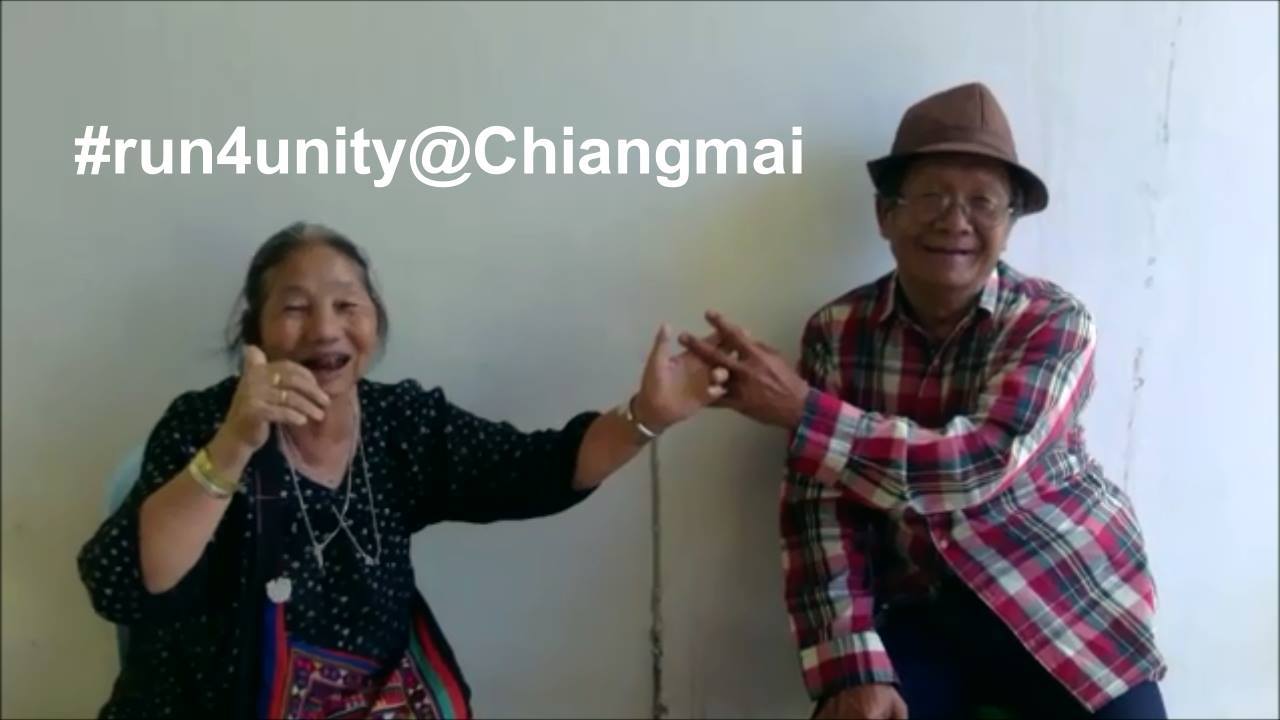 Cascais, Portugal. 900 young Portuguese gathered at the small town of Cascais welcomed the Syrian youth’s commitment to pray and be points of reference for peace in everyday life so as to spread love and peace around them. “They instilled strength and determination in us, helping us to give relative importance to our small difficulties and challenges”. The commissioner for youth policies encouraged them saying: “Continue to believe in what already believe. Continue to be what you are. The world needs you!” Bahía Blanca, Argentina. Through the initiative “Papelitos in the city”, positive messages were scattered everywhere: on school benches, doors, in elevators, in mailboxes, on motorcycles, cars, bicycles…. The golden rule found in sacred books and in other texts stimulated the idea: “Cheer up everybody’s day and contribute to lessen violence”. Other groups (scouts, etc.) took part in this initiative through Whatsapp and Facebook. It has also aroused conflicting ideas that reinforced the youth’s determination to “write those words with their lives”. Hamm, Germany. Catholic and Evangelical youth walked together through the city and stopped at various places of worship, including a mosque and Hindu temple. Slovakia. Slovak and Ukrainian youth and children met at a town on the border between the two countries and organized different activities. Above all, they shared the suffering of a conflict that continues to cause death and destruction. Hong Kong And Macao: The necessity of peace and its absolute priority were promoted in one of the most busy commercial places in Hong Kong, which youth chose as their meeting place. Bethlehem. Christian and Muslim children from Jerusalem, Nazareth and Haifa, who took part in this year’s edition of the relay race for peace, met at the Square of the Basilica of the Nativity in Bethlehem. From there they walked to the Salesian monastery in the Cremisan Valley, where the local people protested without any violence and prevented the building of a part of the wall that separates Israel and the Palestinian Territories. Source:Press releases
Cascais, Portugal. 900 young Portuguese gathered at the small town of Cascais welcomed the Syrian youth’s commitment to pray and be points of reference for peace in everyday life so as to spread love and peace around them. “They instilled strength and determination in us, helping us to give relative importance to our small difficulties and challenges”. The commissioner for youth policies encouraged them saying: “Continue to believe in what already believe. Continue to be what you are. The world needs you!” Bahía Blanca, Argentina. Through the initiative “Papelitos in the city”, positive messages were scattered everywhere: on school benches, doors, in elevators, in mailboxes, on motorcycles, cars, bicycles…. The golden rule found in sacred books and in other texts stimulated the idea: “Cheer up everybody’s day and contribute to lessen violence”. Other groups (scouts, etc.) took part in this initiative through Whatsapp and Facebook. It has also aroused conflicting ideas that reinforced the youth’s determination to “write those words with their lives”. Hamm, Germany. Catholic and Evangelical youth walked together through the city and stopped at various places of worship, including a mosque and Hindu temple. Slovakia. Slovak and Ukrainian youth and children met at a town on the border between the two countries and organized different activities. Above all, they shared the suffering of a conflict that continues to cause death and destruction. Hong Kong And Macao: The necessity of peace and its absolute priority were promoted in one of the most busy commercial places in Hong Kong, which youth chose as their meeting place. Bethlehem. Christian and Muslim children from Jerusalem, Nazareth and Haifa, who took part in this year’s edition of the relay race for peace, met at the Square of the Basilica of the Nativity in Bethlehem. From there they walked to the Salesian monastery in the Cremisan Valley, where the local people protested without any violence and prevented the building of a part of the wall that separates Israel and the Palestinian Territories. Source:Press releases
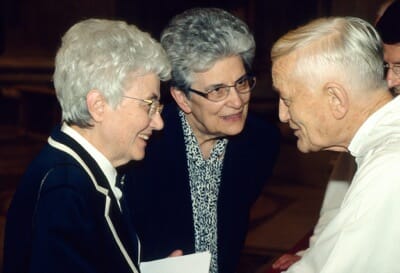
12 May 2015 | Focolare Worldwide

Chiara Lubich, Gabri Fallacara, Frère Roger Schutz (1978).

Chiara Lubich, Eli Folonari,
11 May 2015 | Focolare Worldwide
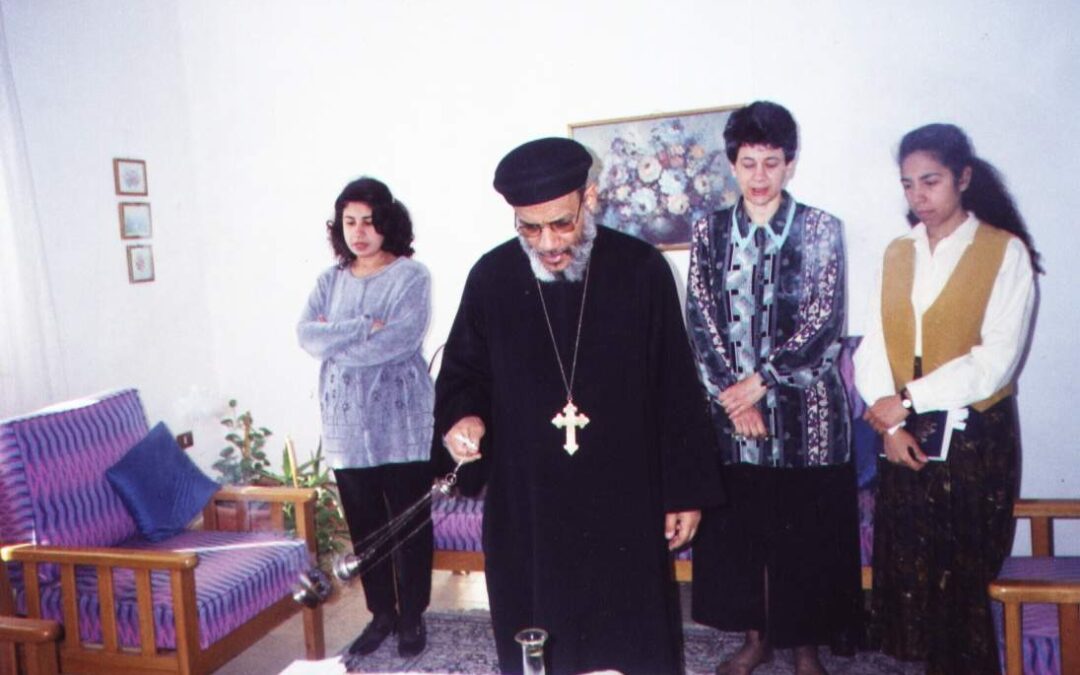
10 May 2015 | Focolare Worldwide
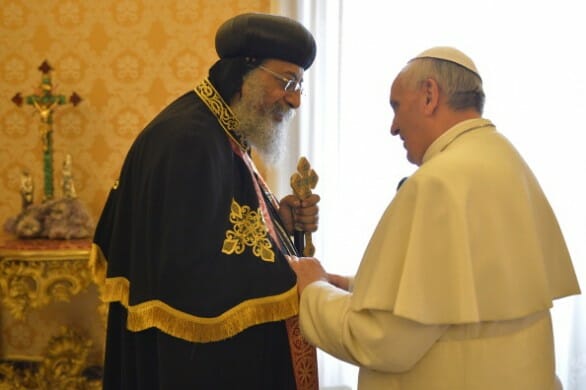 May 10, 2013. Pope Francis and Pope Tawadros II meet at the Vatican to remember the historic appointment that took place 40 years ealier between their predecessors, Pope Paul VI and Pope Shenouda III, and their Common Declaration on the one faith that is professed by churches with different traditions. During his remarks, Pope Francis stated: “I am convinced that – under the guidance of the Holy Spirit – our persevering prayer, our dialogue and the will to build communion day by day in mutual love will allow us to take important further steps towards full unity.” During an interview Pope Tawadros II stated: “I believe in the diversity in unity. Being in a garden where all the flowers are red and of the same hight, is boring. But being in a garden where I see a pink rose, a yellow rose and a white rose; and I see trees of different heights – this diversity expresses beauty and strength. When I am sitting with you I am rich of my brothers and sisters in Christ.” Coptic focolarina, Sherin, offers her thoughts: “These are words spoken by someone who has the courage to love his brothers and sisters, to shorten the distance and time in favour of understanding and renewed sharing after years of distance, enabling the two Churches to take up a path of peace and brotherhood. It will not be possible to erase these words from memory nor from the history of ecumenism until the churches rejoice on the day of the full unity of thier children.” The 2013 visit of Pope Tawadros II had been the first, following his election. Perhaps he wished to pay a visit to the Successor of Peter, Pope Francis. It was the second historic visit of a Coptic Pope to the Pope of Rome, that helped to lessen the distance between the two Churches.
May 10, 2013. Pope Francis and Pope Tawadros II meet at the Vatican to remember the historic appointment that took place 40 years ealier between their predecessors, Pope Paul VI and Pope Shenouda III, and their Common Declaration on the one faith that is professed by churches with different traditions. During his remarks, Pope Francis stated: “I am convinced that – under the guidance of the Holy Spirit – our persevering prayer, our dialogue and the will to build communion day by day in mutual love will allow us to take important further steps towards full unity.” During an interview Pope Tawadros II stated: “I believe in the diversity in unity. Being in a garden where all the flowers are red and of the same hight, is boring. But being in a garden where I see a pink rose, a yellow rose and a white rose; and I see trees of different heights – this diversity expresses beauty and strength. When I am sitting with you I am rich of my brothers and sisters in Christ.” Coptic focolarina, Sherin, offers her thoughts: “These are words spoken by someone who has the courage to love his brothers and sisters, to shorten the distance and time in favour of understanding and renewed sharing after years of distance, enabling the two Churches to take up a path of peace and brotherhood. It will not be possible to erase these words from memory nor from the history of ecumenism until the churches rejoice on the day of the full unity of thier children.” The 2013 visit of Pope Tawadros II had been the first, following his election. Perhaps he wished to pay a visit to the Successor of Peter, Pope Francis. It was the second historic visit of a Coptic Pope to the Pope of Rome, that helped to lessen the distance between the two Churches. 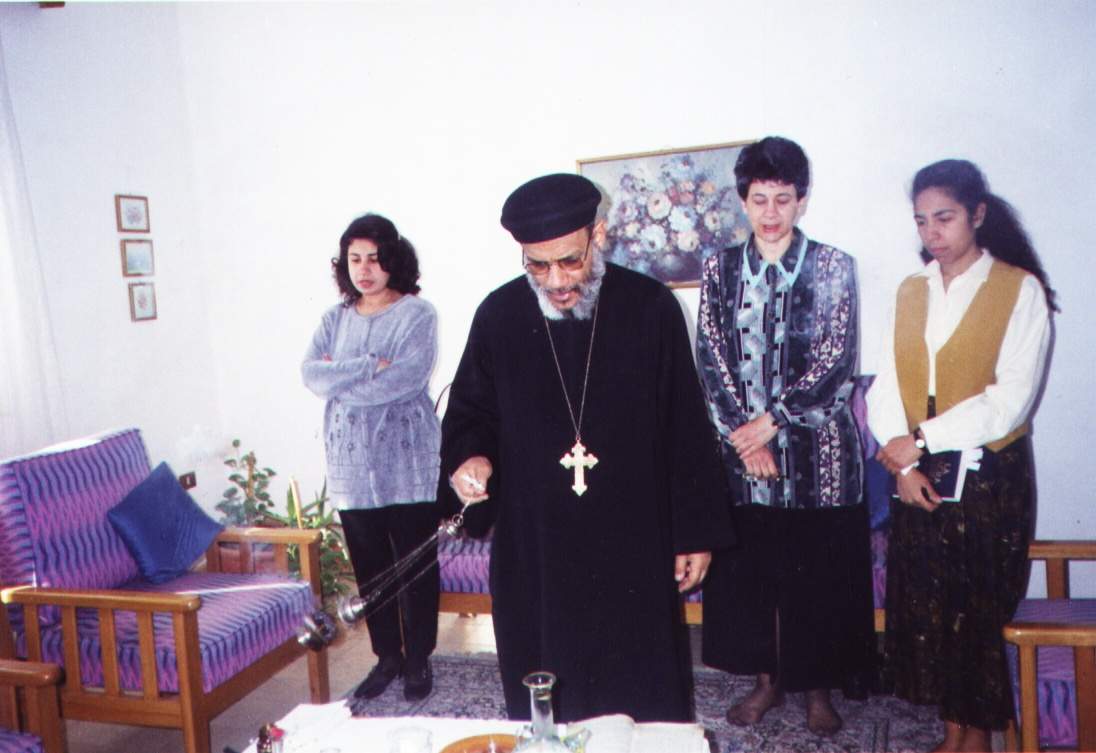 “That encounter between those two great men of God is still alive in my memory as, under the guidance of the Holy Spirit, they continue to conduct their flock towards the one Church that will come in God’s time. The memory of their fraternal embrace and the mutual love that could be visibly seen between them fills me with immense joy. I join my sisters and brothers of both Churches in celebrating this occasion, and with enthusiasm I look towards the near future, confident in the steps that will draw us closer and closer. This is a cause of great rejoicing for the entire Church! It encourages me to live for unity even more, a possibility that had fascinated me years ago when I met the Focolare Movement where I discovered the ‘precious pearl’ of the Gospel, for which you sell everything you have. I share this life in focolare with sisters from various Churches, and this is where I experience the joy of the Risen One, a sign of what the Church will be in its full unity. Each day we pray, work, share moments of suffering as Pope Francis said when he spoke about the ecumenism of suffering, and it makes us grow in love and mutual respect, believing that on the Cross, Jesus has overcome all our divisions and filled every void. I am grateful for the many people across the world with whom I share this experience. We live and pray for this unity, that it might be experienced and lived by everyone.” Sherin, focolare, Sohag, Egypt
“That encounter between those two great men of God is still alive in my memory as, under the guidance of the Holy Spirit, they continue to conduct their flock towards the one Church that will come in God’s time. The memory of their fraternal embrace and the mutual love that could be visibly seen between them fills me with immense joy. I join my sisters and brothers of both Churches in celebrating this occasion, and with enthusiasm I look towards the near future, confident in the steps that will draw us closer and closer. This is a cause of great rejoicing for the entire Church! It encourages me to live for unity even more, a possibility that had fascinated me years ago when I met the Focolare Movement where I discovered the ‘precious pearl’ of the Gospel, for which you sell everything you have. I share this life in focolare with sisters from various Churches, and this is where I experience the joy of the Risen One, a sign of what the Church will be in its full unity. Each day we pray, work, share moments of suffering as Pope Francis said when he spoke about the ecumenism of suffering, and it makes us grow in love and mutual respect, believing that on the Cross, Jesus has overcome all our divisions and filled every void. I am grateful for the many people across the world with whom I share this experience. We live and pray for this unity, that it might be experienced and lived by everyone.” Sherin, focolare, Sohag, Egypt
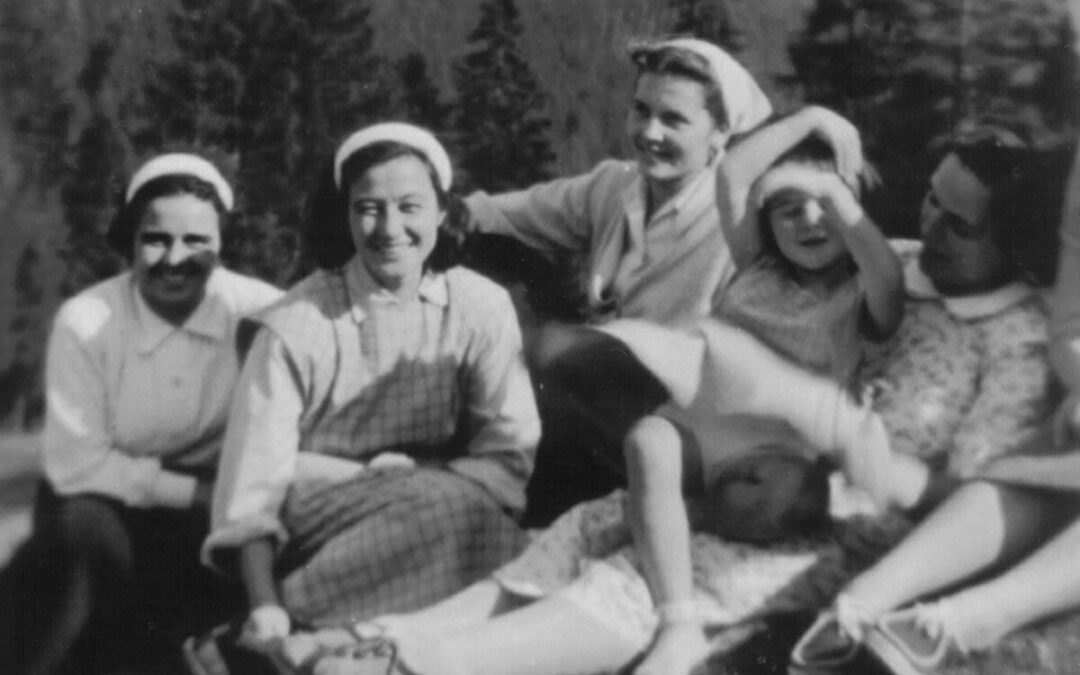
9 May 2015 | Non categorizzato
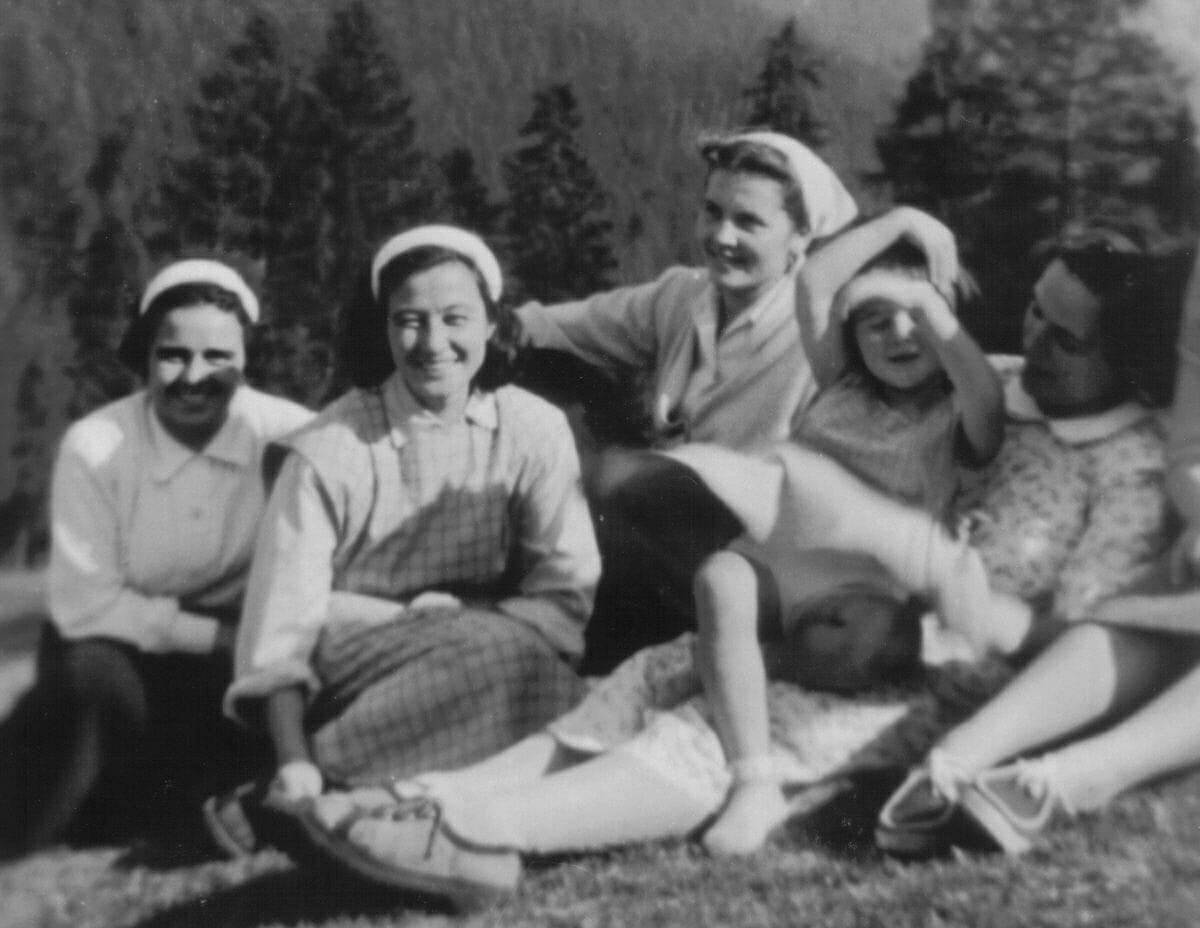 “The adventure of unity:” this is how Chiara Lubich and her first companions were fond of describing their choice of God as the Ideal that led them to live for the unity of the human family. Graziella De Luca was with Chiara right from the start of the Focolare Movement. It would be impossible to describe in few words the very fruitful life she lived in spreading the spirituality of unity in many so many places and hearts. “I have come to set the world on fire, and I wish it were already burning! (Lk 12:49). Chiara had suggested this Gospel sentence to her as a goal, also because of her keen apostolic spirit that led her in great simplicity to share with parliamentarians and simple workers, the great discovery that changed her life, the encounter with God’s love. Born in Trent, Italy, on March 12, 1925, Graziella De Luca died on May 9, 2015 at 15:35, as the focolarine gathered around her were praying the Veni Creator Spiritus, writes Focolare president, Maria Voce informing the global community of Graziella’s death. She continued: “Let us thank God for her abundantly fruitful life. Let us pray for her, in the joy of imagining her already in the Bosom of the Father, with Our Lady and all those who are dear to us. Let us trustfully entrust the Work of Mary to her as it “reaches out,” certain that she will help us to set the world on fire with love”. Live streaming of the funeral: live.focolare.org/graziella
“The adventure of unity:” this is how Chiara Lubich and her first companions were fond of describing their choice of God as the Ideal that led them to live for the unity of the human family. Graziella De Luca was with Chiara right from the start of the Focolare Movement. It would be impossible to describe in few words the very fruitful life she lived in spreading the spirituality of unity in many so many places and hearts. “I have come to set the world on fire, and I wish it were already burning! (Lk 12:49). Chiara had suggested this Gospel sentence to her as a goal, also because of her keen apostolic spirit that led her in great simplicity to share with parliamentarians and simple workers, the great discovery that changed her life, the encounter with God’s love. Born in Trent, Italy, on March 12, 1925, Graziella De Luca died on May 9, 2015 at 15:35, as the focolarine gathered around her were praying the Veni Creator Spiritus, writes Focolare president, Maria Voce informing the global community of Graziella’s death. She continued: “Let us thank God for her abundantly fruitful life. Let us pray for her, in the joy of imagining her already in the Bosom of the Father, with Our Lady and all those who are dear to us. Let us trustfully entrust the Work of Mary to her as it “reaches out,” certain that she will help us to set the world on fire with love”. Live streaming of the funeral: live.focolare.org/graziella












 The meeting with the religious leaders will take place on 16 June at the Berlaymont Building in Brussels, seat of the European Commission. The top-level operational meeting is regularly held among the organisations of the European Union and churches, religions, philosophical associations and non-religious organizations, as provided by Art.17 of the Treaty of Lisbon. The results of the debate with the religious leaders will contribute to preparations for the European Union’s first Annual Convention on Fundamental Rights that will be held in Brussels on 1-2 October 2015 on the theme “Tolerance and respect: foresee and combat anti-Semitic and anti-Muslim phenomena in Europe.” The topic chosen for the debate, “Coexistence and acceptance of diversities,” underlines – in the words of Frans Timmermans, First Vice-President of the European Commission, that – “in our heterogeneous European societies, dialogue is essential in creating a community in which each feels at home. Living together means being able to accept the differences even in the presence of profound divergences.” Among the 15 religious leaders invited, are the Catholic Church’s representatives: Cardinal Reinhard Marx, Archbishop of Munich and President of the Episcopates’ Commission of the European Community (COMECE), and
The meeting with the religious leaders will take place on 16 June at the Berlaymont Building in Brussels, seat of the European Commission. The top-level operational meeting is regularly held among the organisations of the European Union and churches, religions, philosophical associations and non-religious organizations, as provided by Art.17 of the Treaty of Lisbon. The results of the debate with the religious leaders will contribute to preparations for the European Union’s first Annual Convention on Fundamental Rights that will be held in Brussels on 1-2 October 2015 on the theme “Tolerance and respect: foresee and combat anti-Semitic and anti-Muslim phenomena in Europe.” The topic chosen for the debate, “Coexistence and acceptance of diversities,” underlines – in the words of Frans Timmermans, First Vice-President of the European Commission, that – “in our heterogeneous European societies, dialogue is essential in creating a community in which each feels at home. Living together means being able to accept the differences even in the presence of profound divergences.” Among the 15 religious leaders invited, are the Catholic Church’s representatives: Cardinal Reinhard Marx, Archbishop of Munich and President of the Episcopates’ Commission of the European Community (COMECE), and 






















 While visiting Poland,
While visiting Poland, 






















 Cascais,
Cascais, 


 May 10, 2013. Pope Francis and Pope Tawadros II meet at the Vatican to remember the historic appointment that took place 40 years ealier between their predecessors,
May 10, 2013. Pope Francis and Pope Tawadros II meet at the Vatican to remember the historic appointment that took place 40 years ealier between their predecessors,  “That encounter between those two great men of God is still alive in my memory as, under the guidance of the Holy Spirit, they continue to conduct their flock towards the one Church that will come in God’s time. The memory of their fraternal embrace and the mutual love that could be visibly seen between them fills me with immense joy. I join my sisters and brothers of both Churches in celebrating this occasion, and with enthusiasm I look towards the near future, confident in the steps that will draw us closer and closer. This is a cause of great rejoicing for the entire Church! It encourages me to live for unity even more, a possibility that had fascinated me years ago when I met the Focolare Movement where I discovered the ‘precious pearl’ of the Gospel, for which you sell everything you have. I share this life in focolare with sisters from various Churches, and this is where I experience the joy of the Risen One, a sign of what the Church will be in its full unity. Each day we pray, work, share moments of suffering as Pope Francis said when he spoke about the ecumenism of suffering, and it makes us grow in love and mutual respect, believing that on the Cross, Jesus has overcome all our divisions and filled every void. I am grateful for the many people across the world with whom I share this experience. We live and pray for this unity, that it might be experienced and lived by everyone.” Sherin, focolare, Sohag, Egypt
“That encounter between those two great men of God is still alive in my memory as, under the guidance of the Holy Spirit, they continue to conduct their flock towards the one Church that will come in God’s time. The memory of their fraternal embrace and the mutual love that could be visibly seen between them fills me with immense joy. I join my sisters and brothers of both Churches in celebrating this occasion, and with enthusiasm I look towards the near future, confident in the steps that will draw us closer and closer. This is a cause of great rejoicing for the entire Church! It encourages me to live for unity even more, a possibility that had fascinated me years ago when I met the Focolare Movement where I discovered the ‘precious pearl’ of the Gospel, for which you sell everything you have. I share this life in focolare with sisters from various Churches, and this is where I experience the joy of the Risen One, a sign of what the Church will be in its full unity. Each day we pray, work, share moments of suffering as Pope Francis said when he spoke about the ecumenism of suffering, and it makes us grow in love and mutual respect, believing that on the Cross, Jesus has overcome all our divisions and filled every void. I am grateful for the many people across the world with whom I share this experience. We live and pray for this unity, that it might be experienced and lived by everyone.” Sherin, focolare, Sohag, Egypt
 “The adventure of unity:” this is how
“The adventure of unity:” this is how